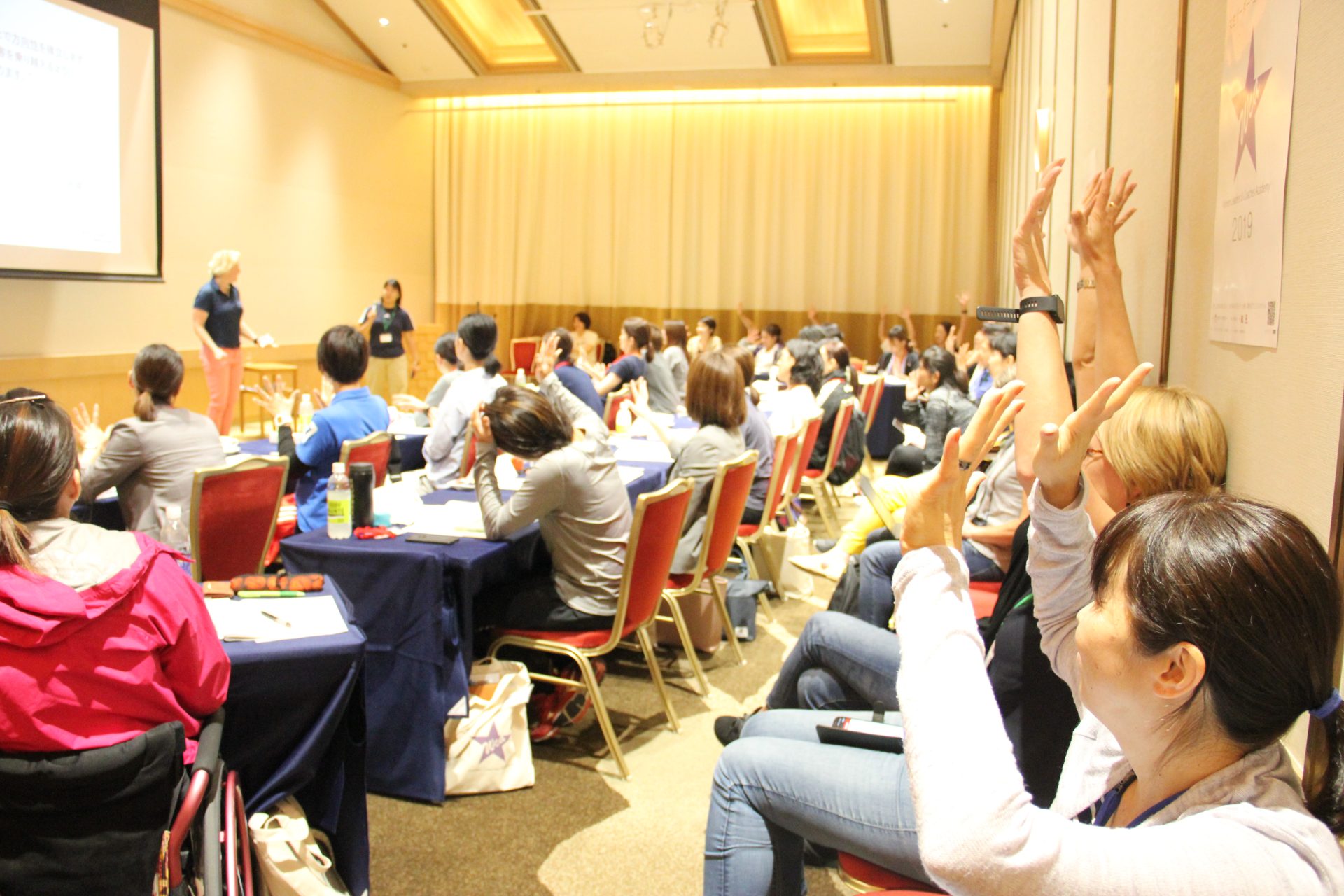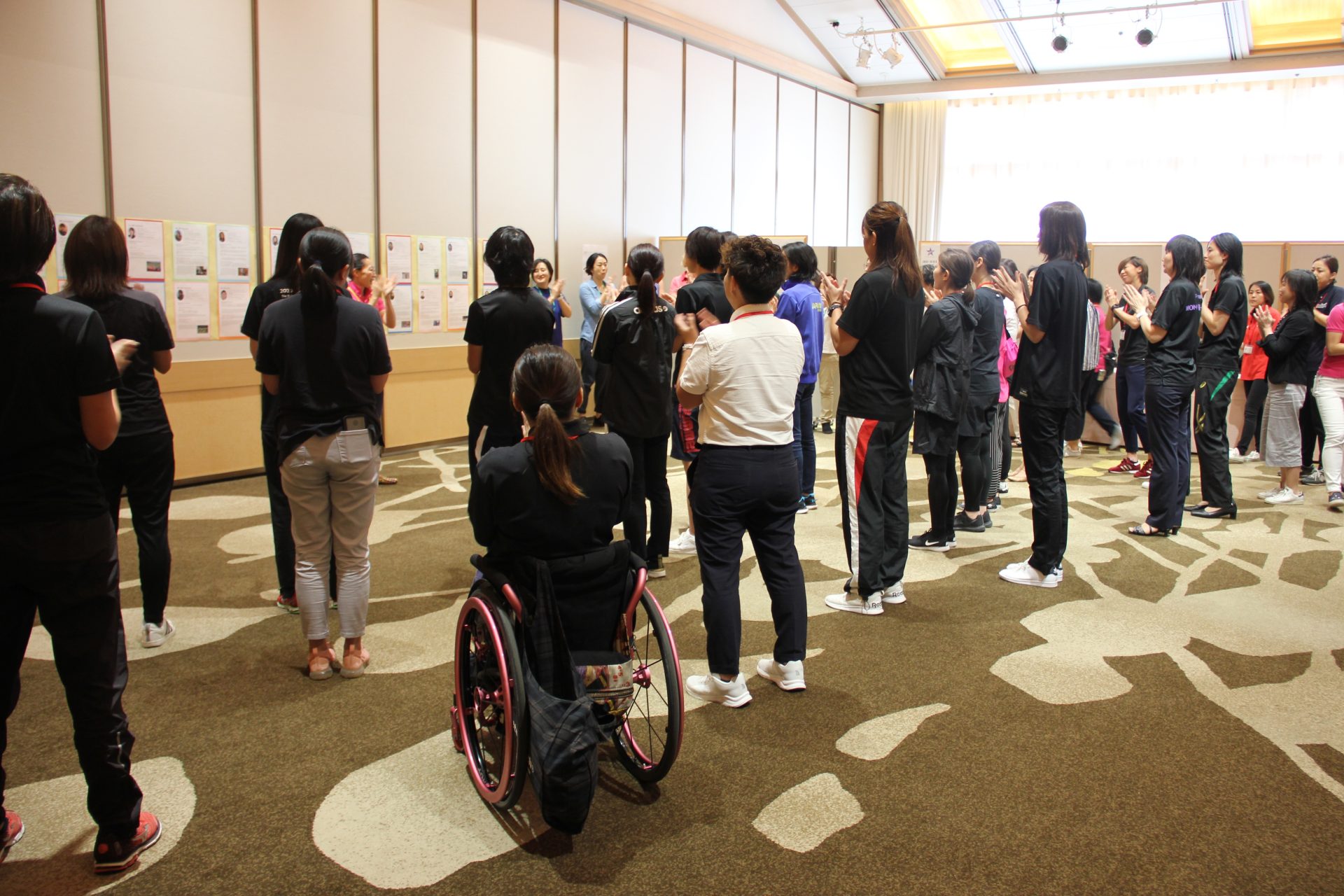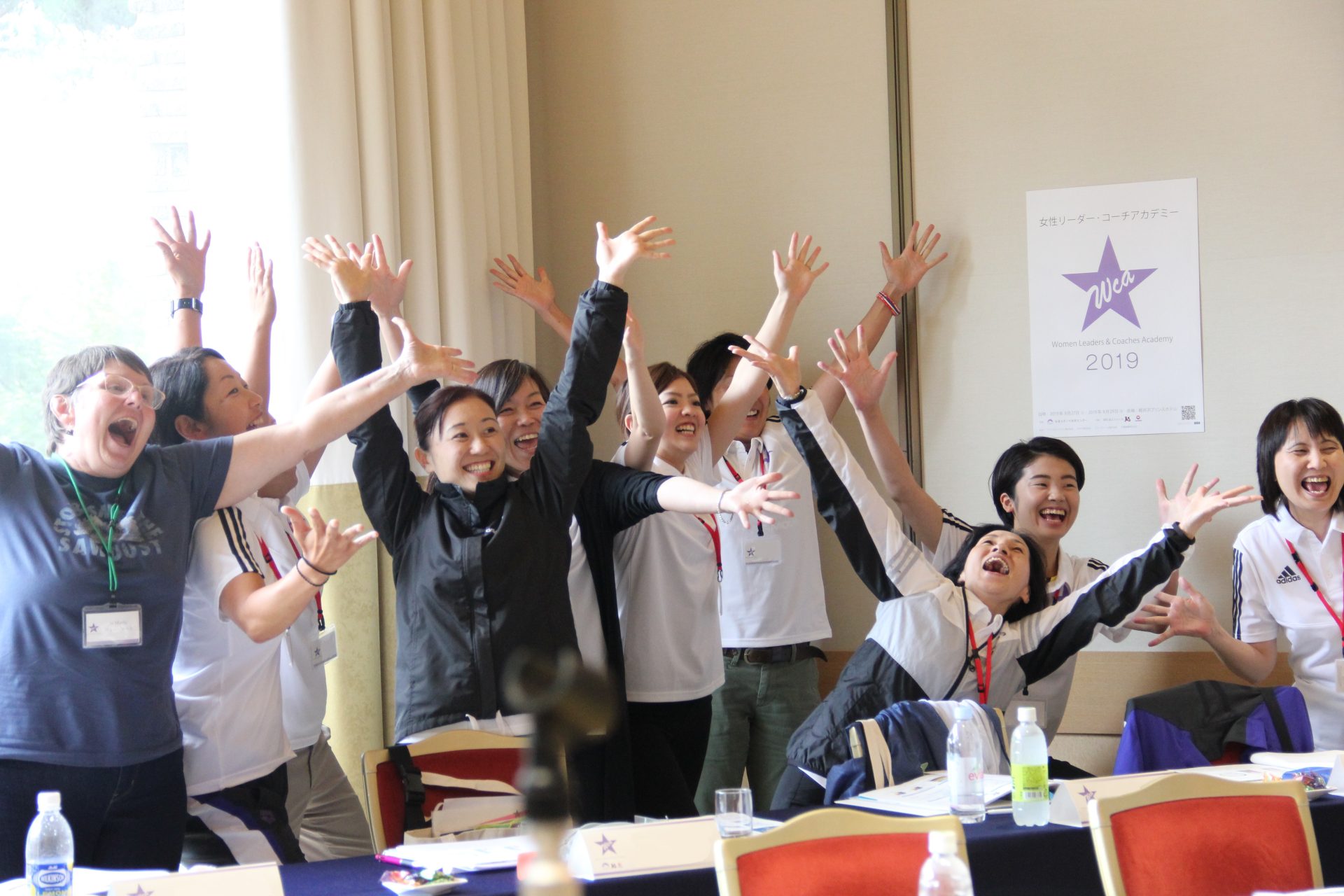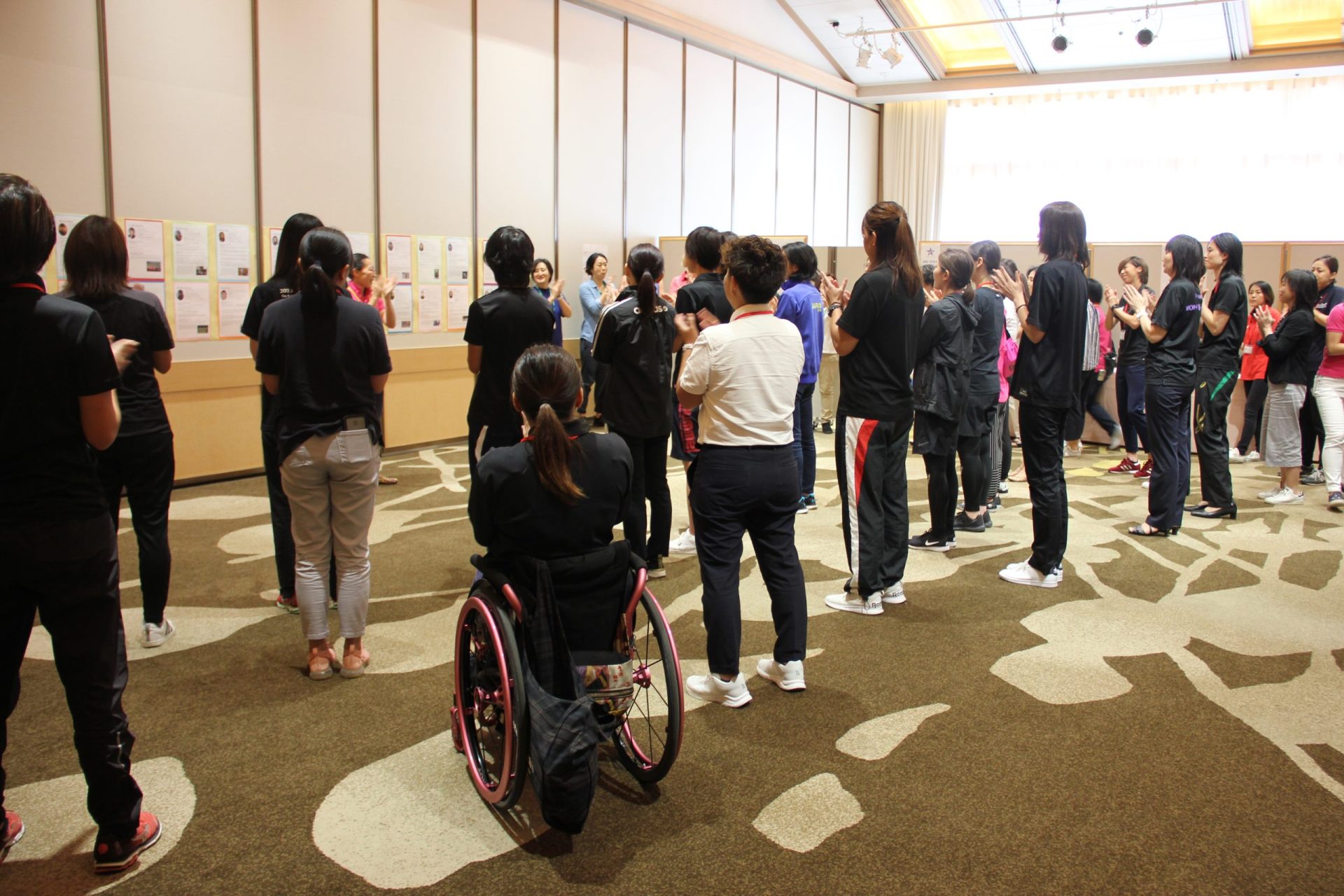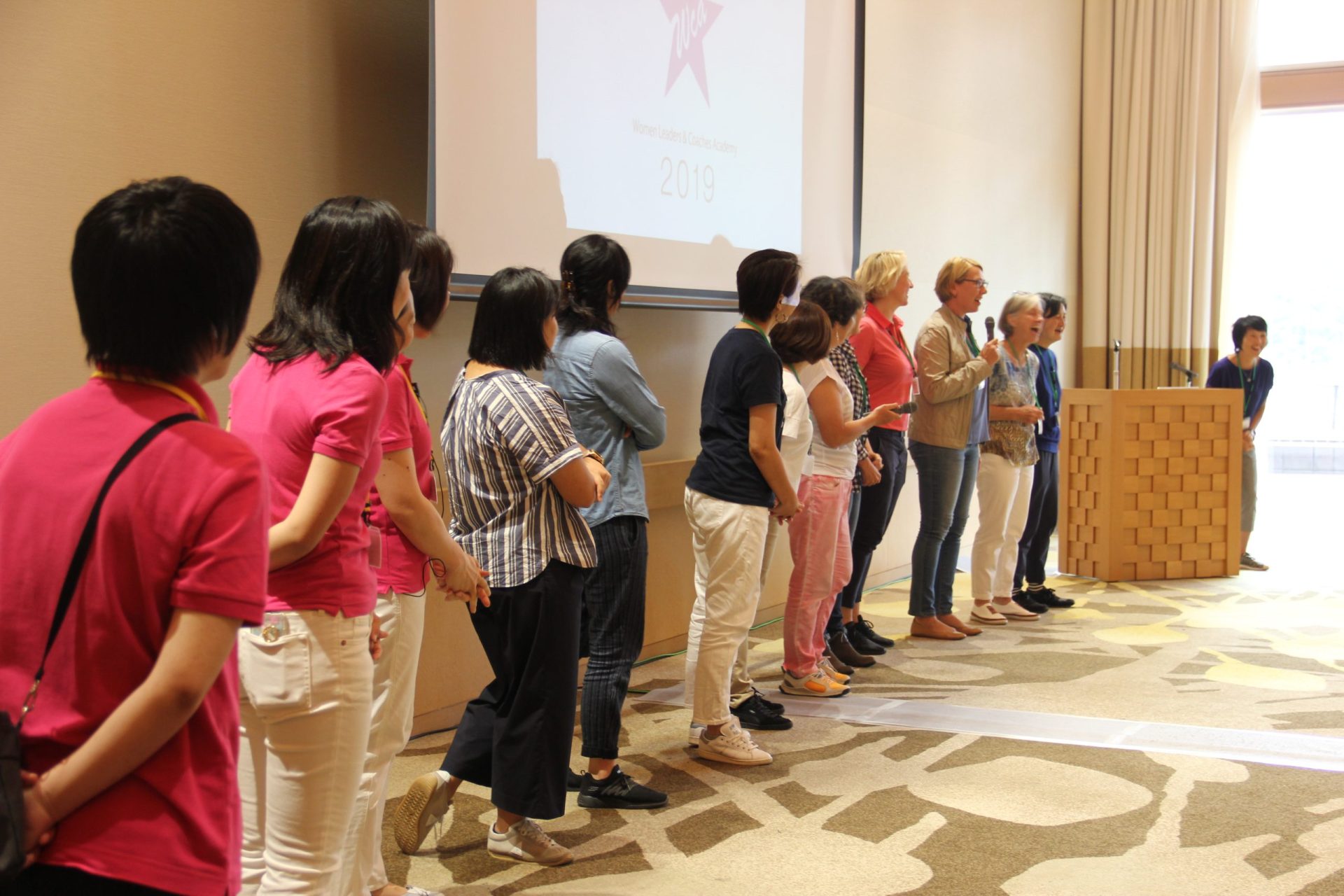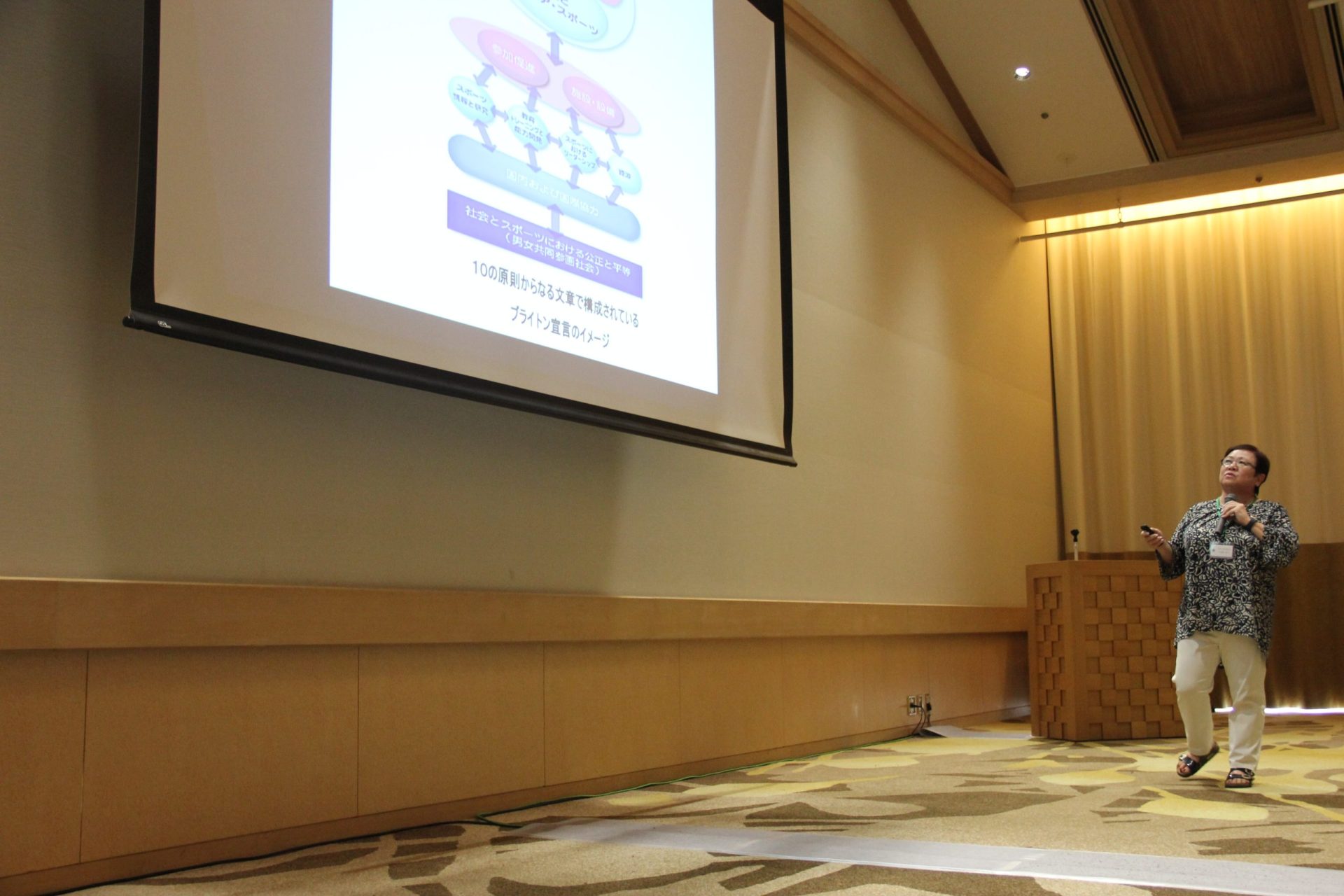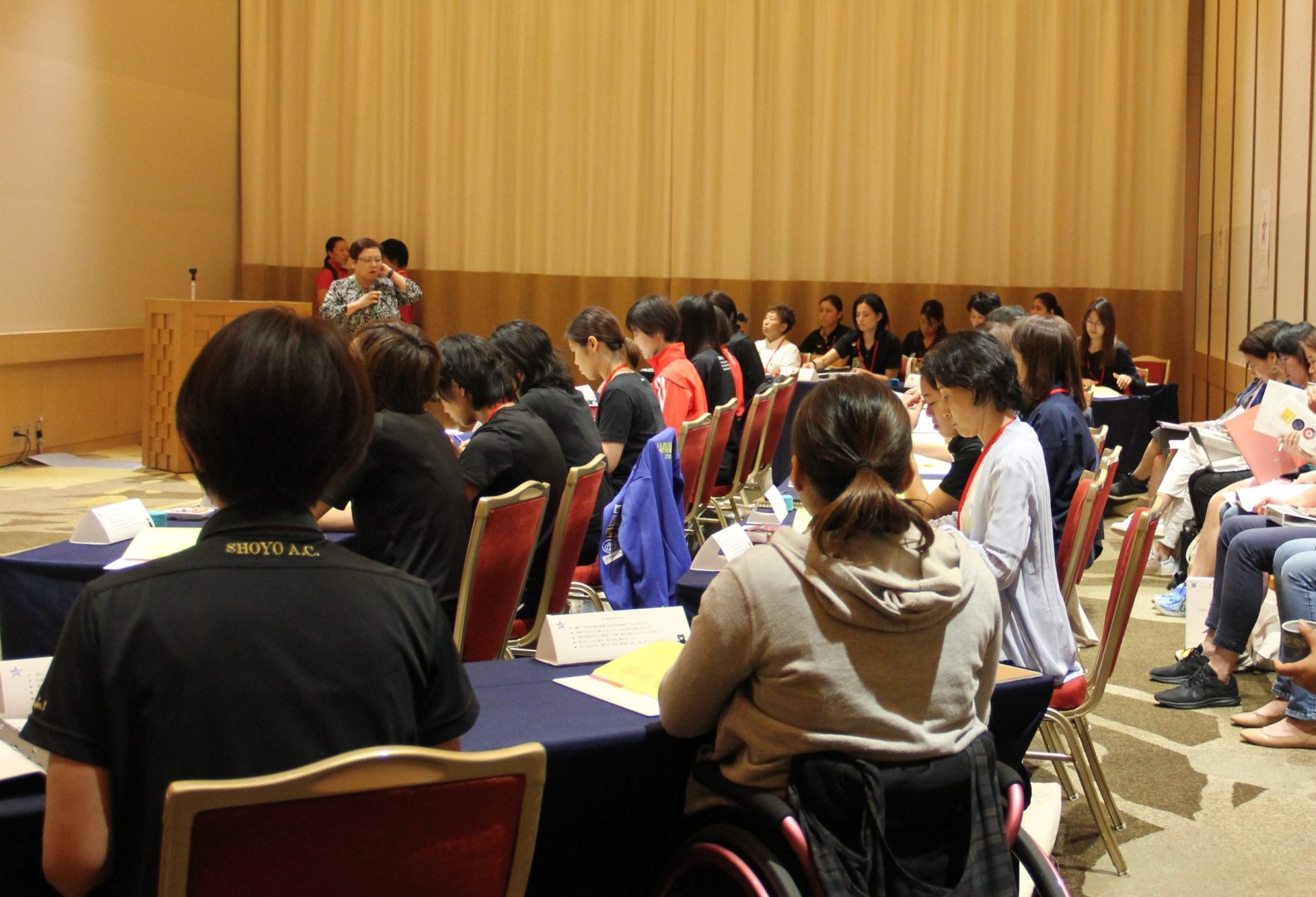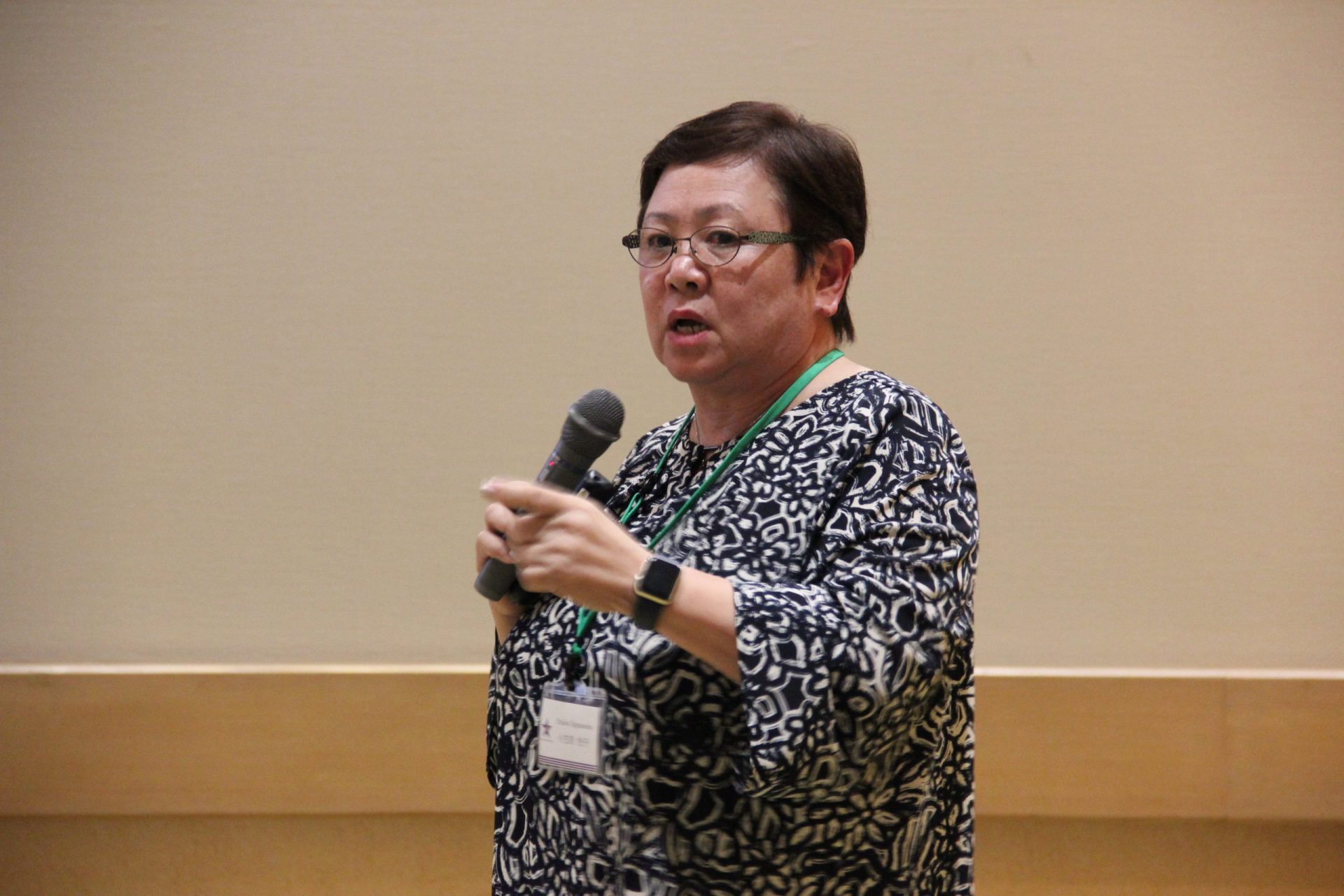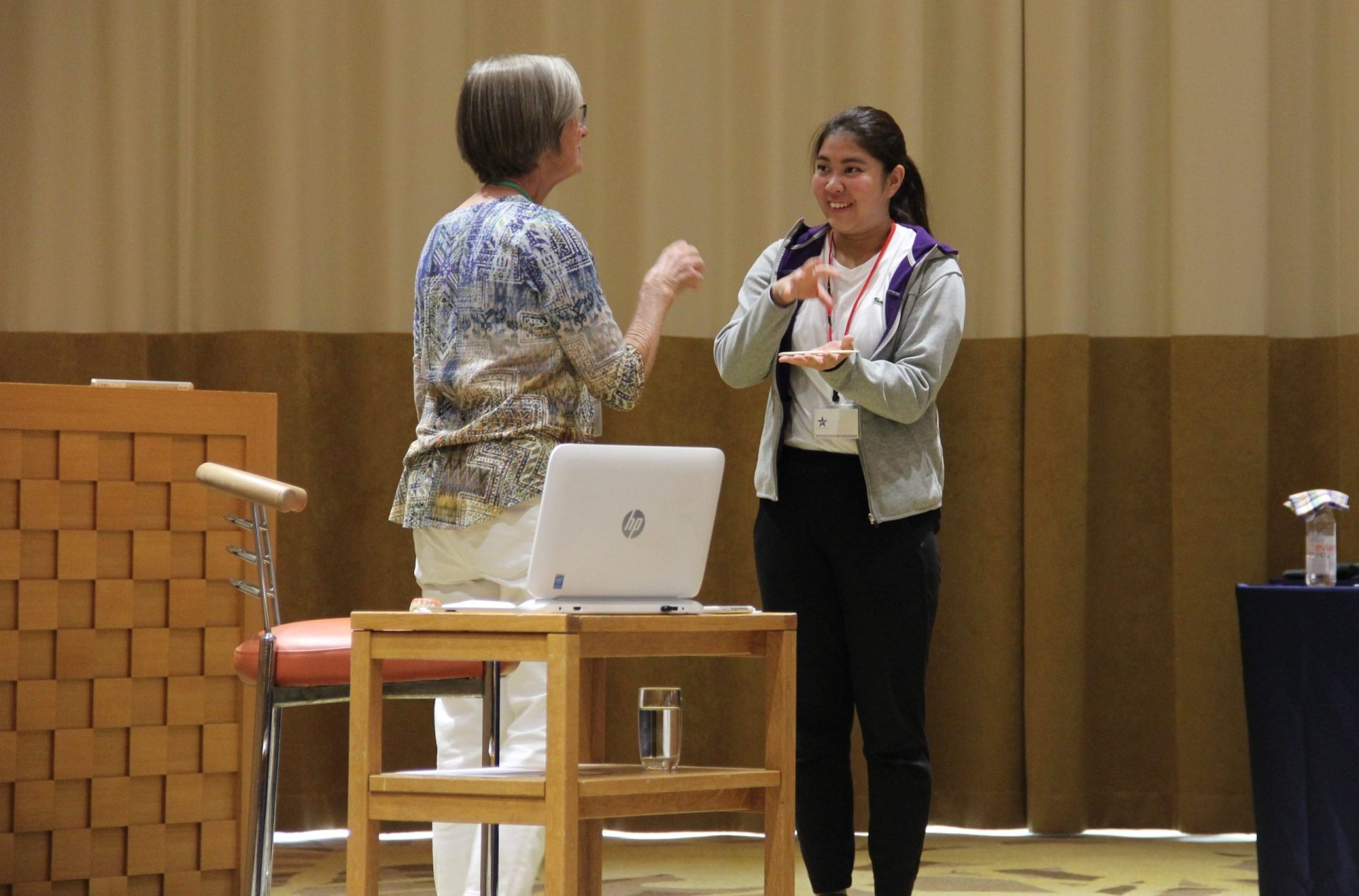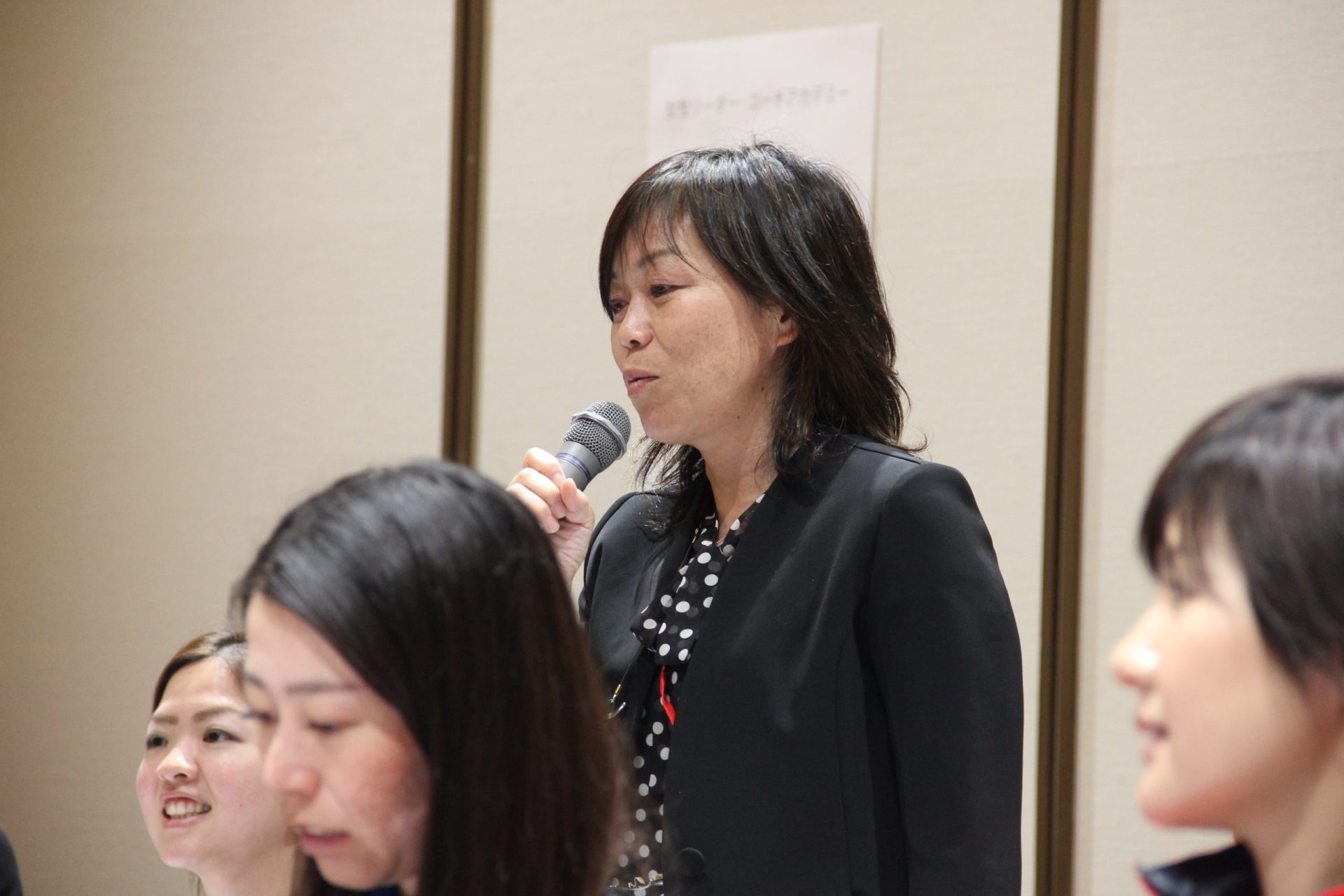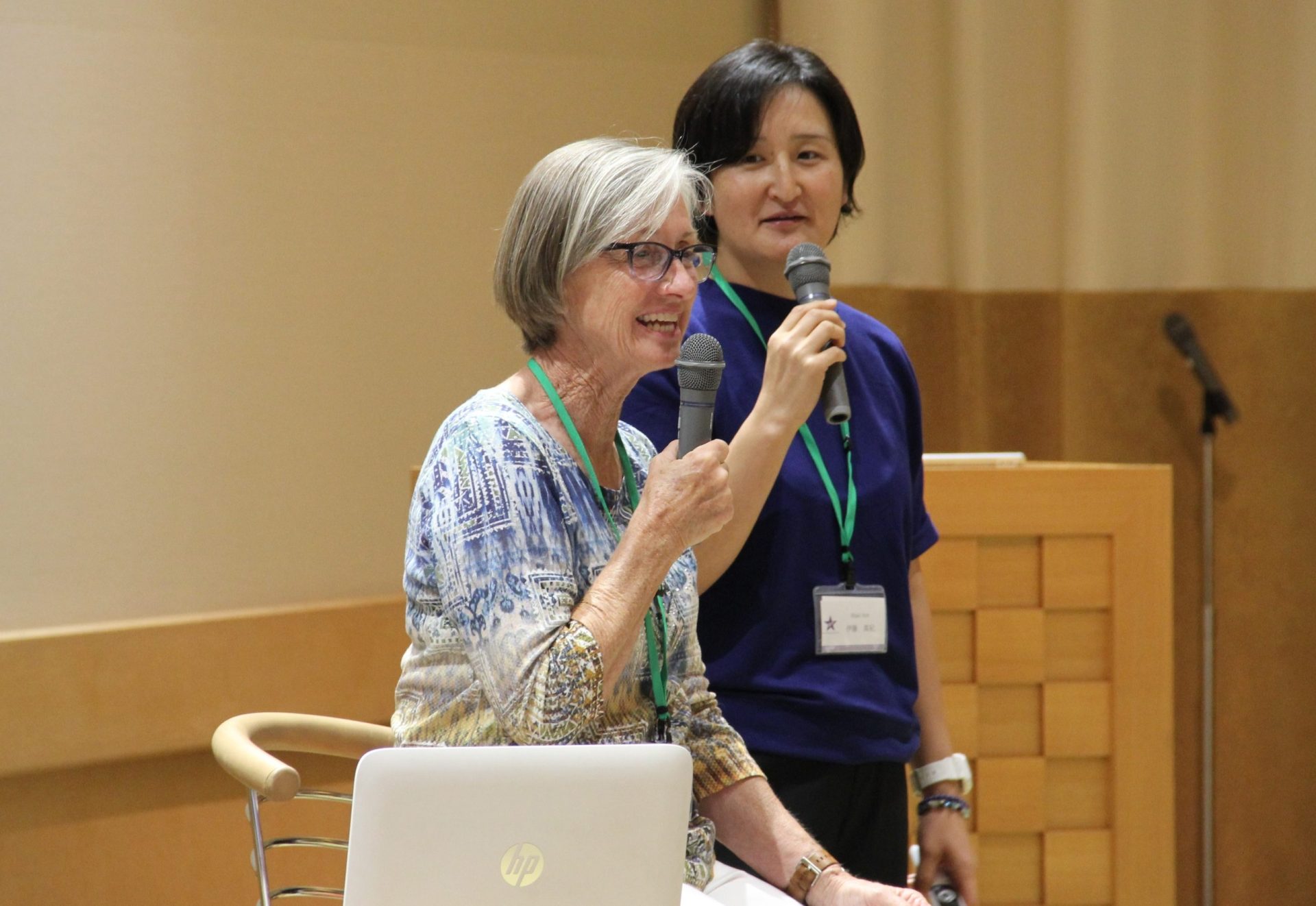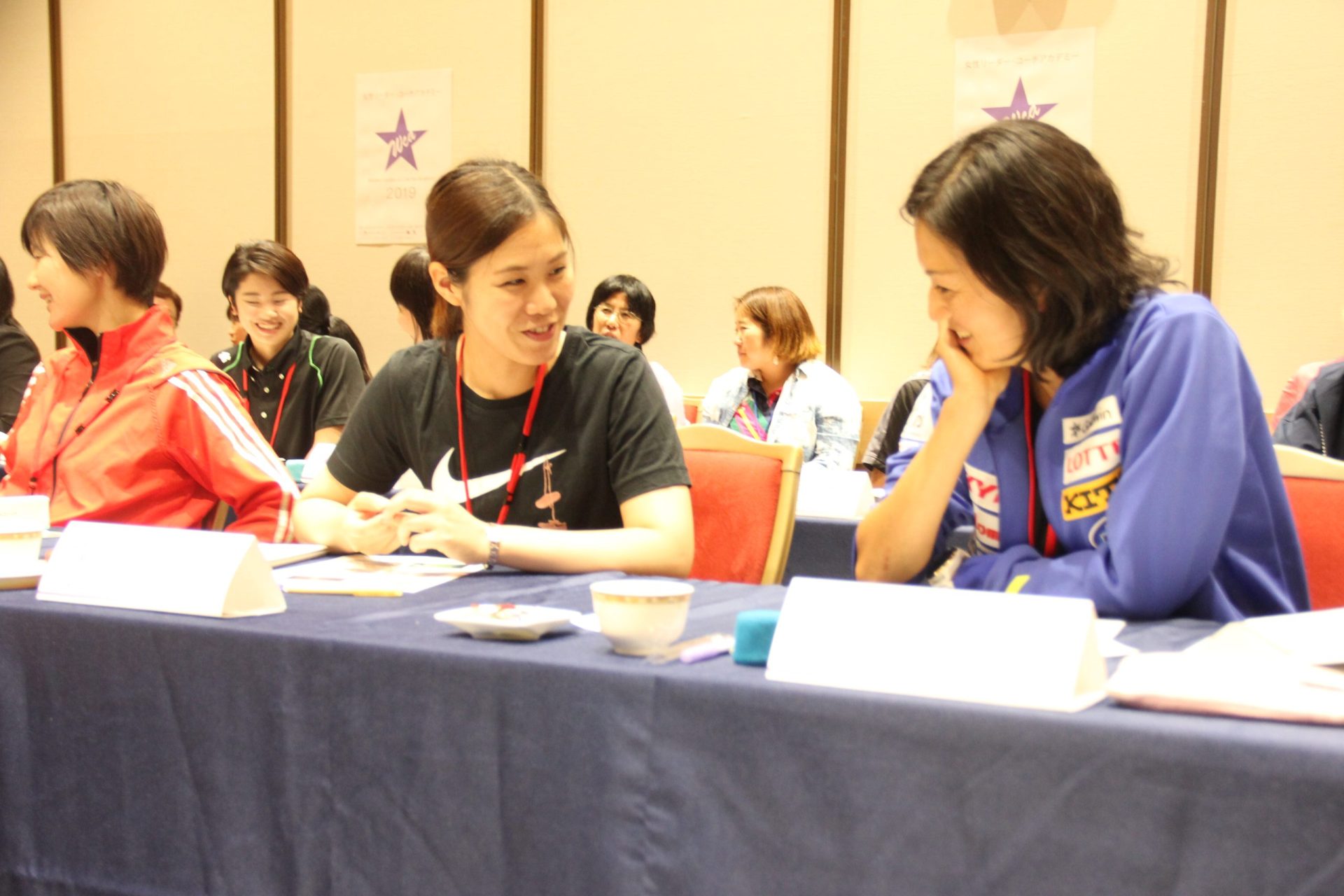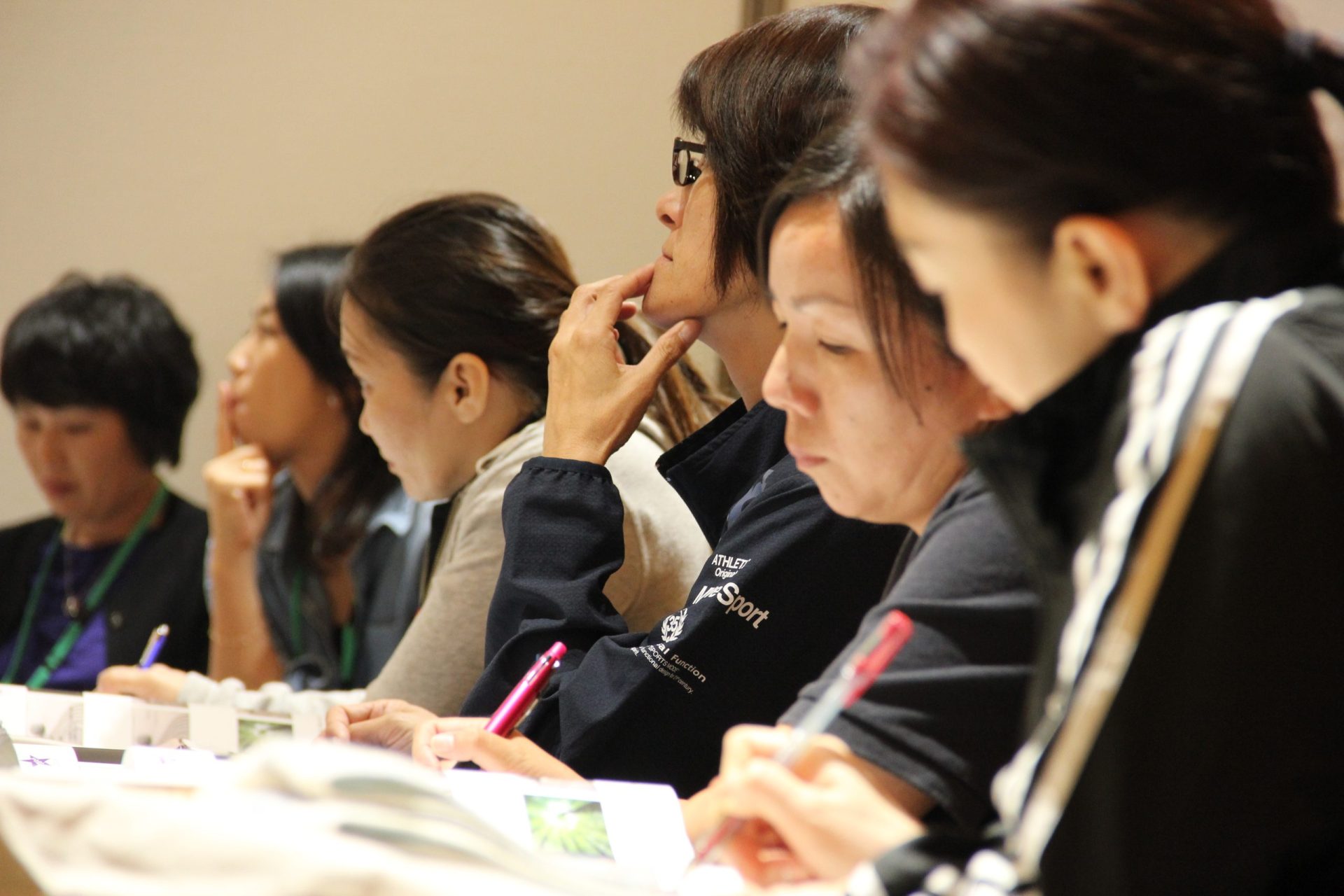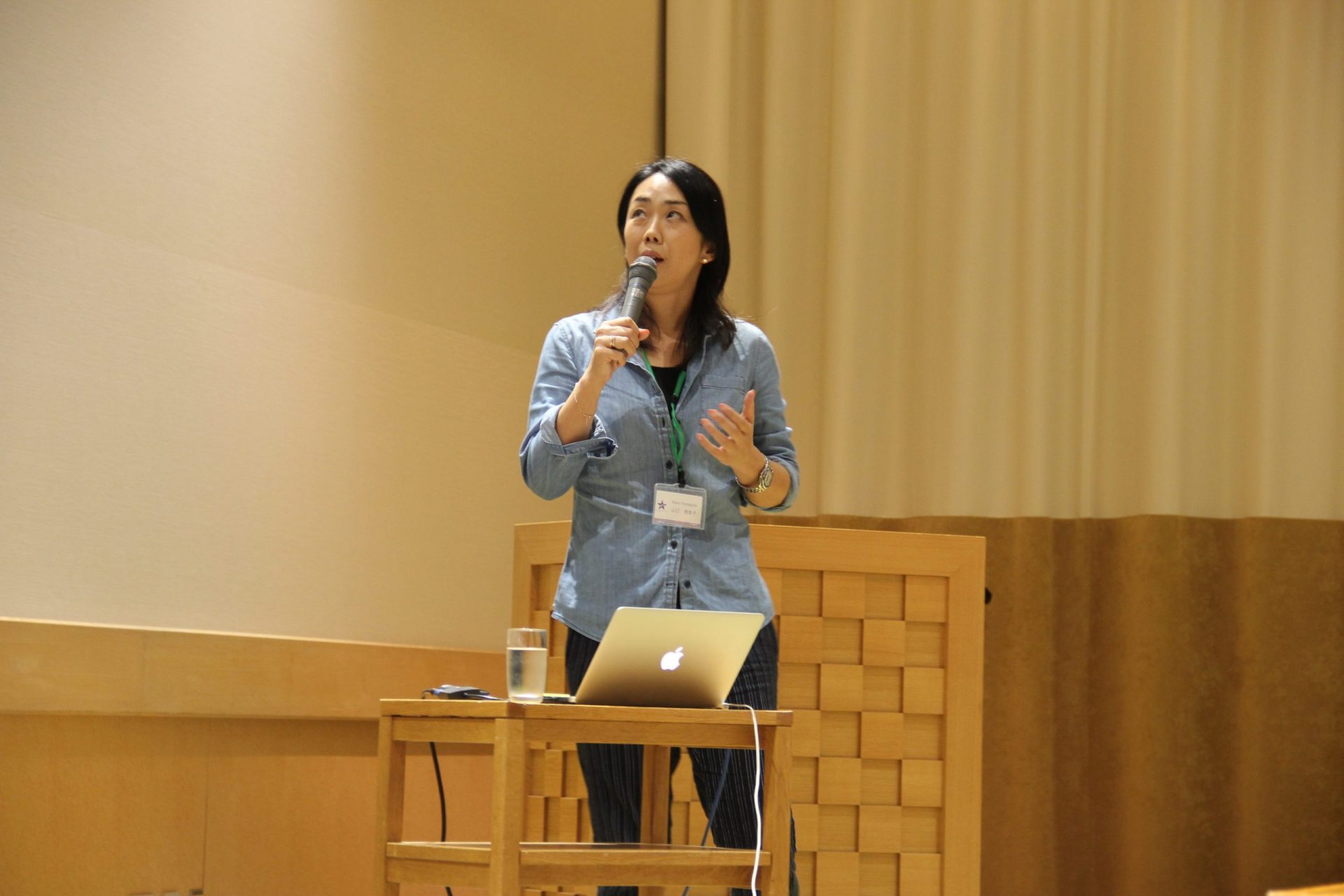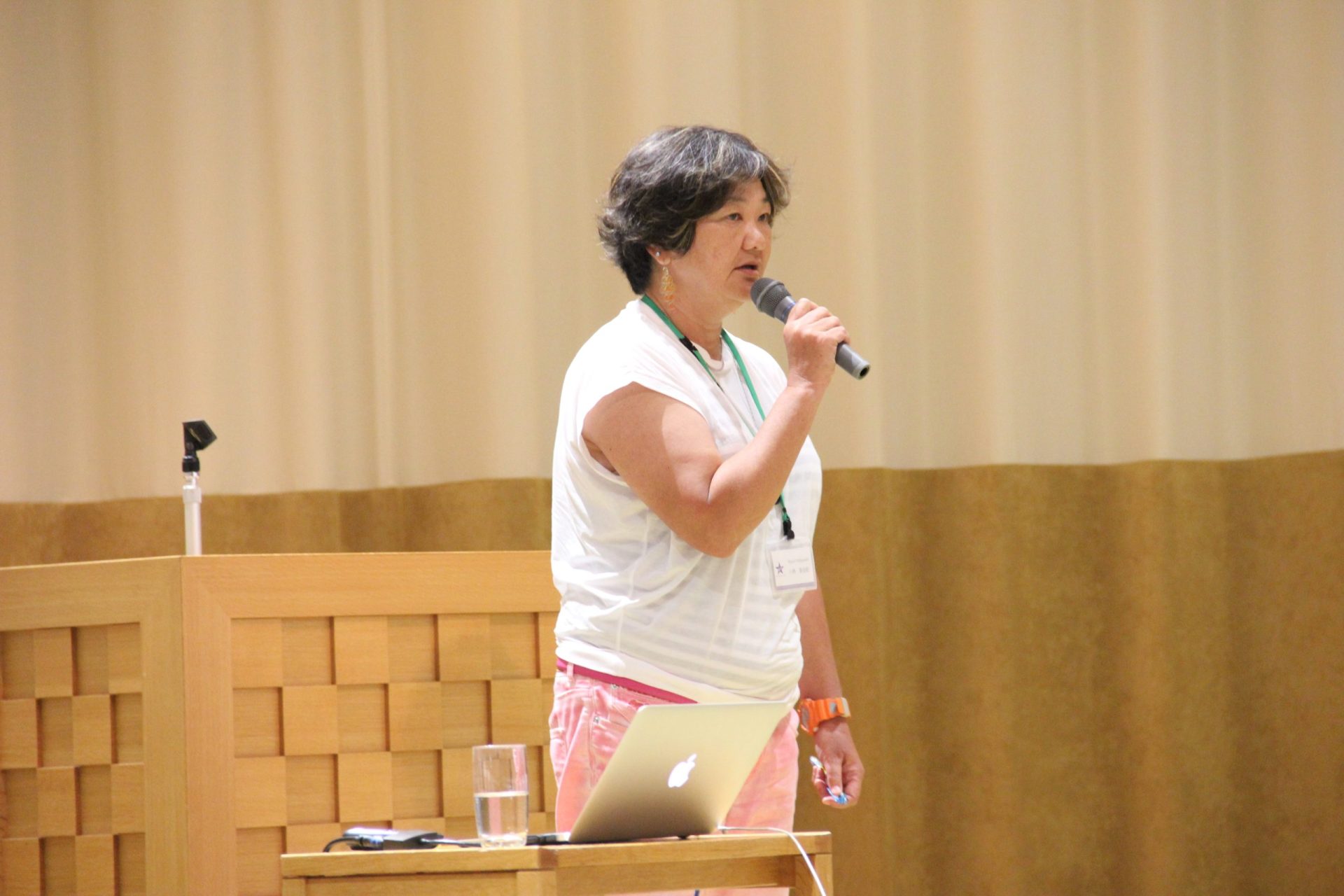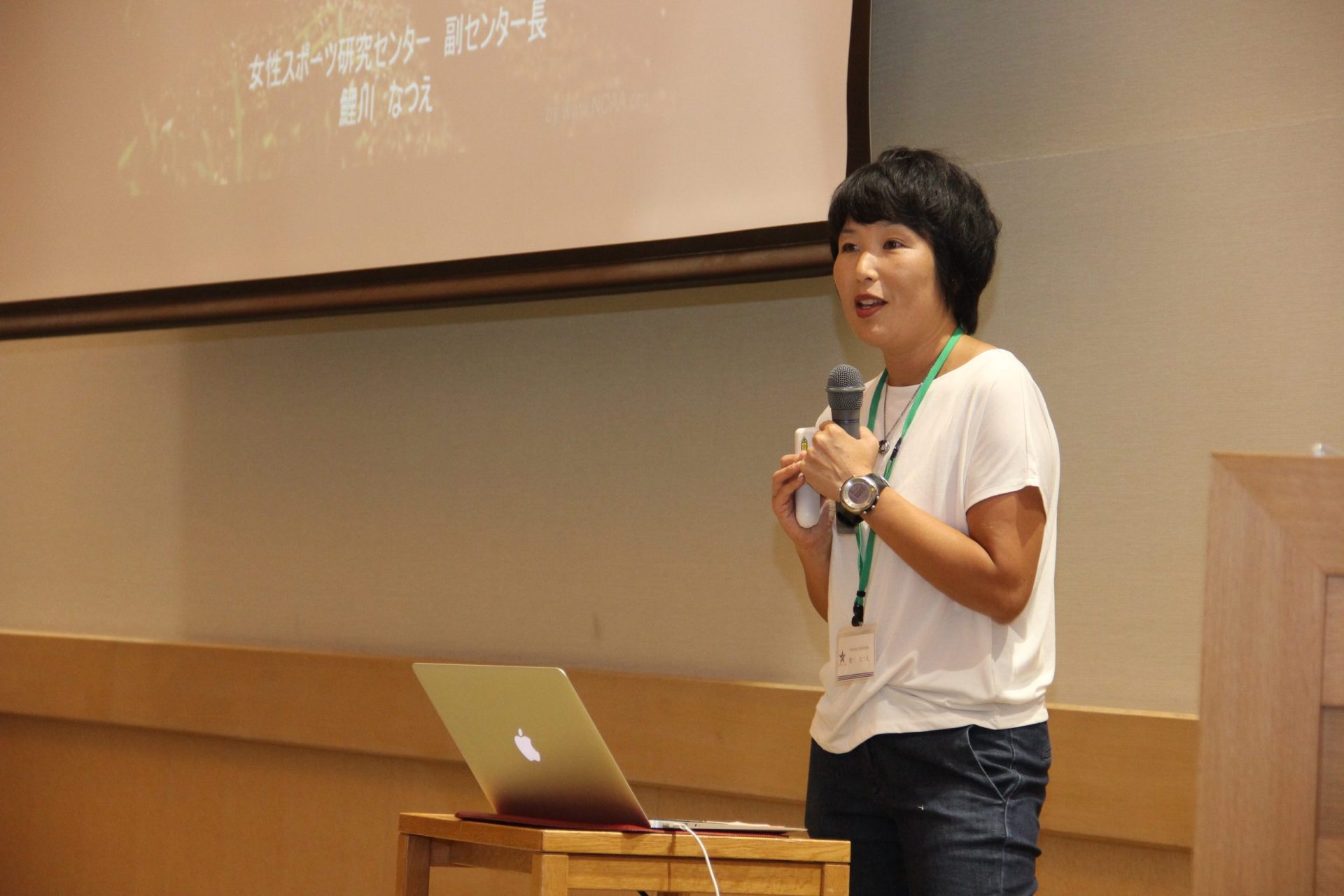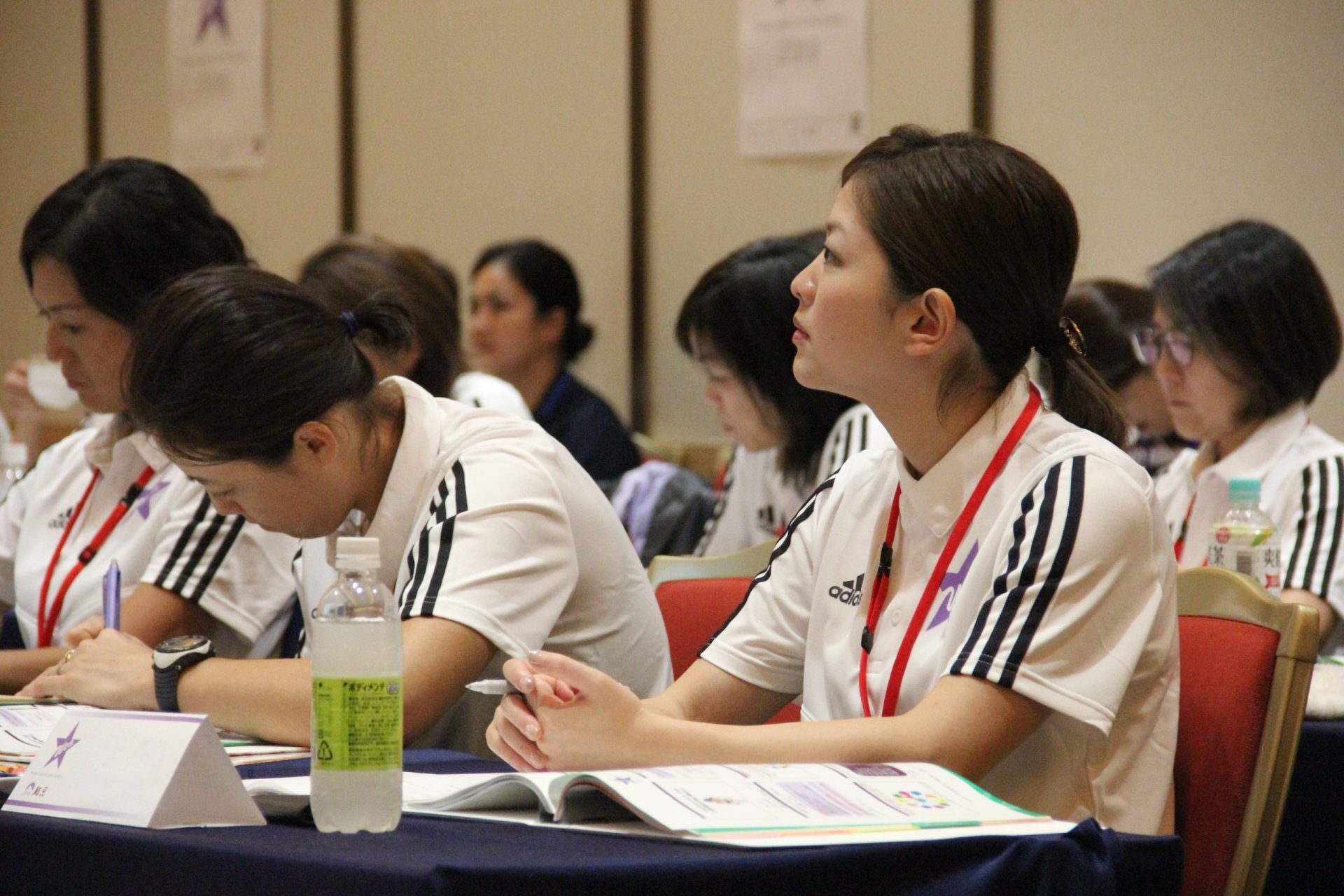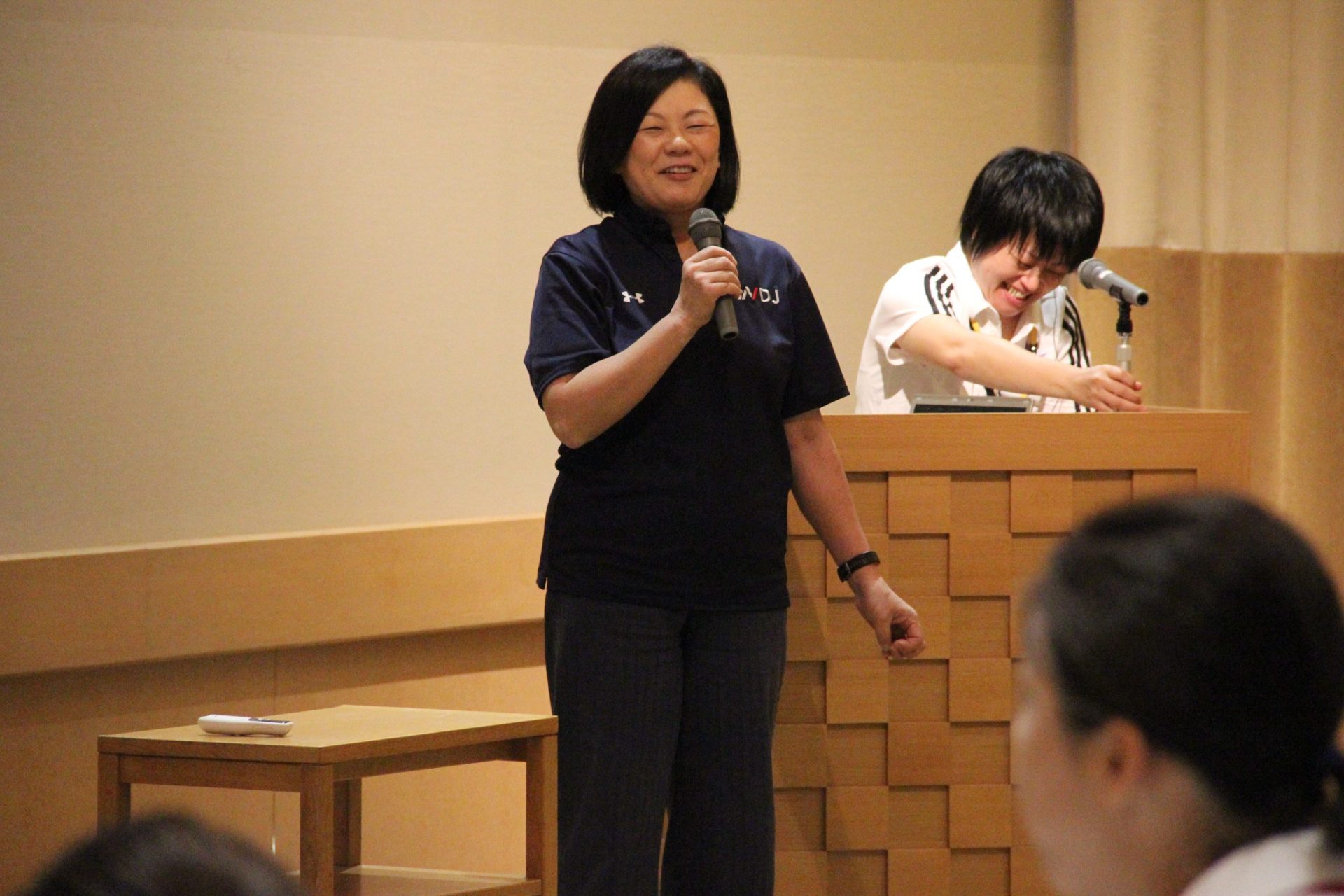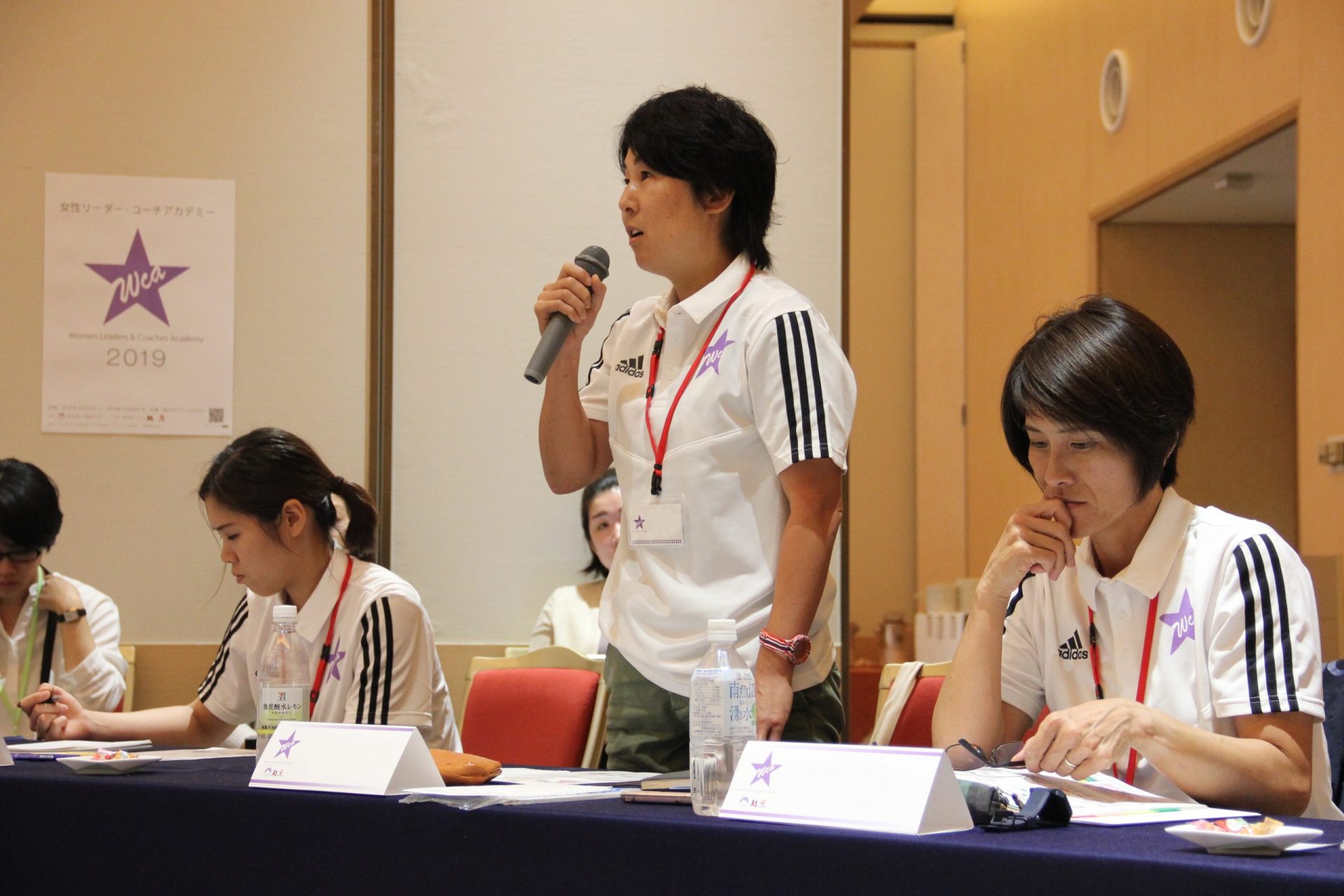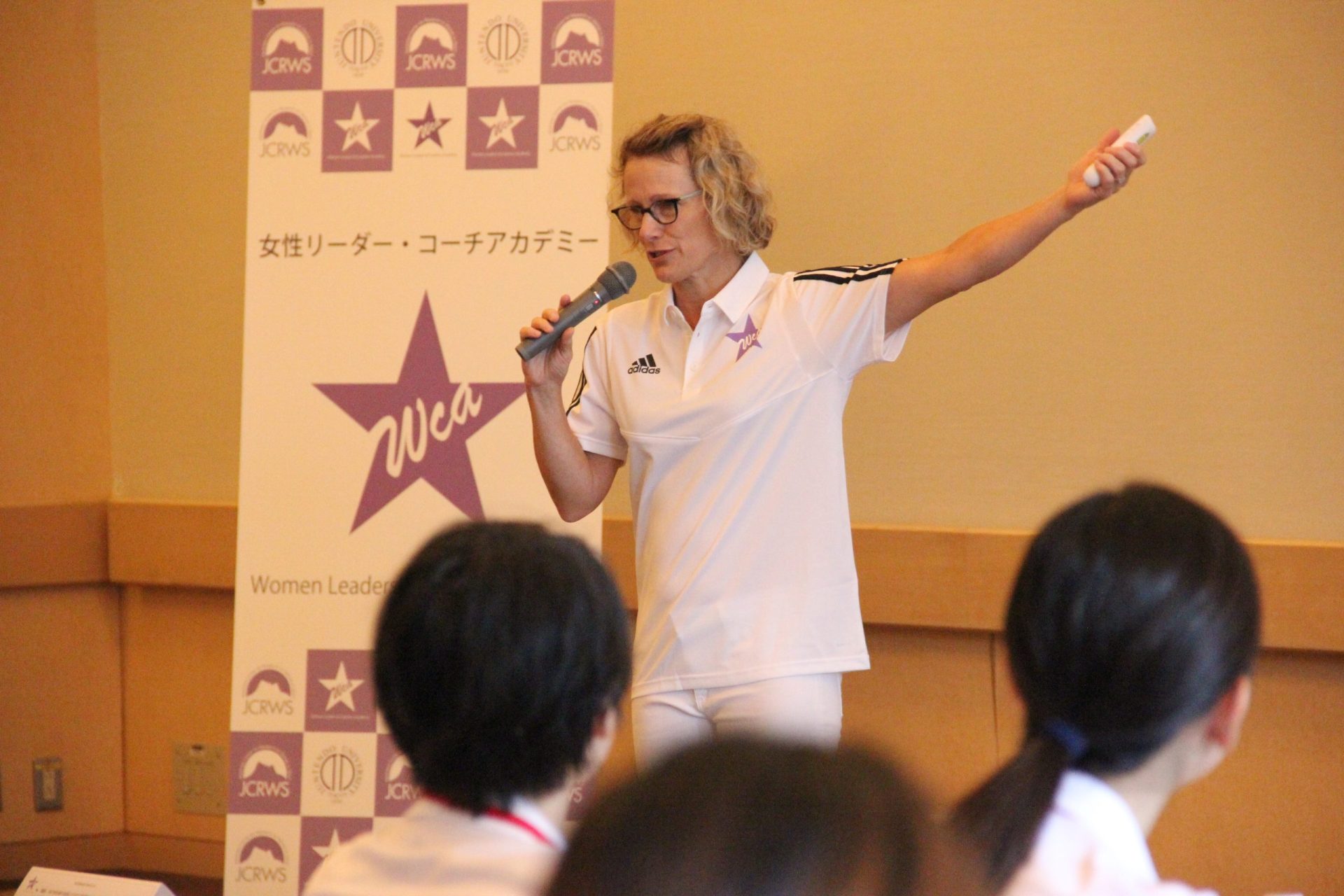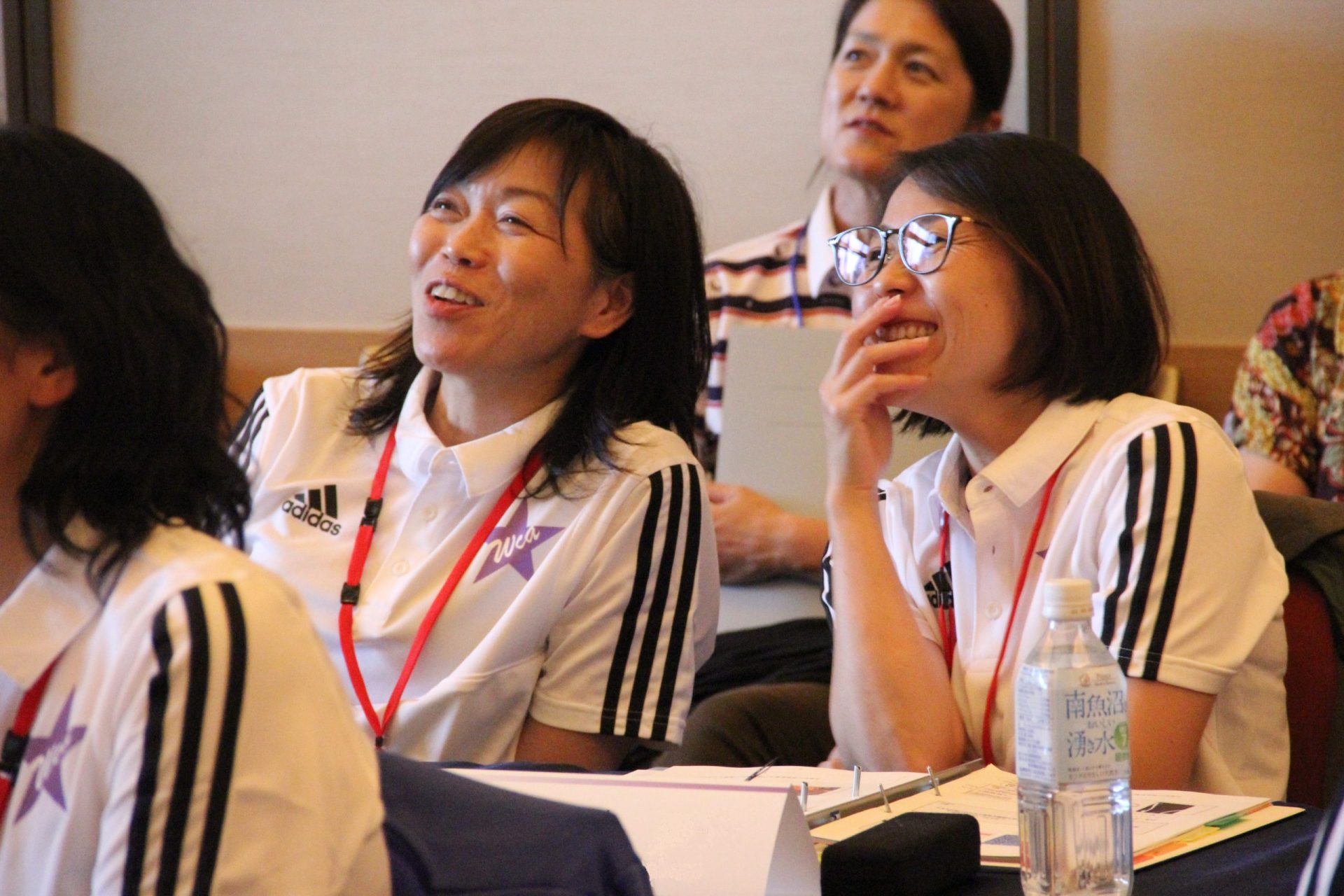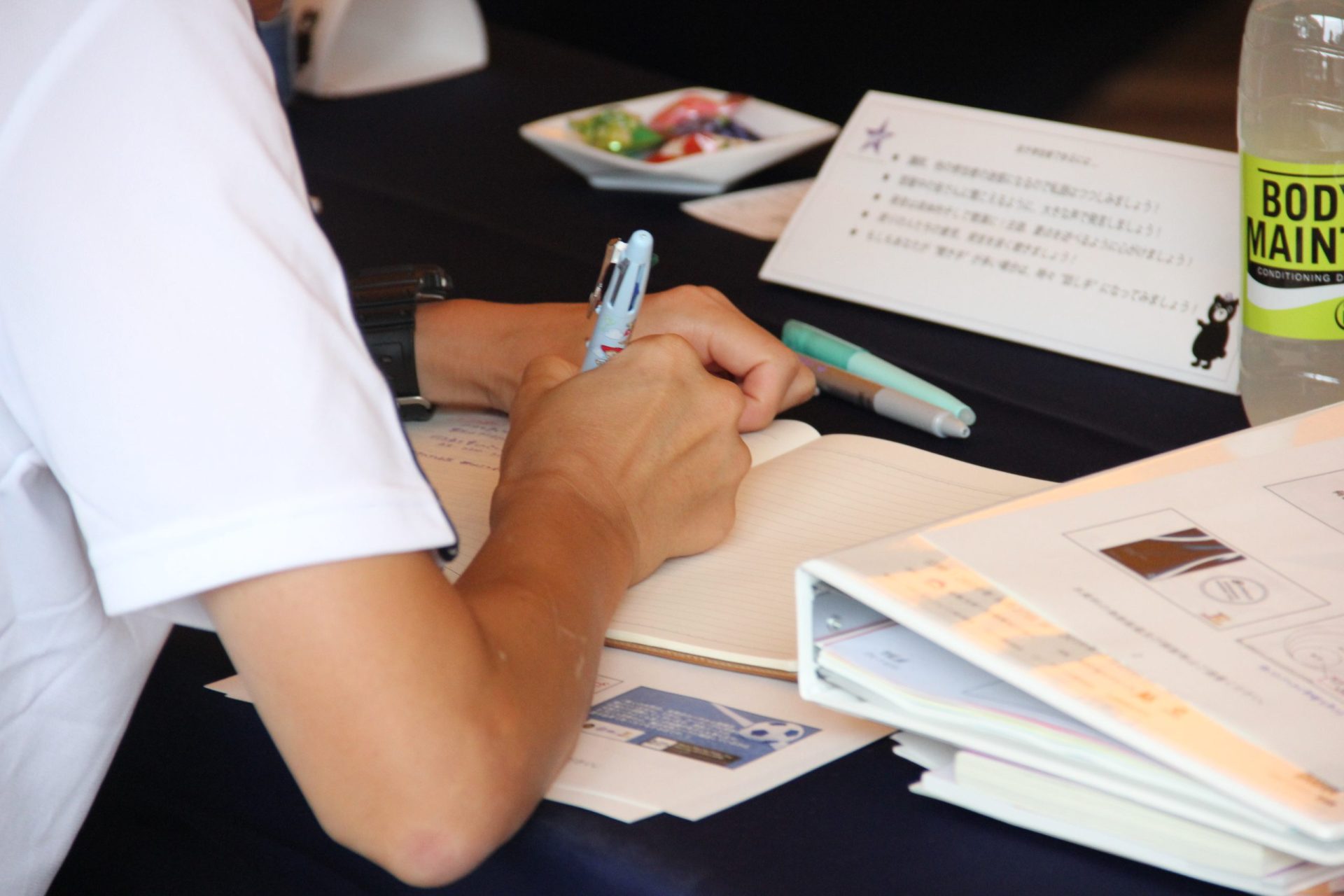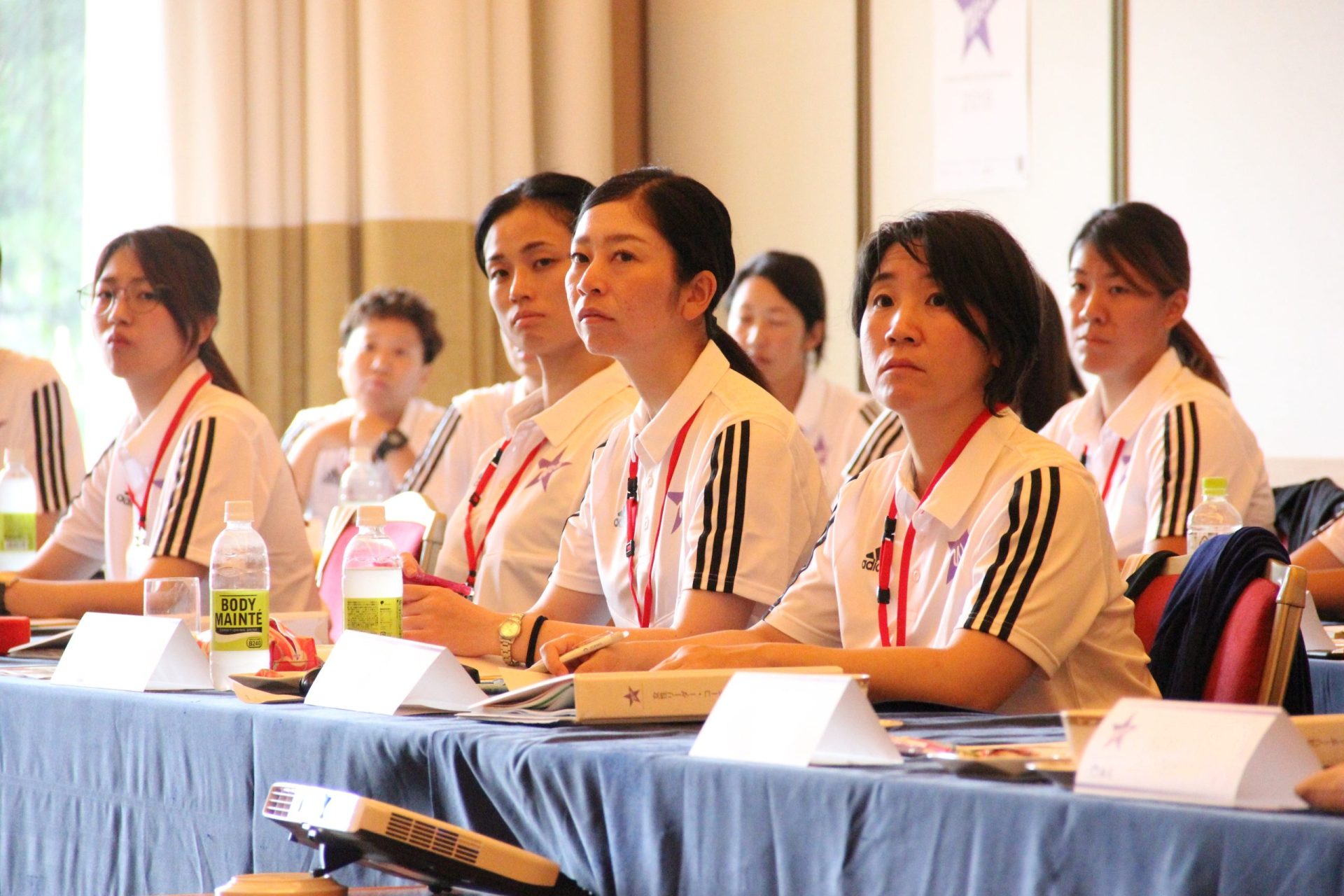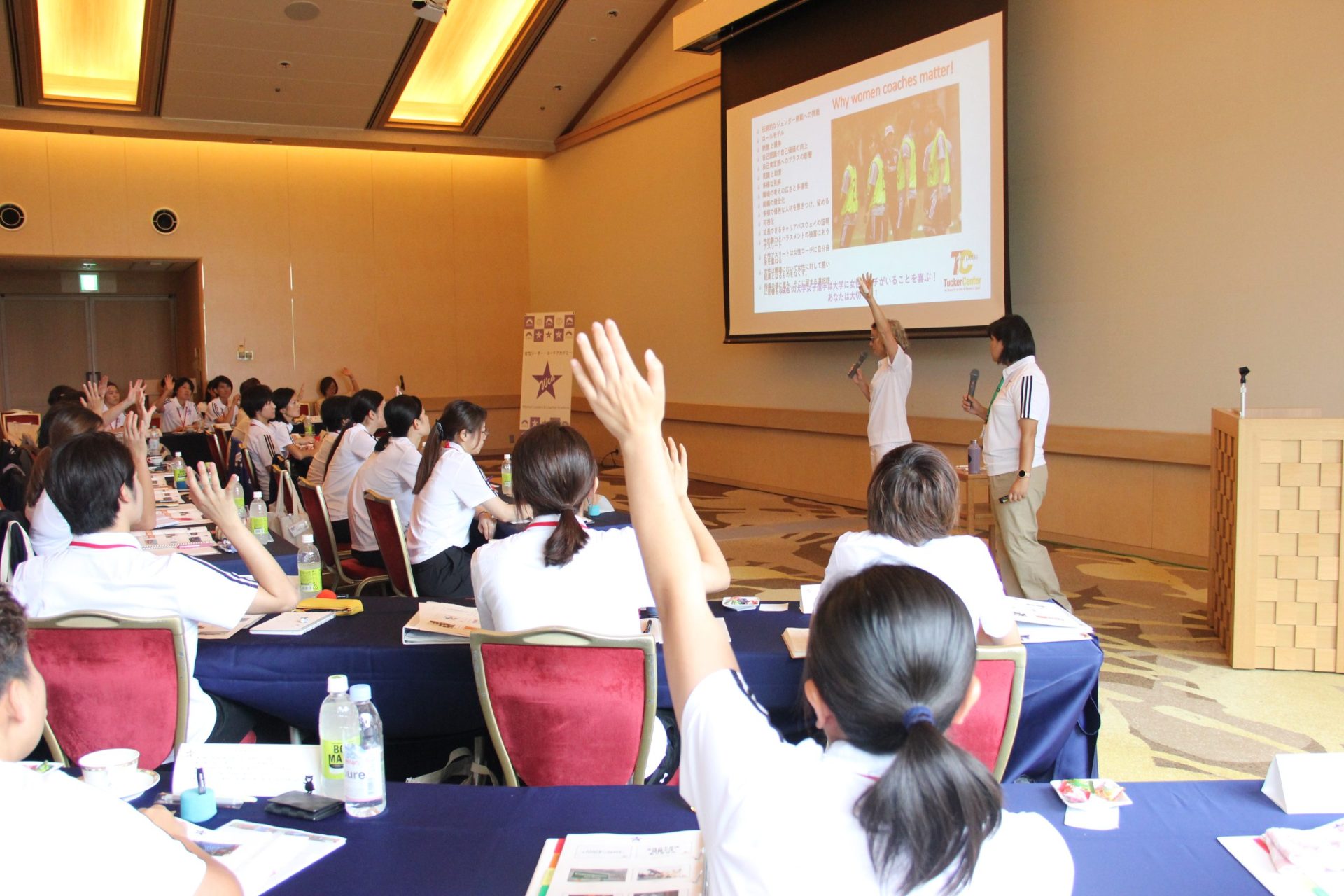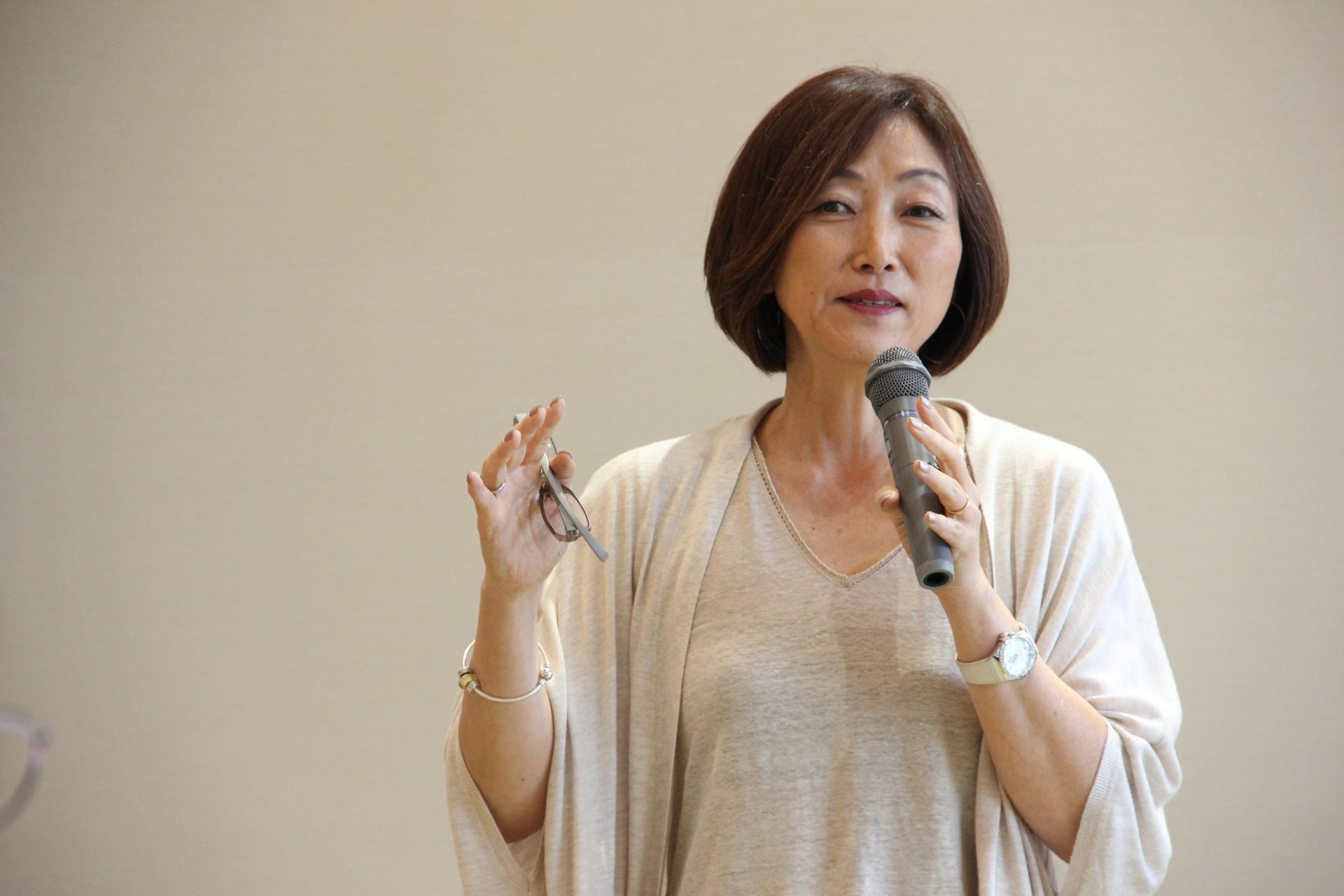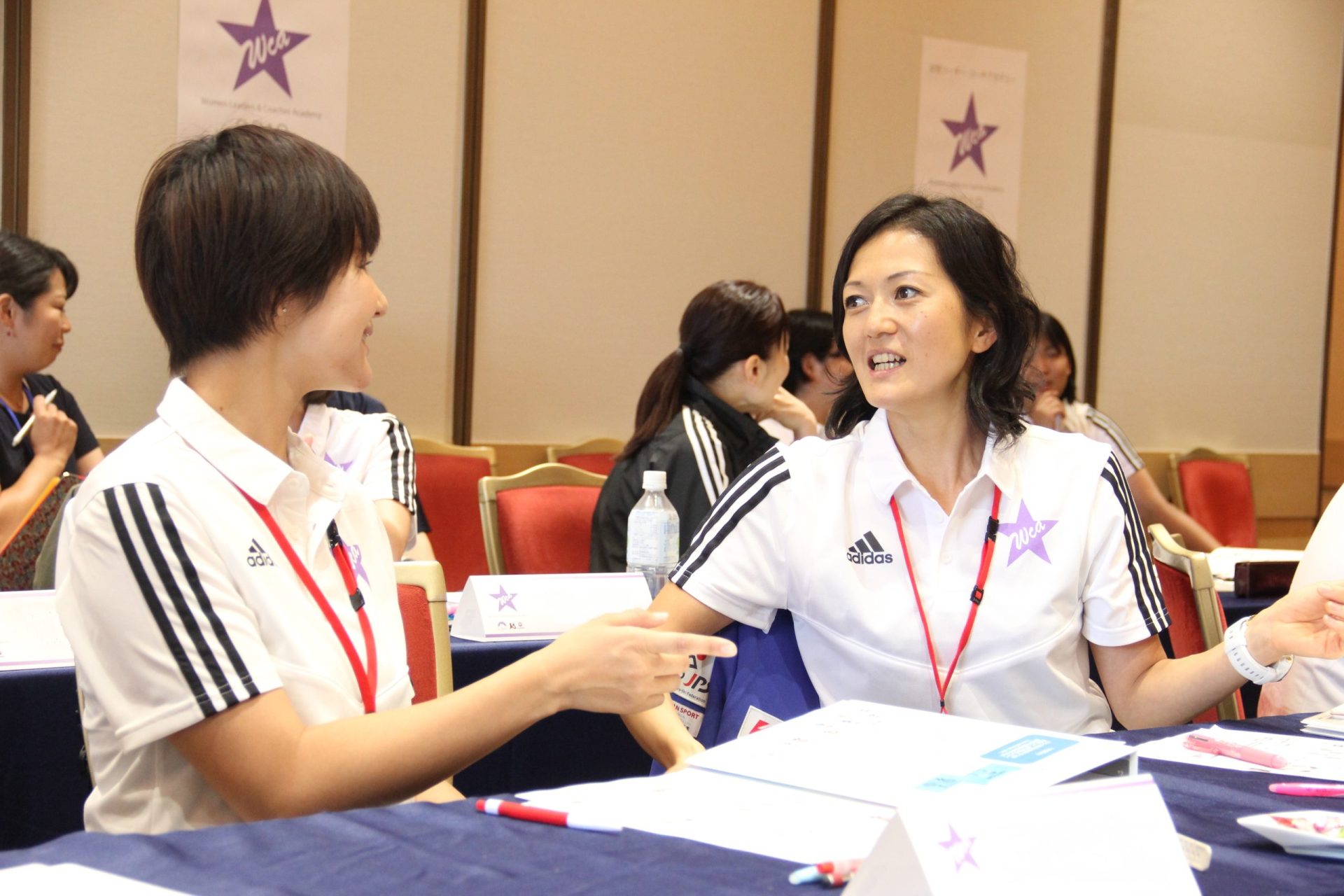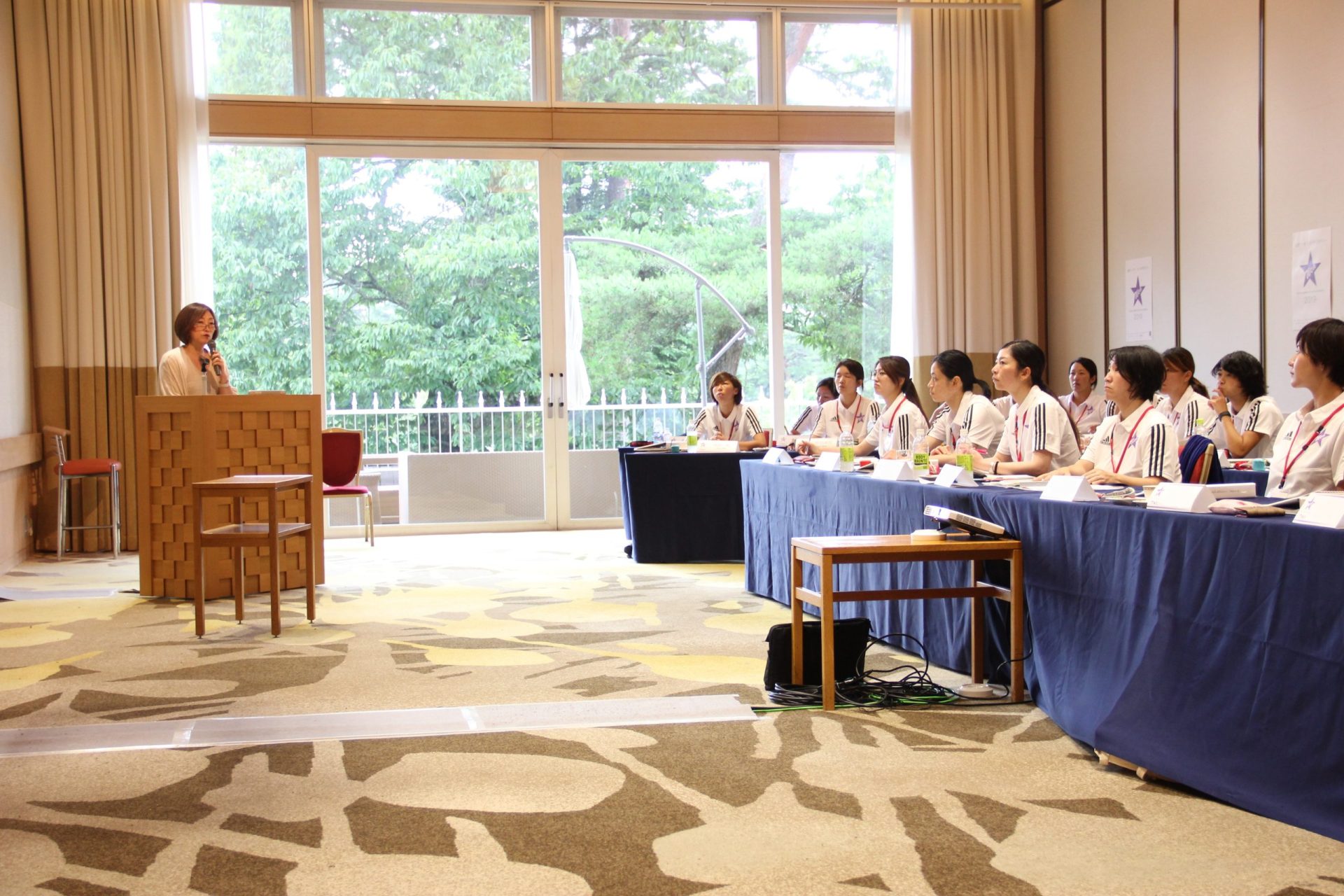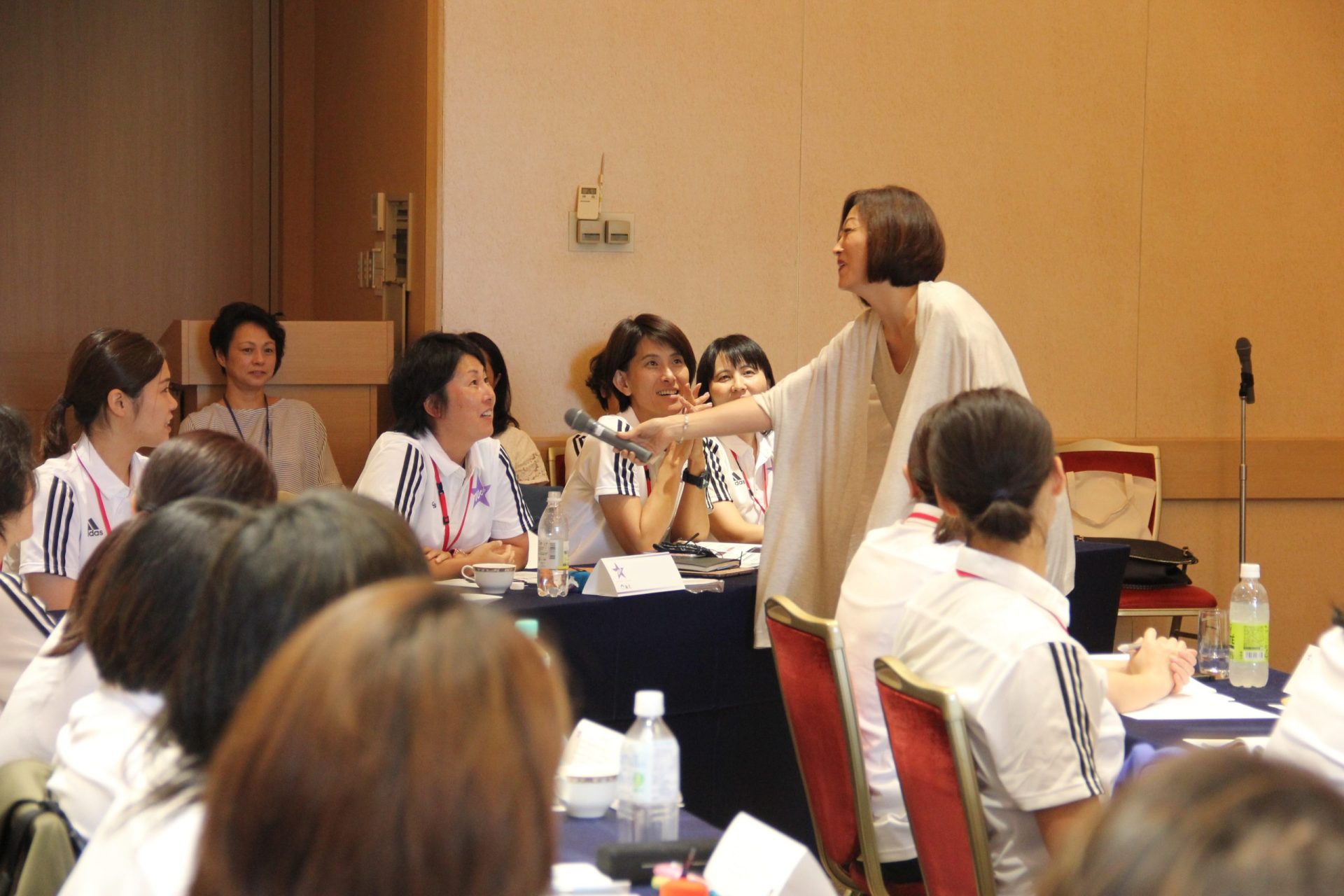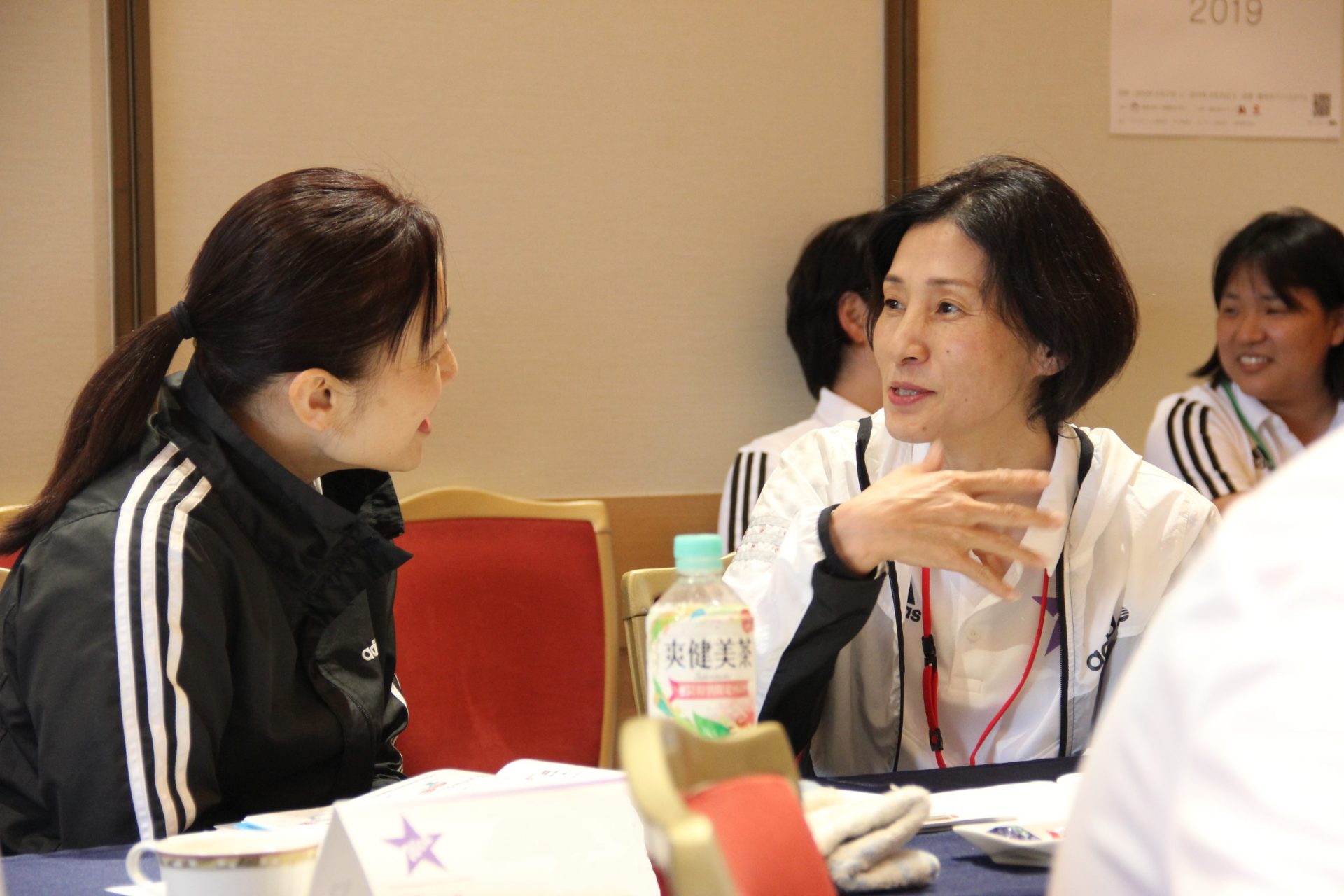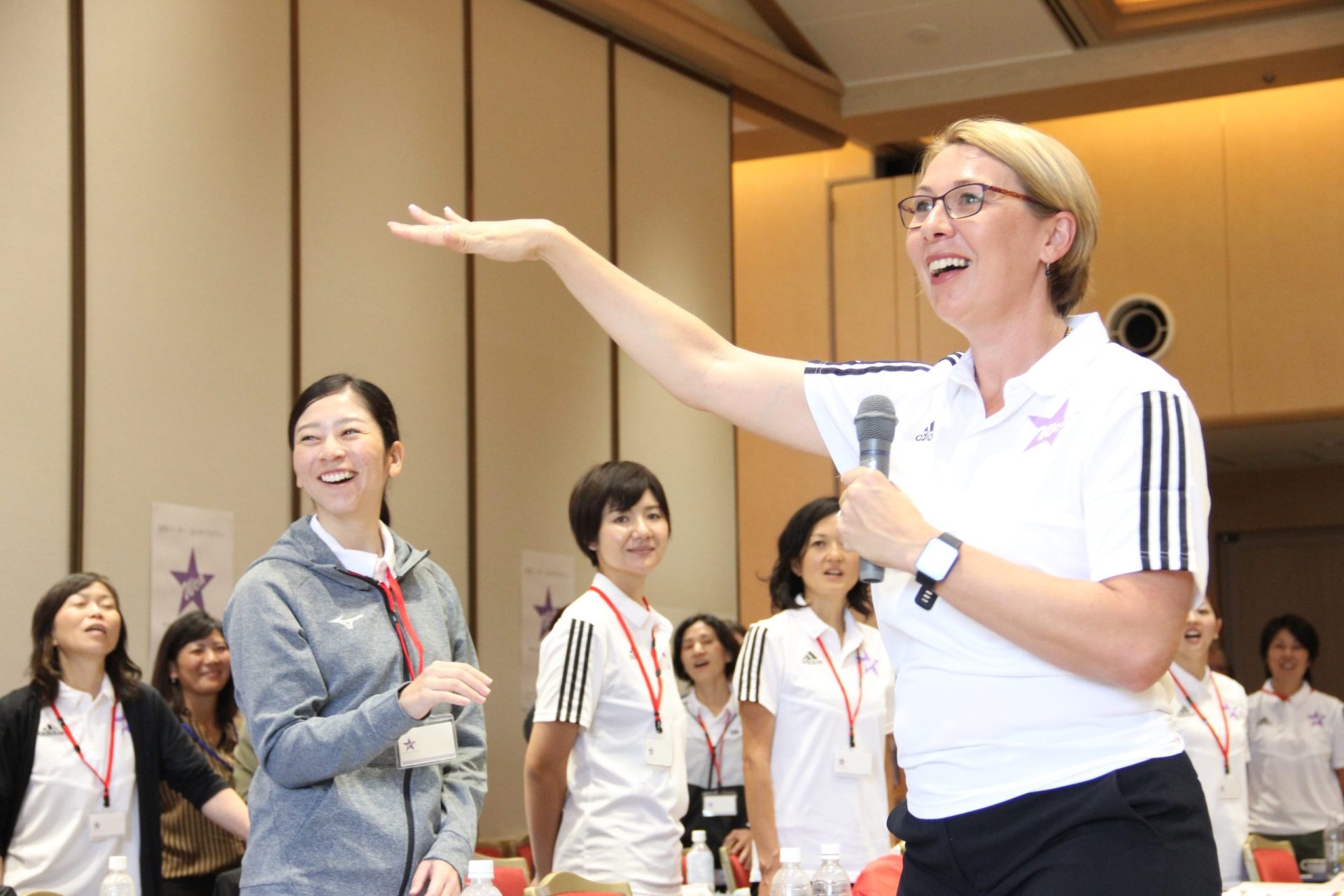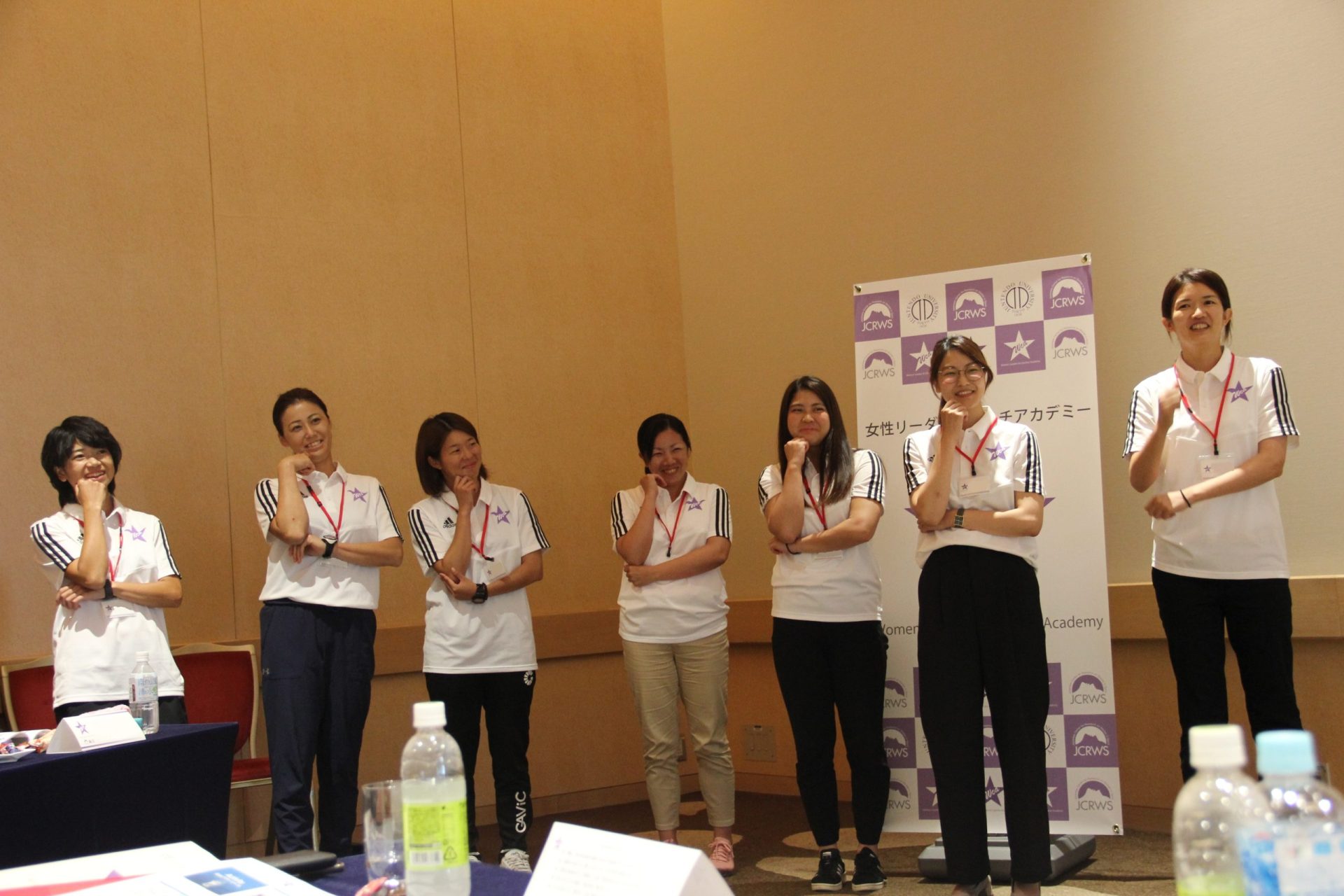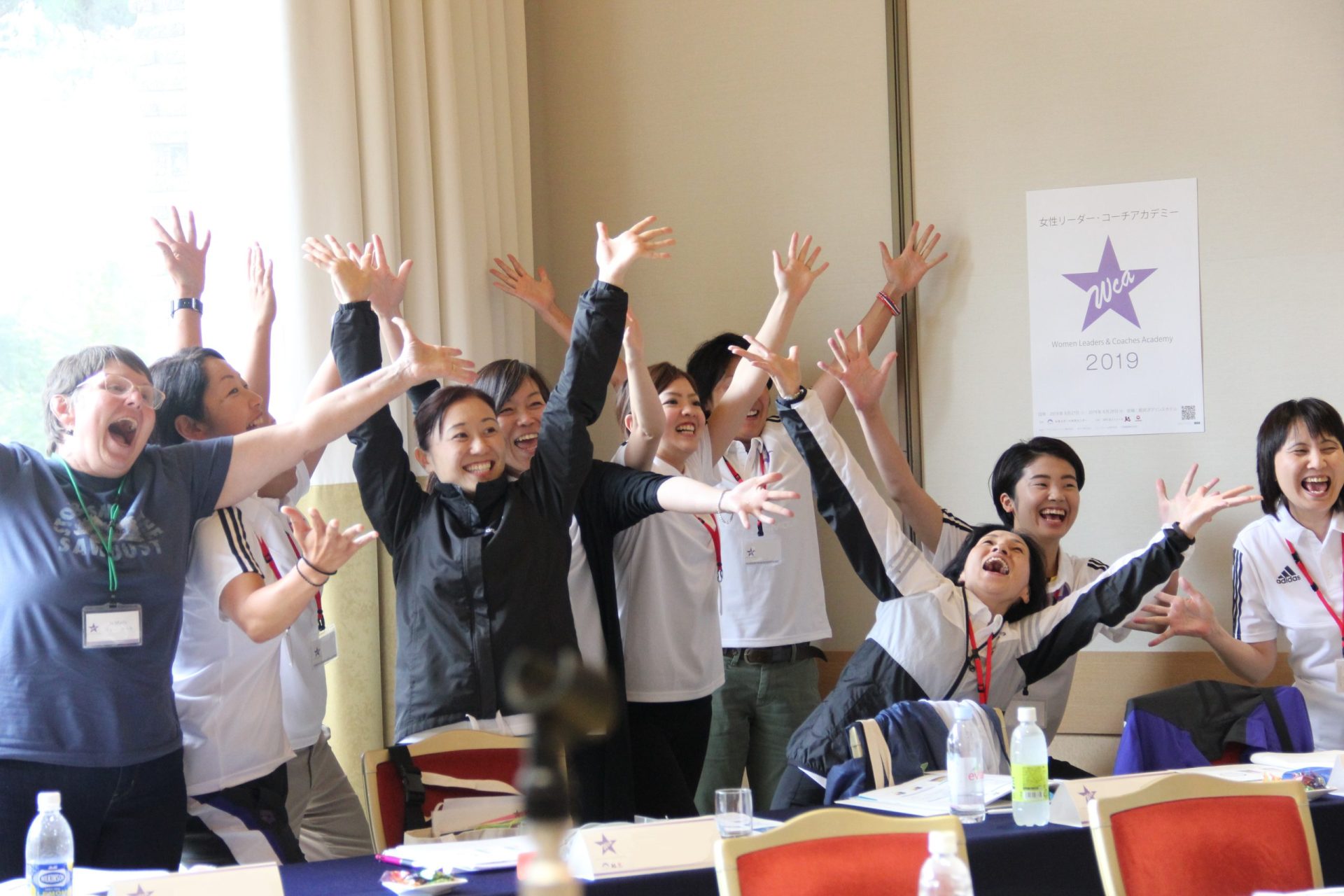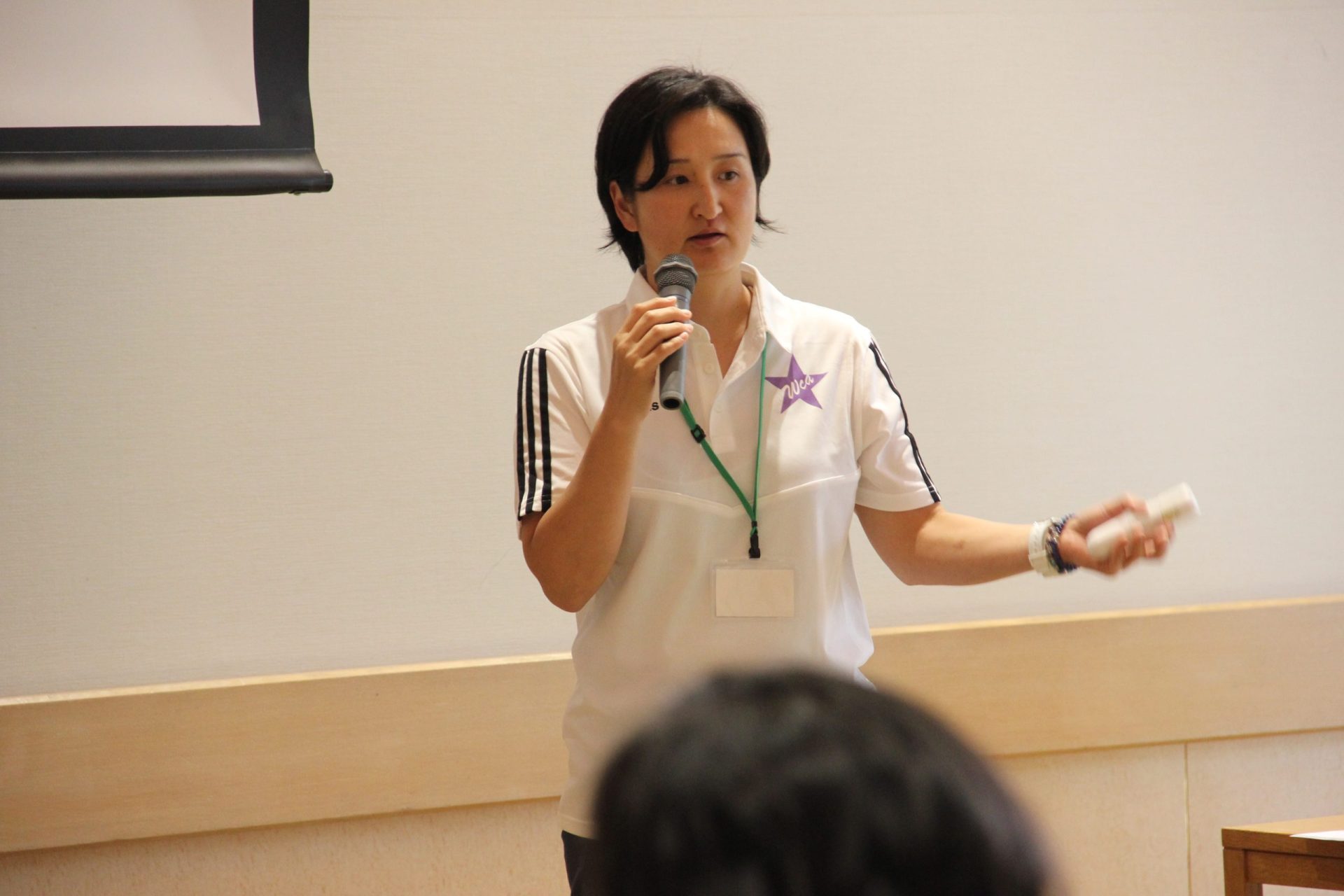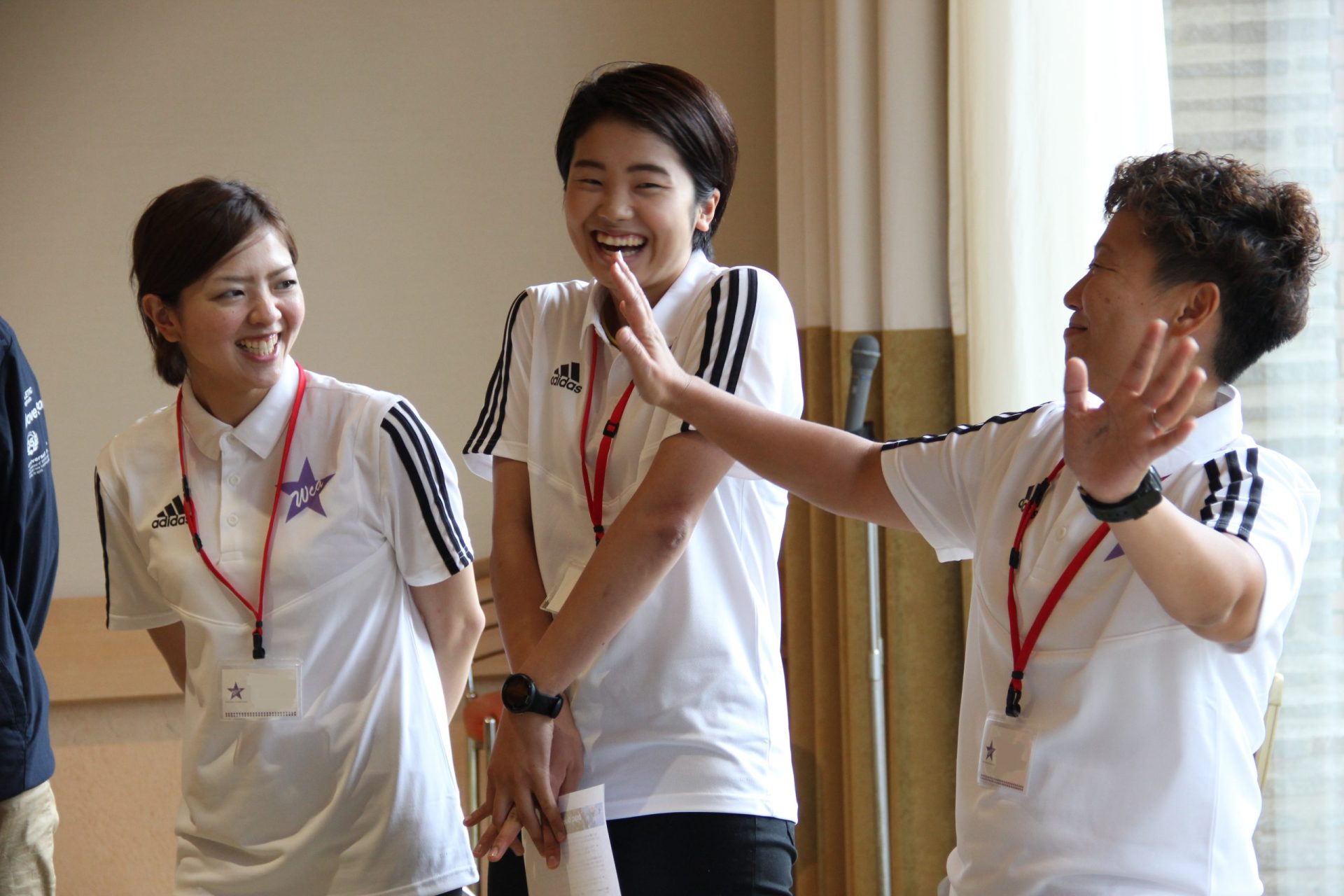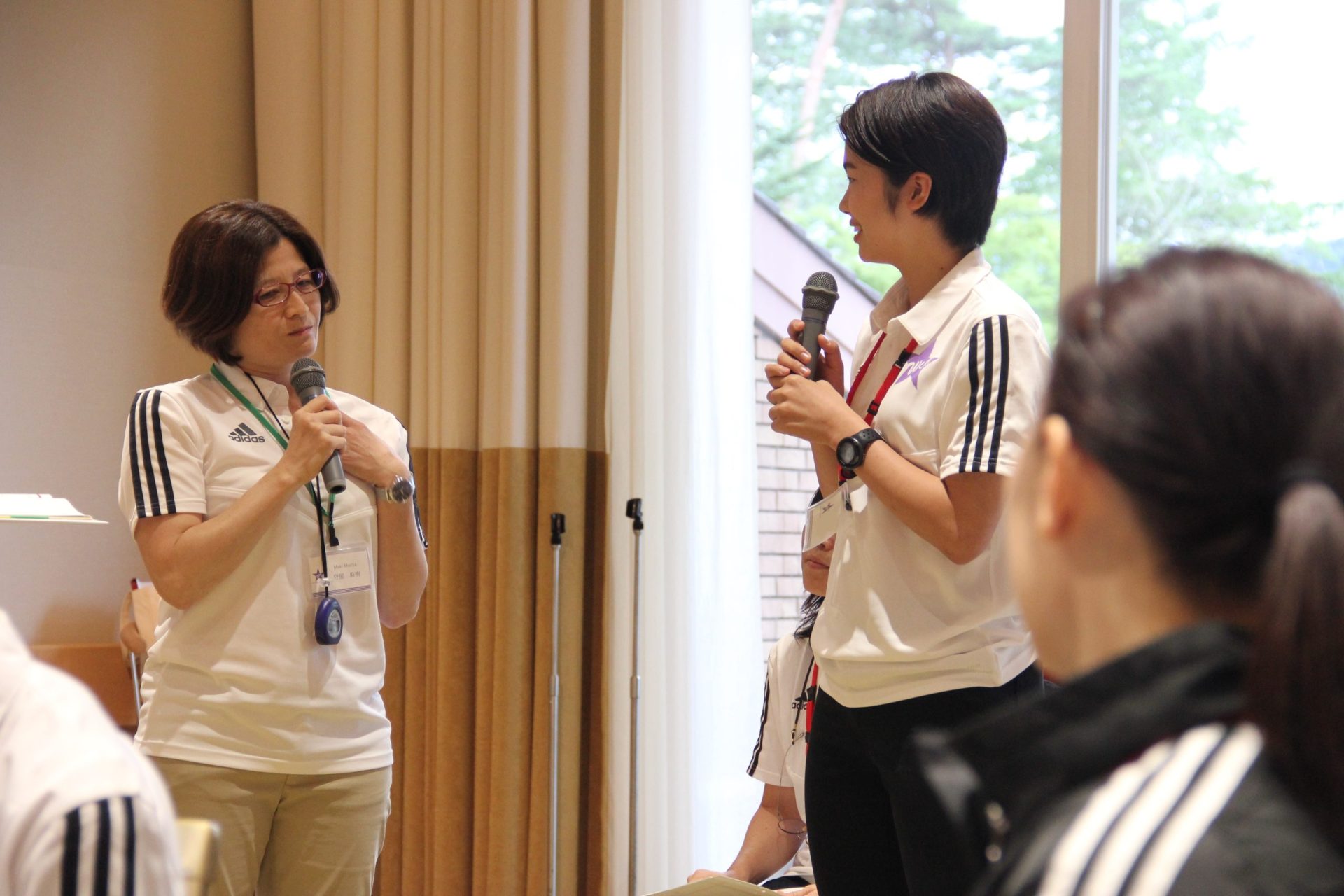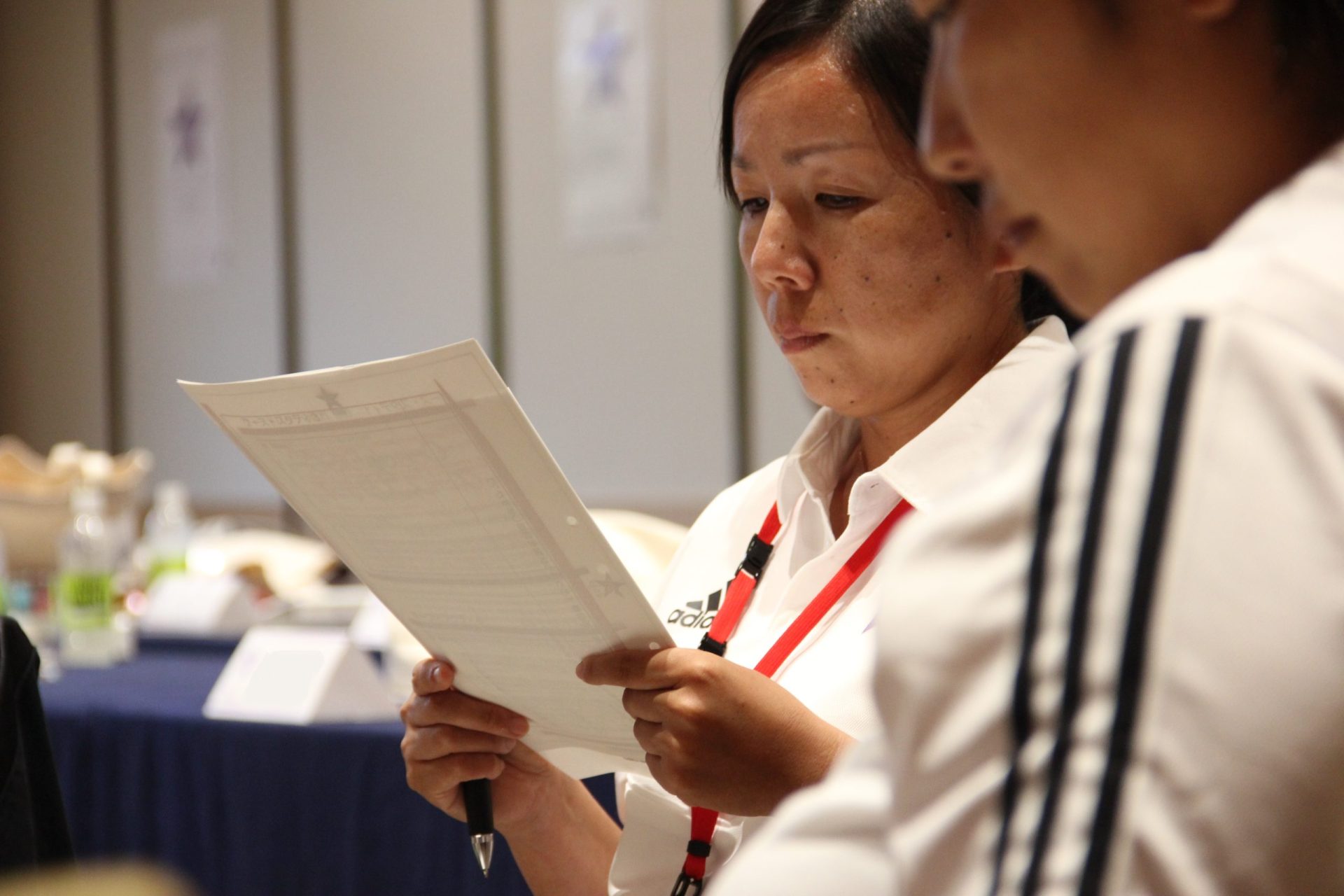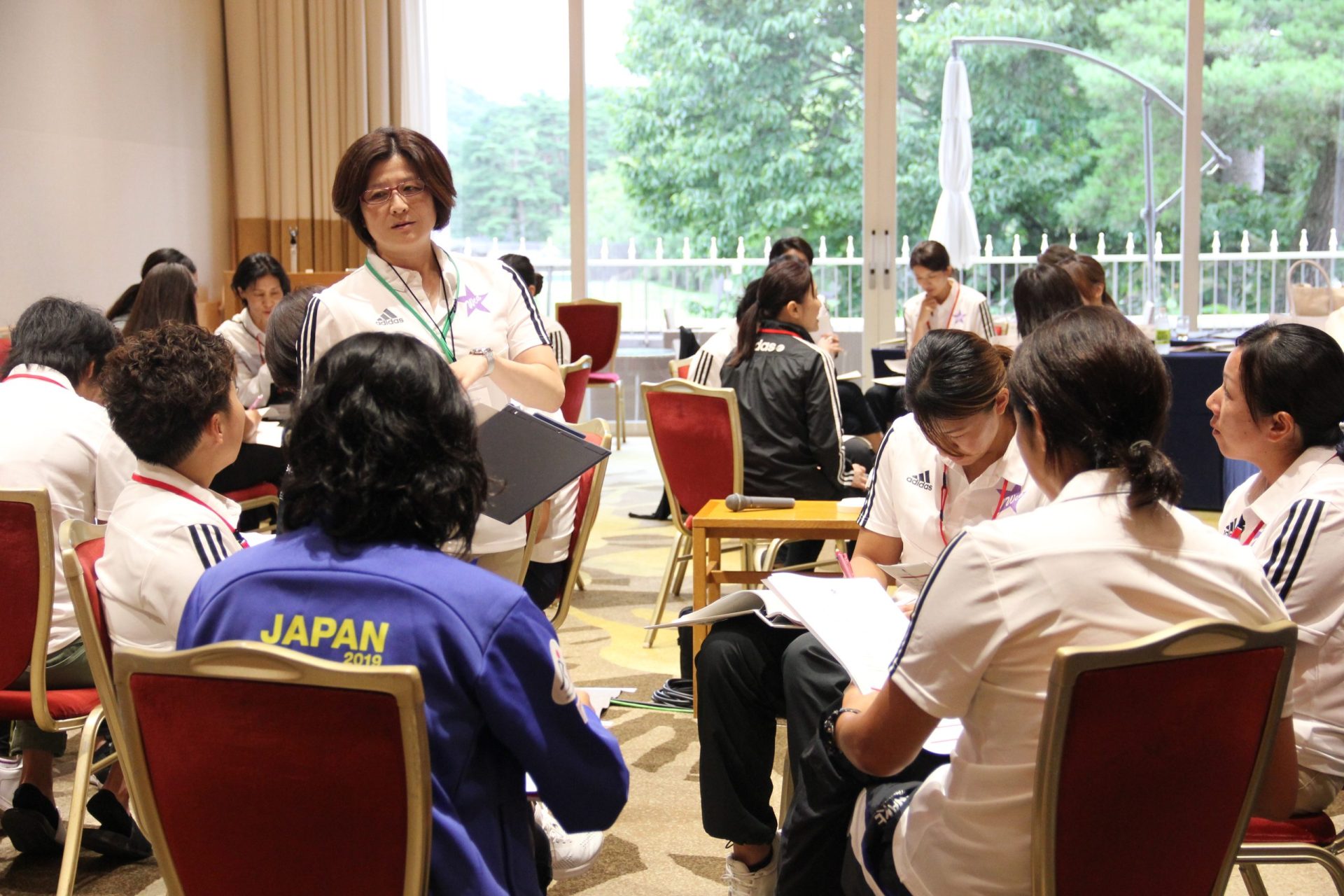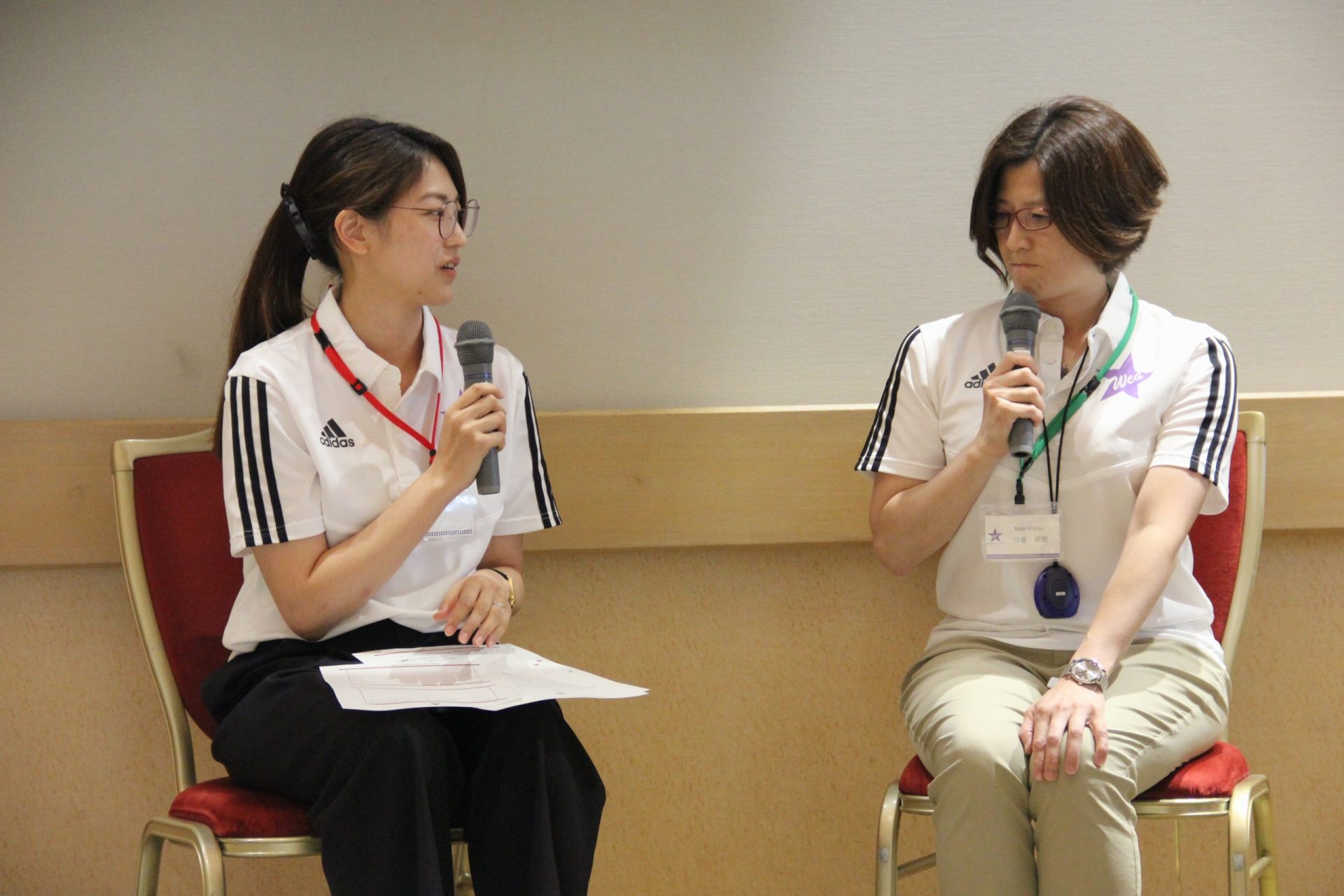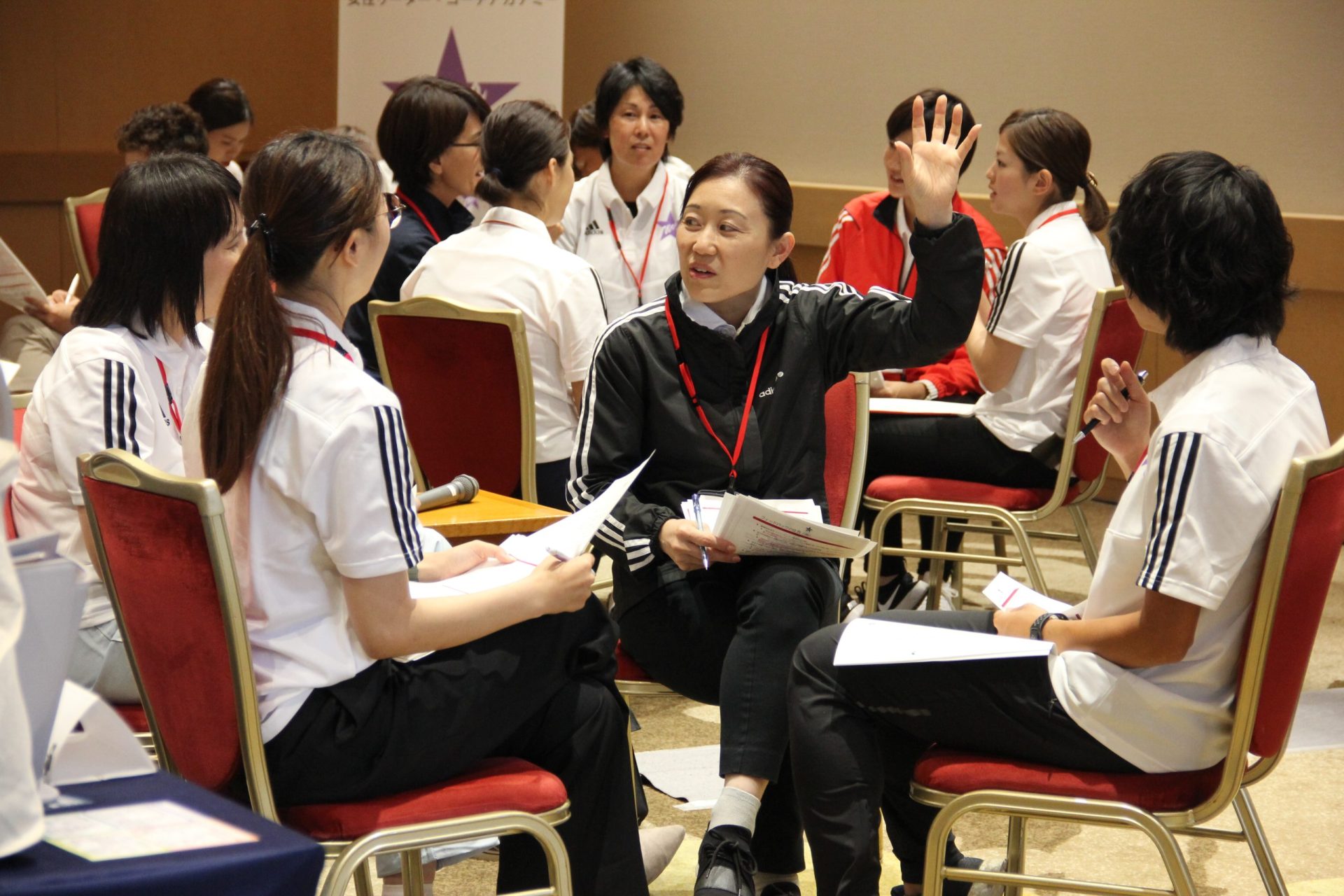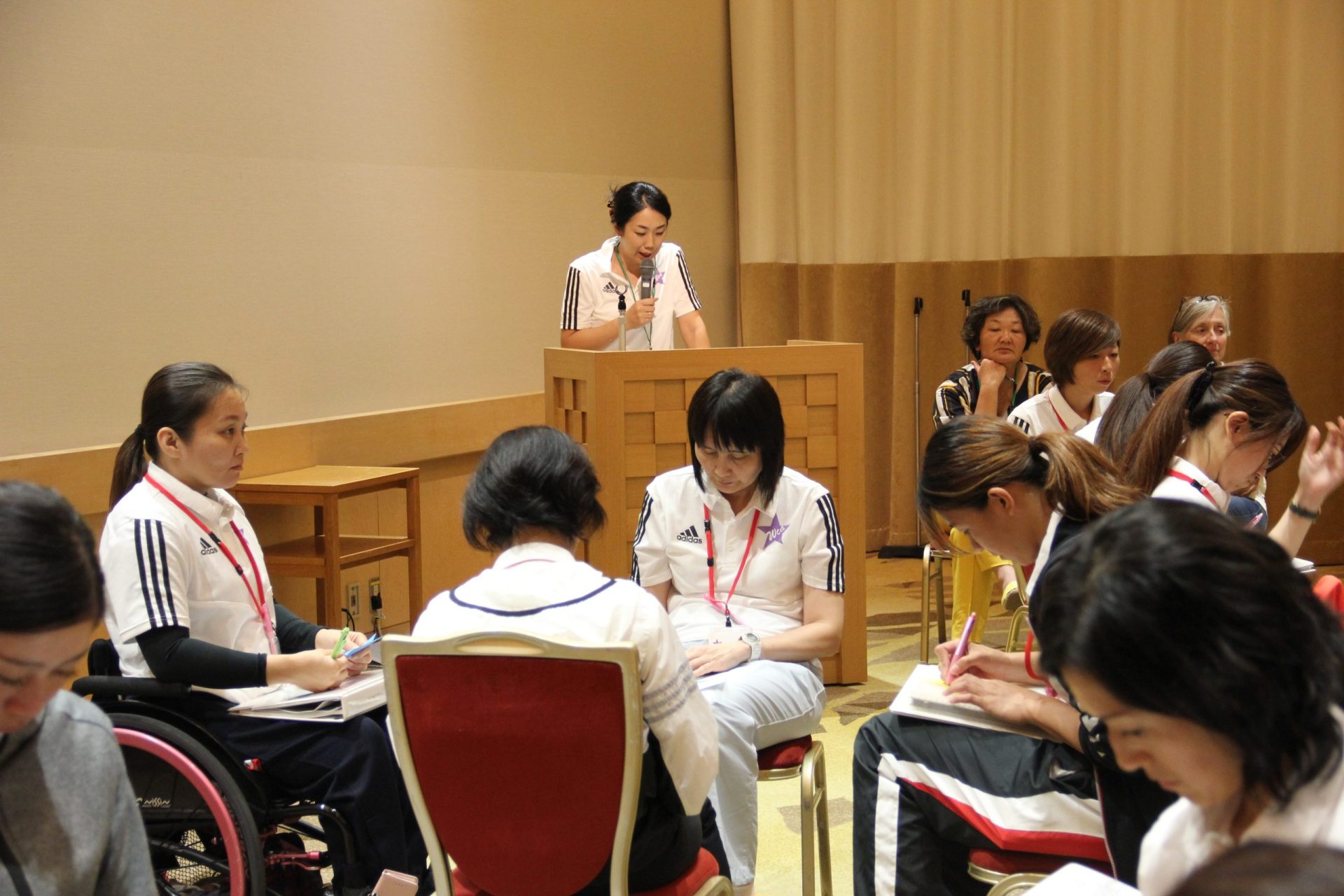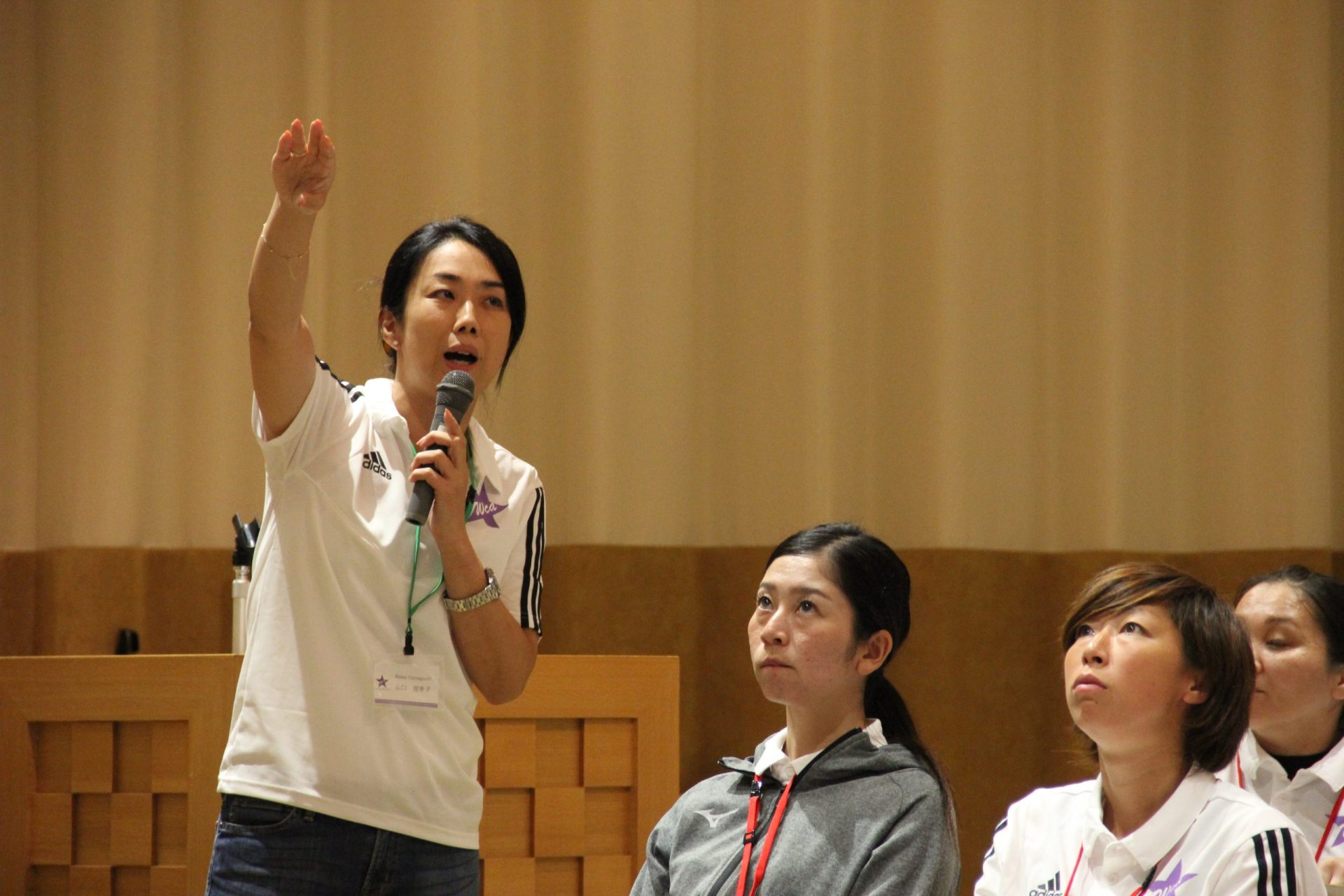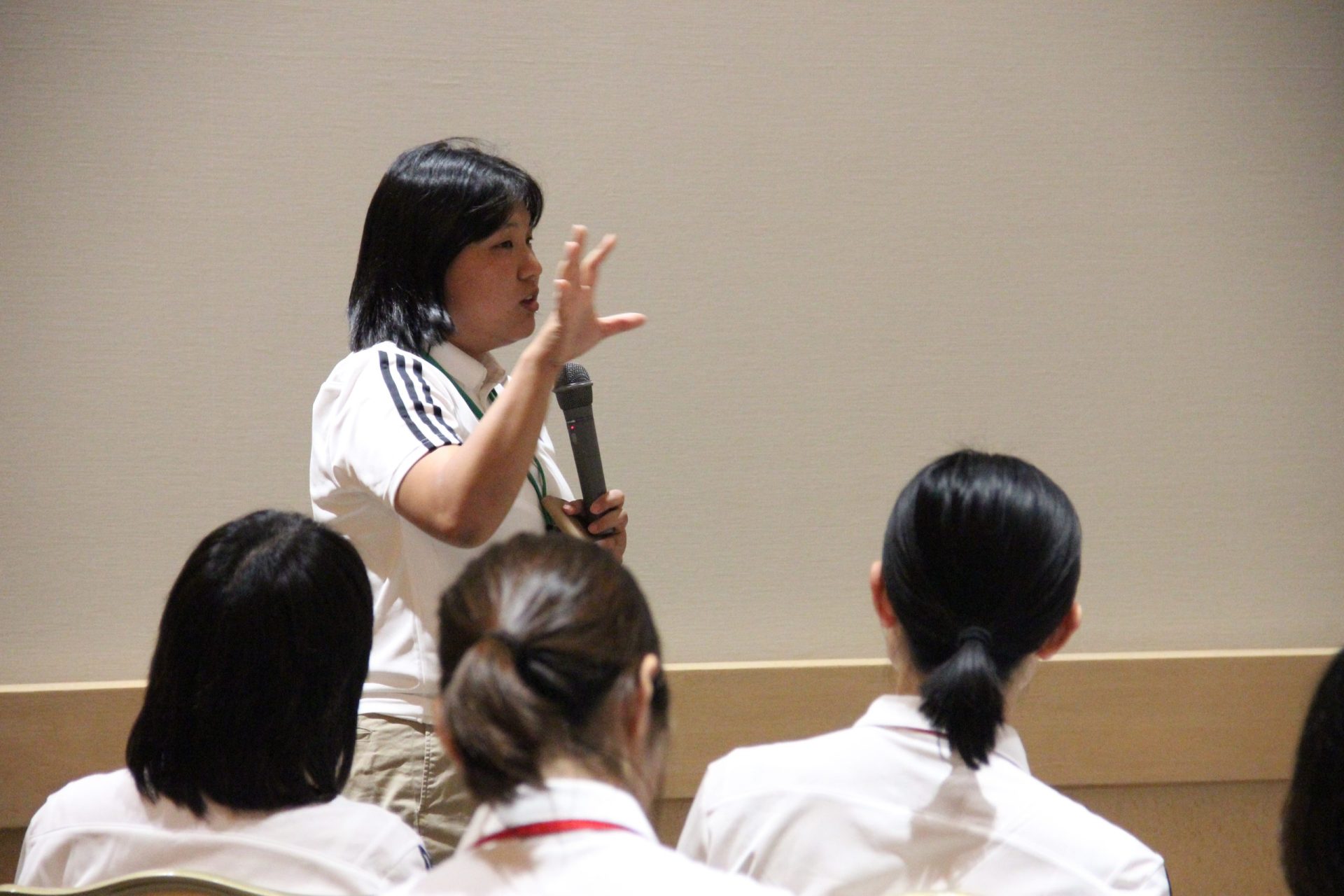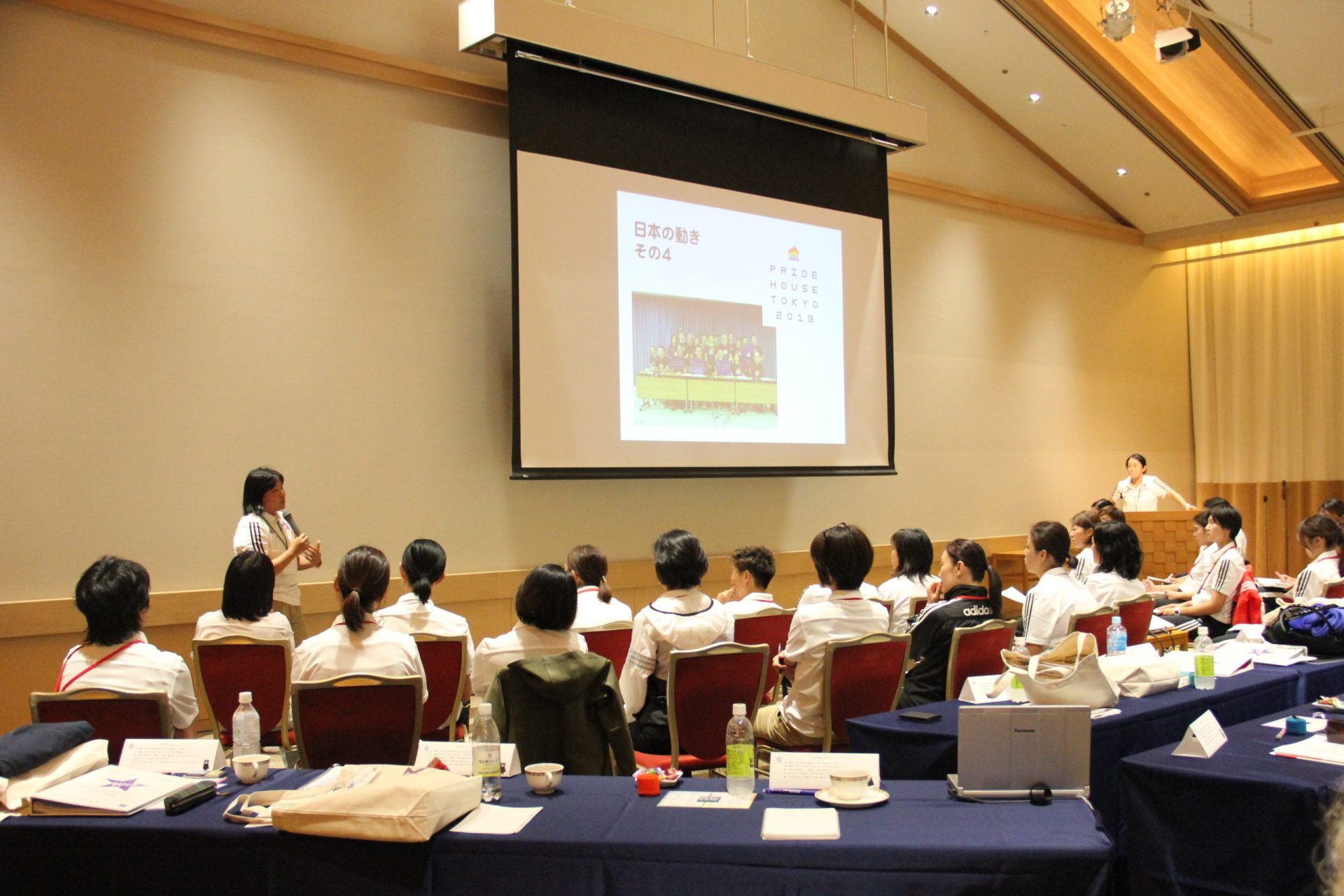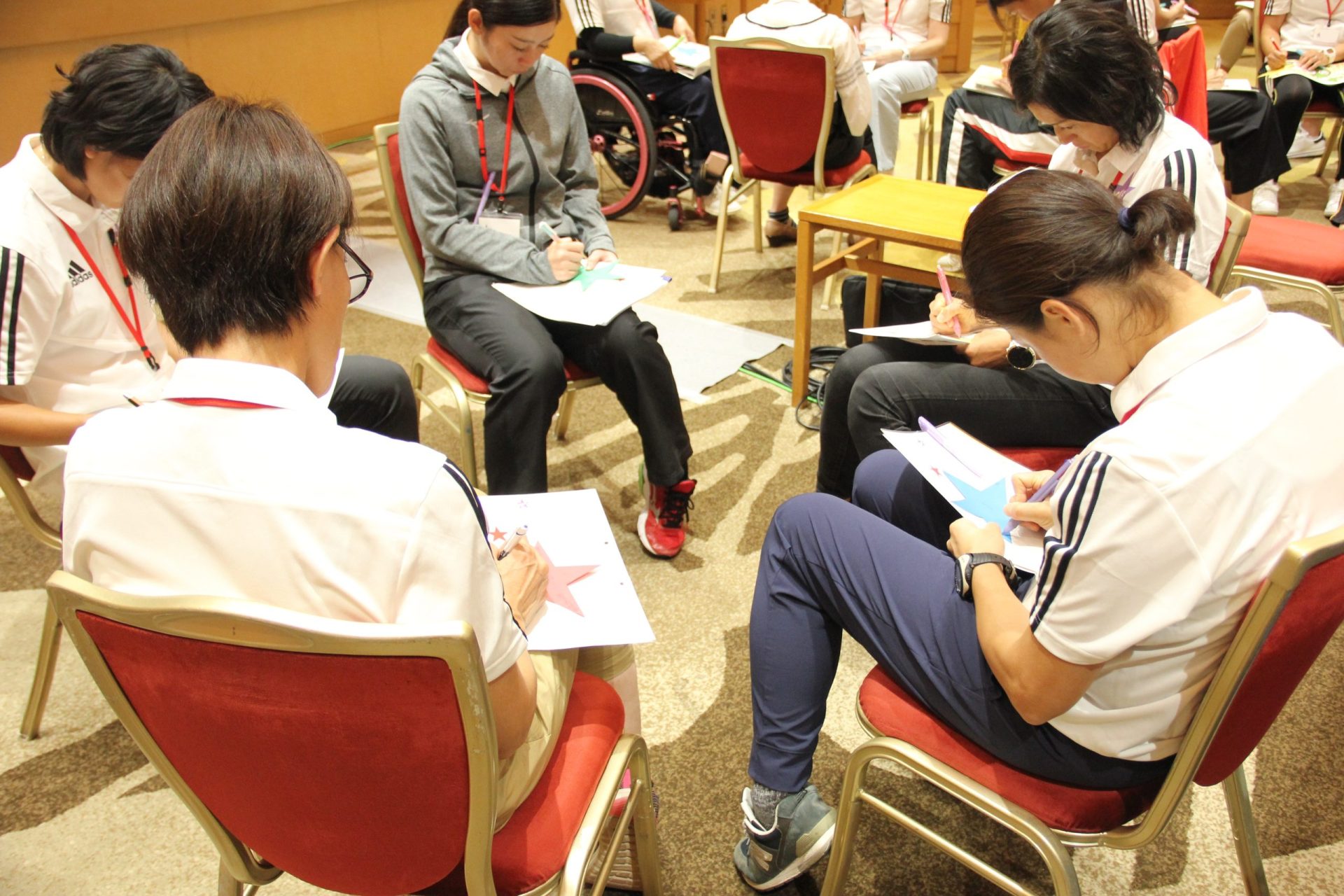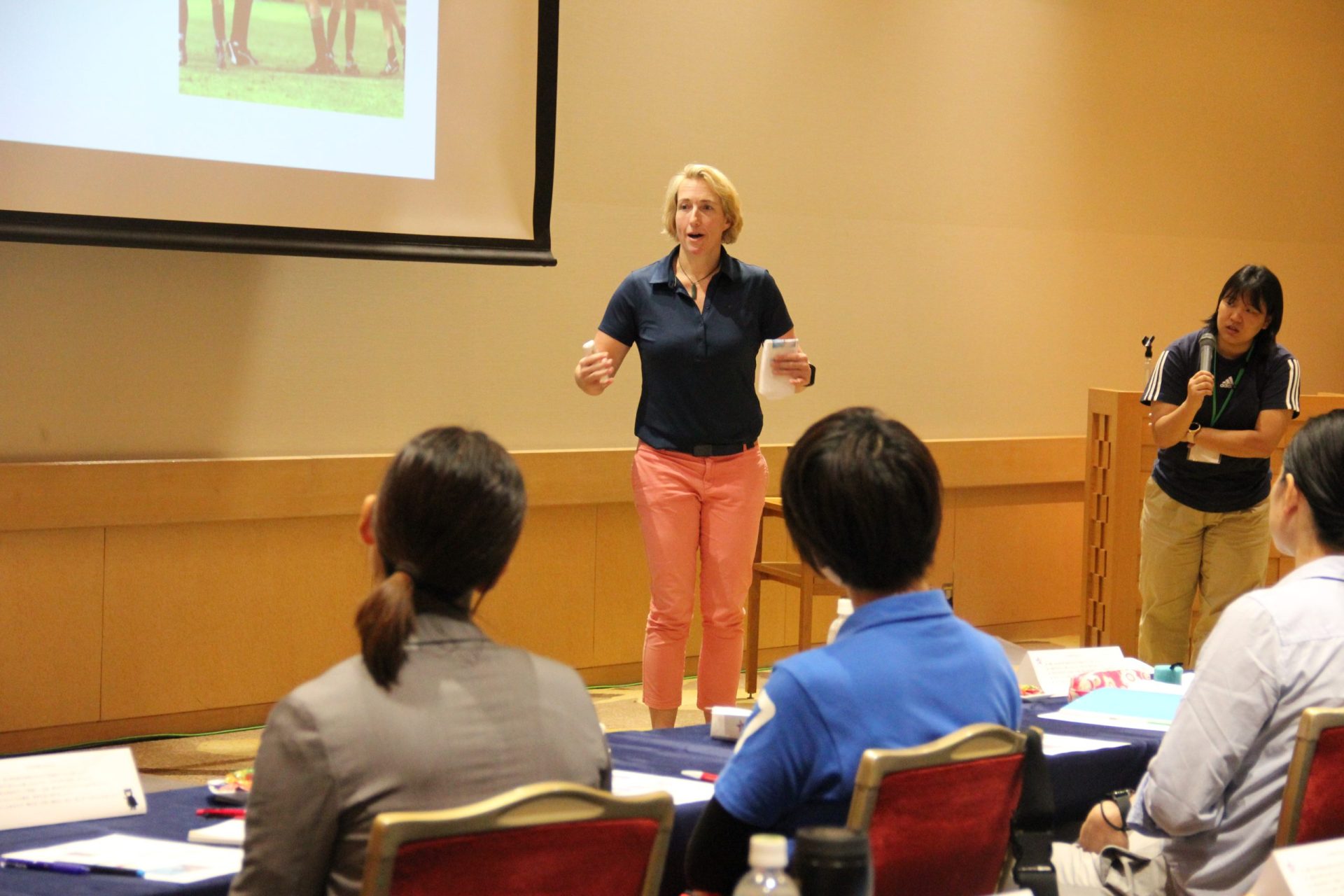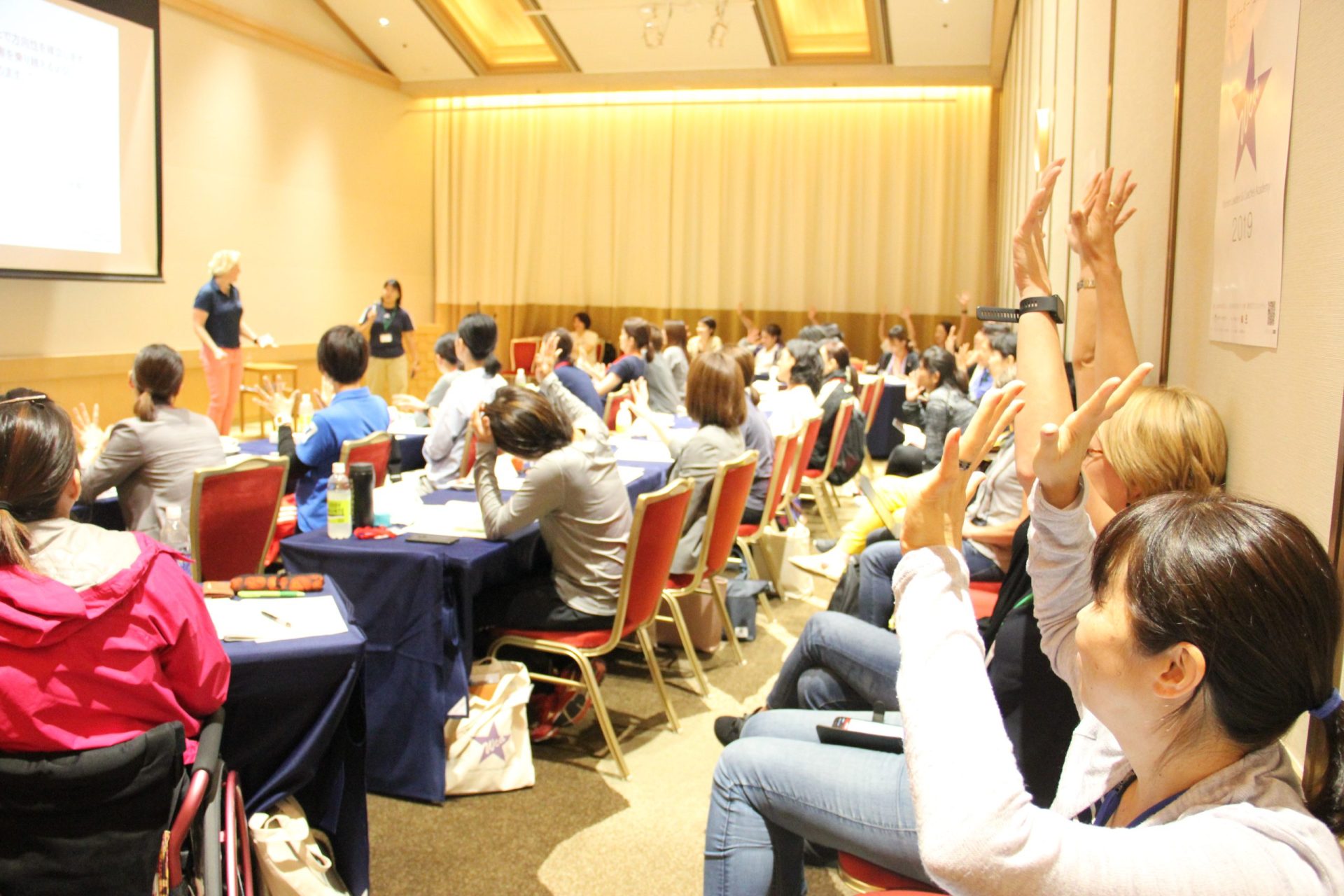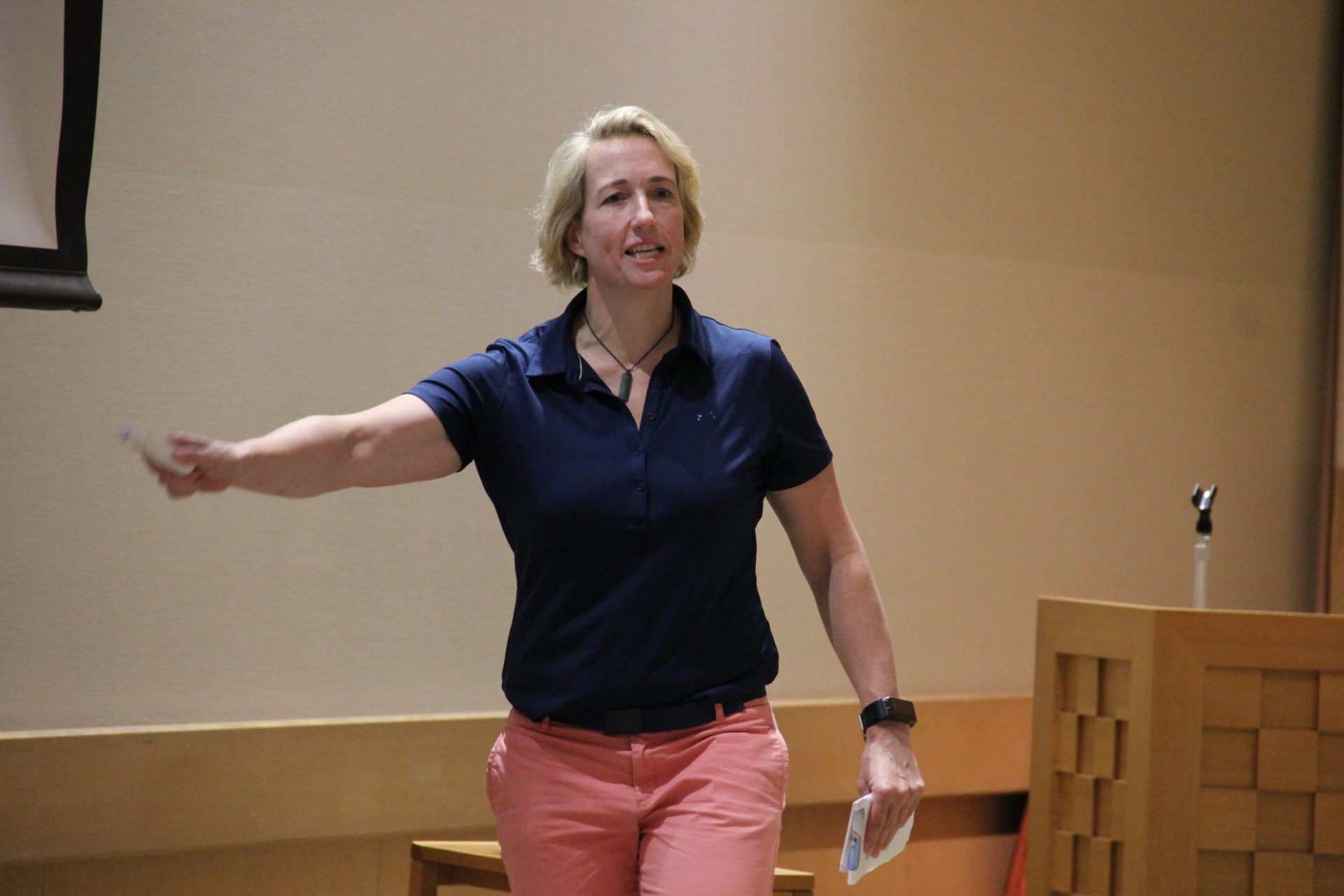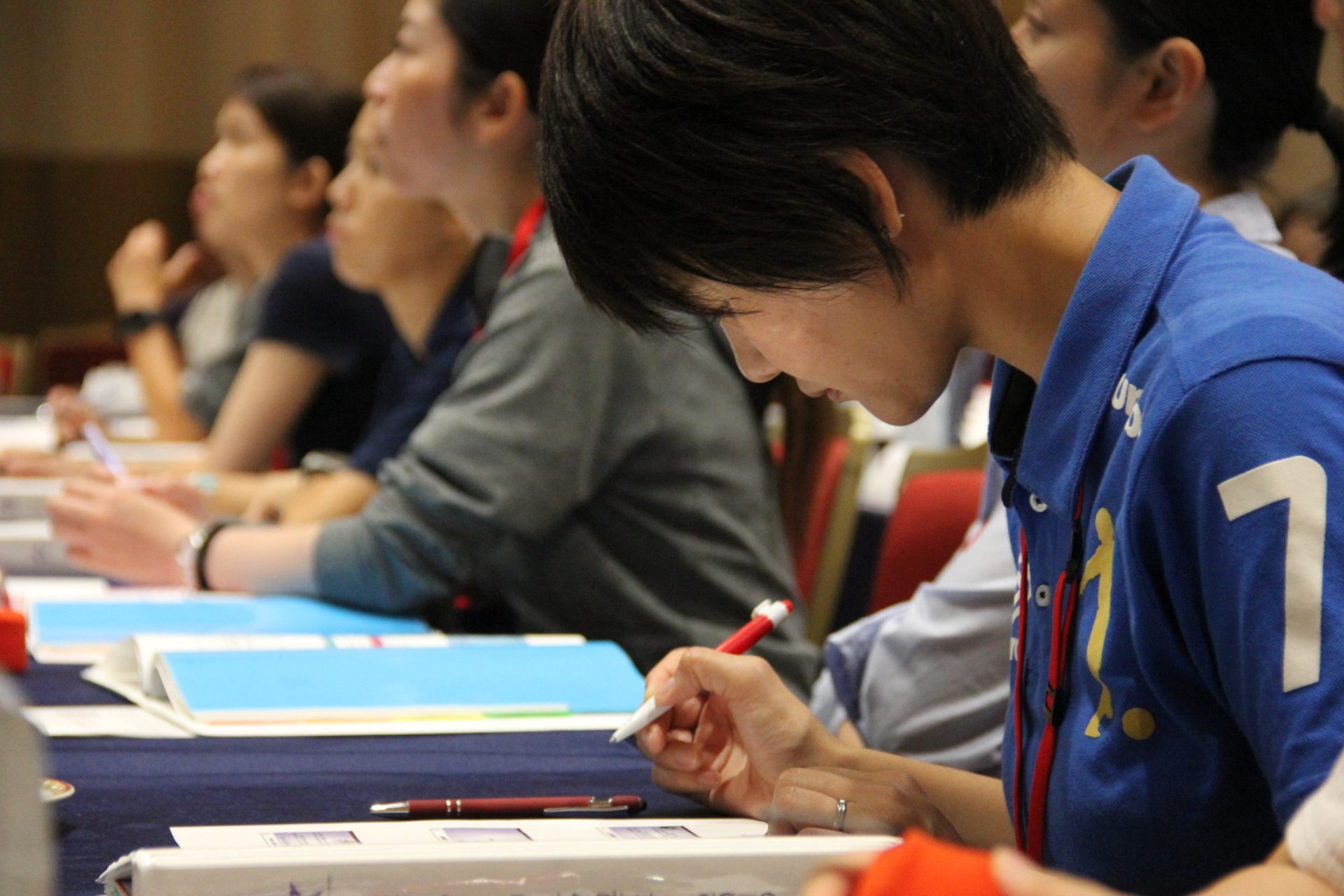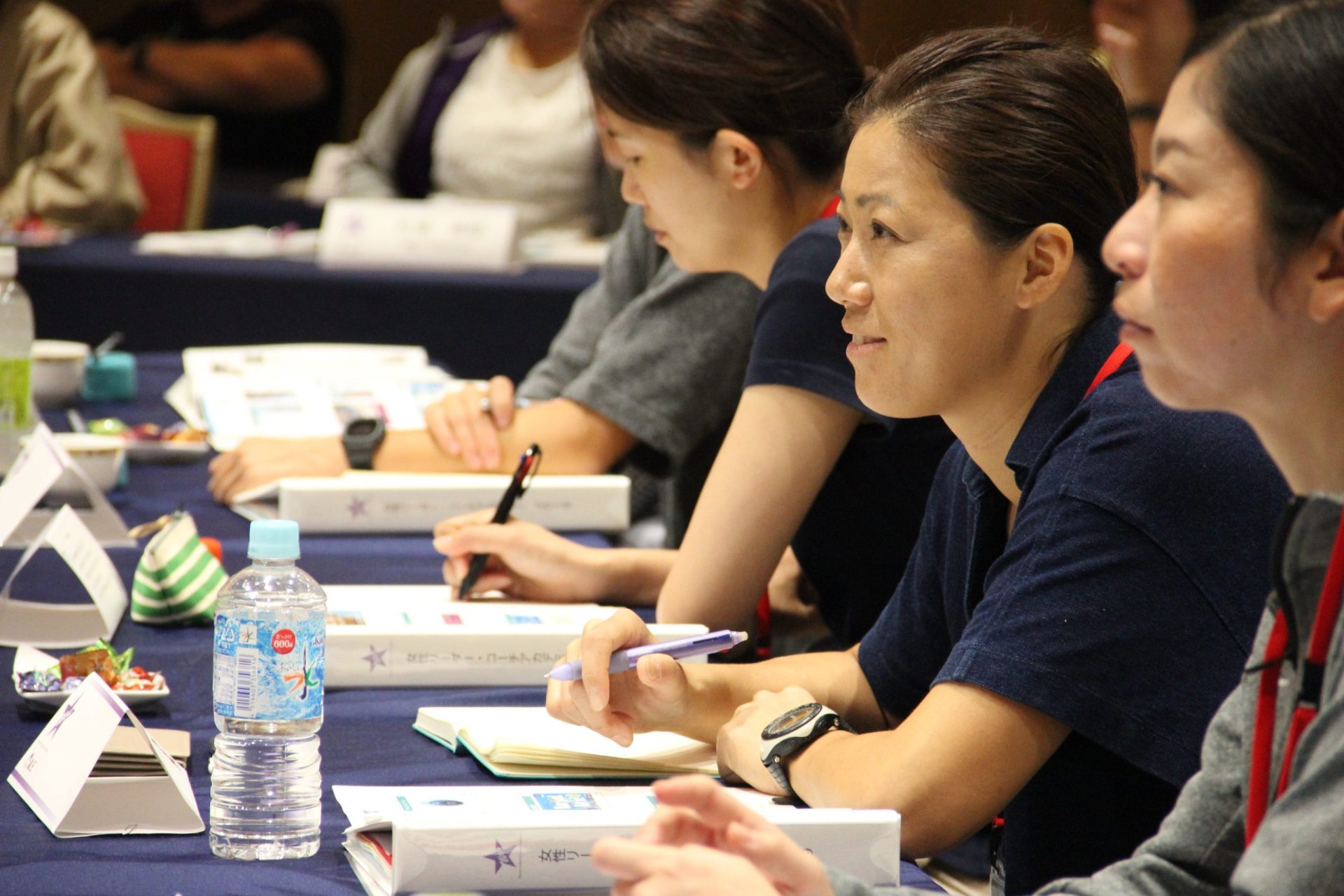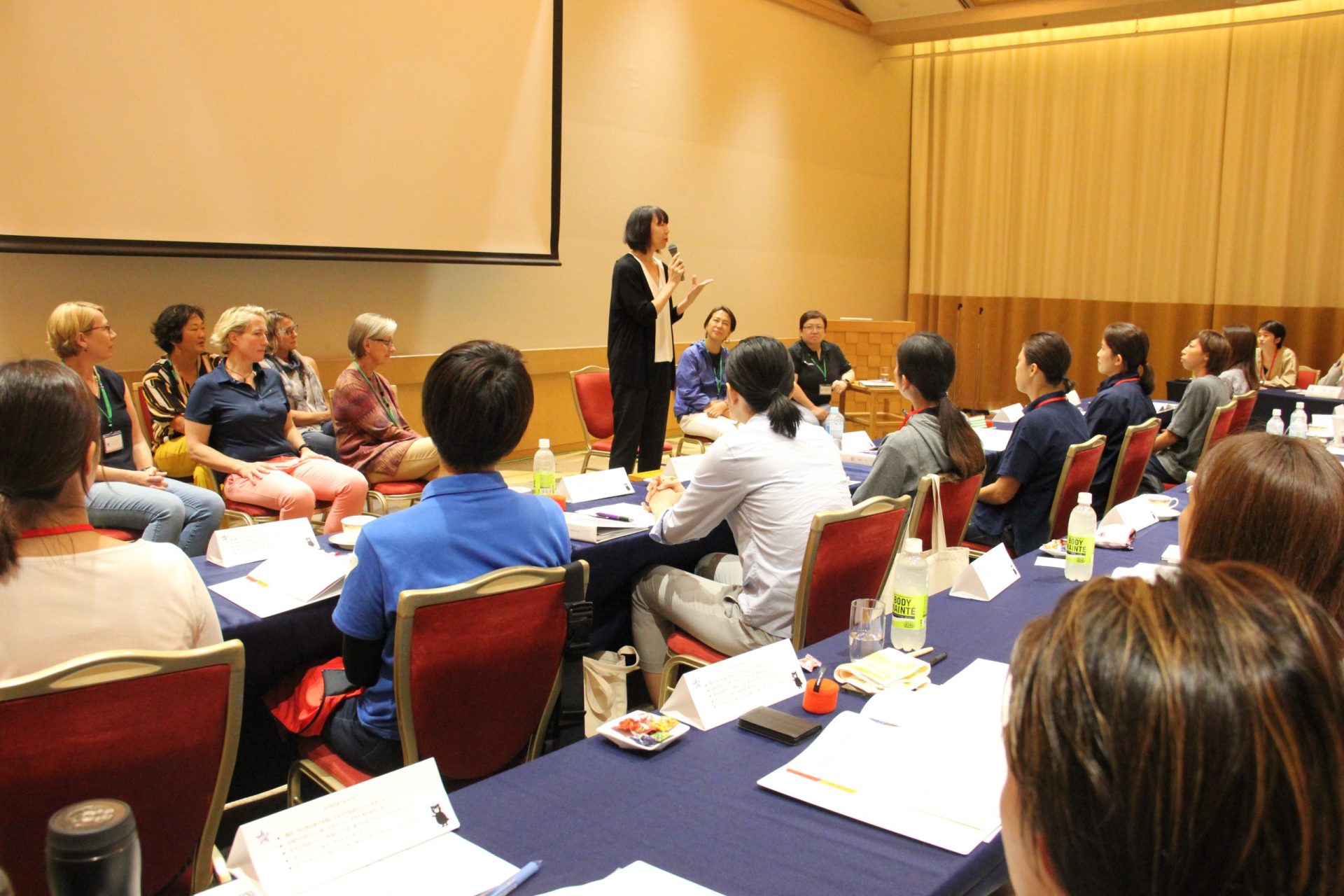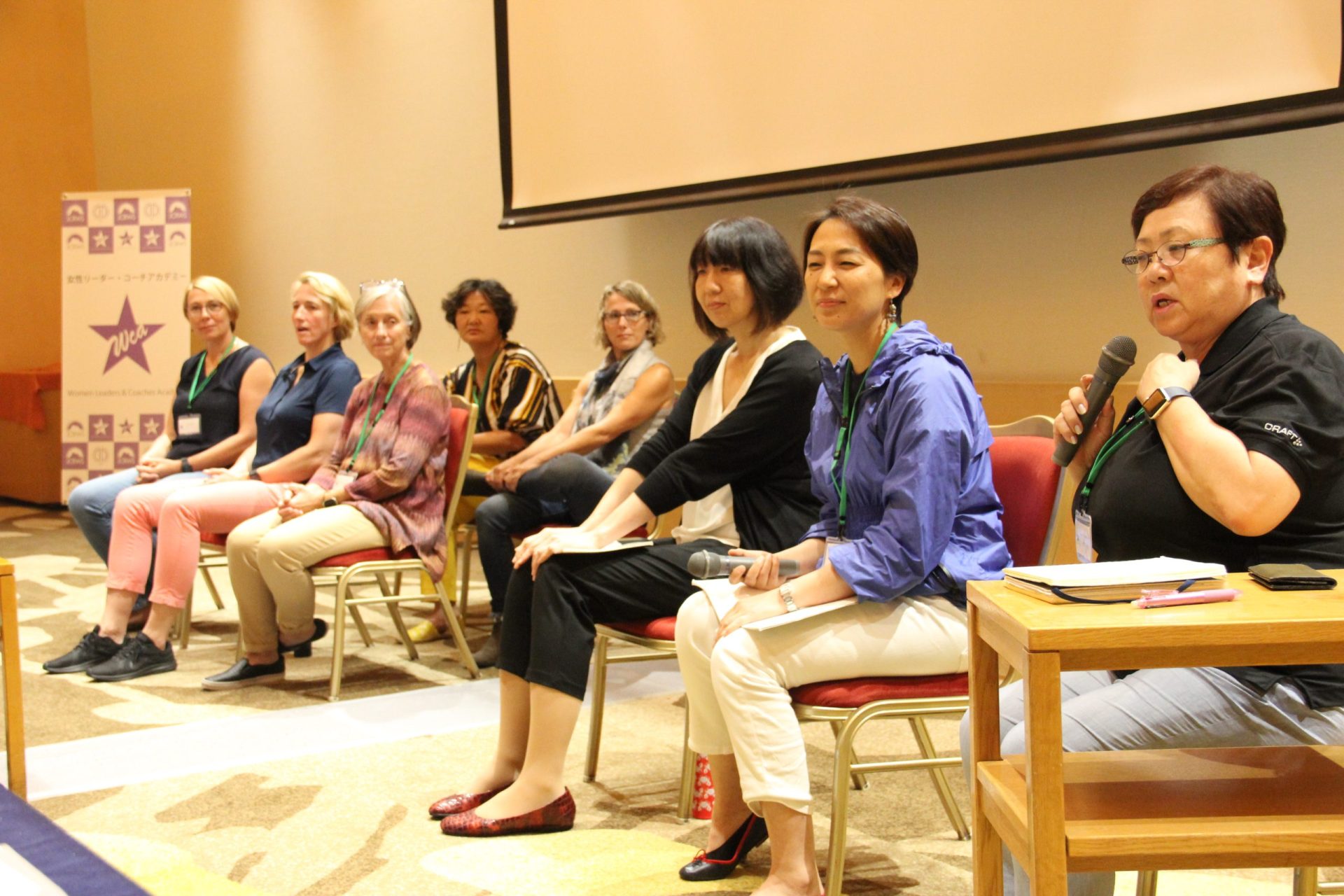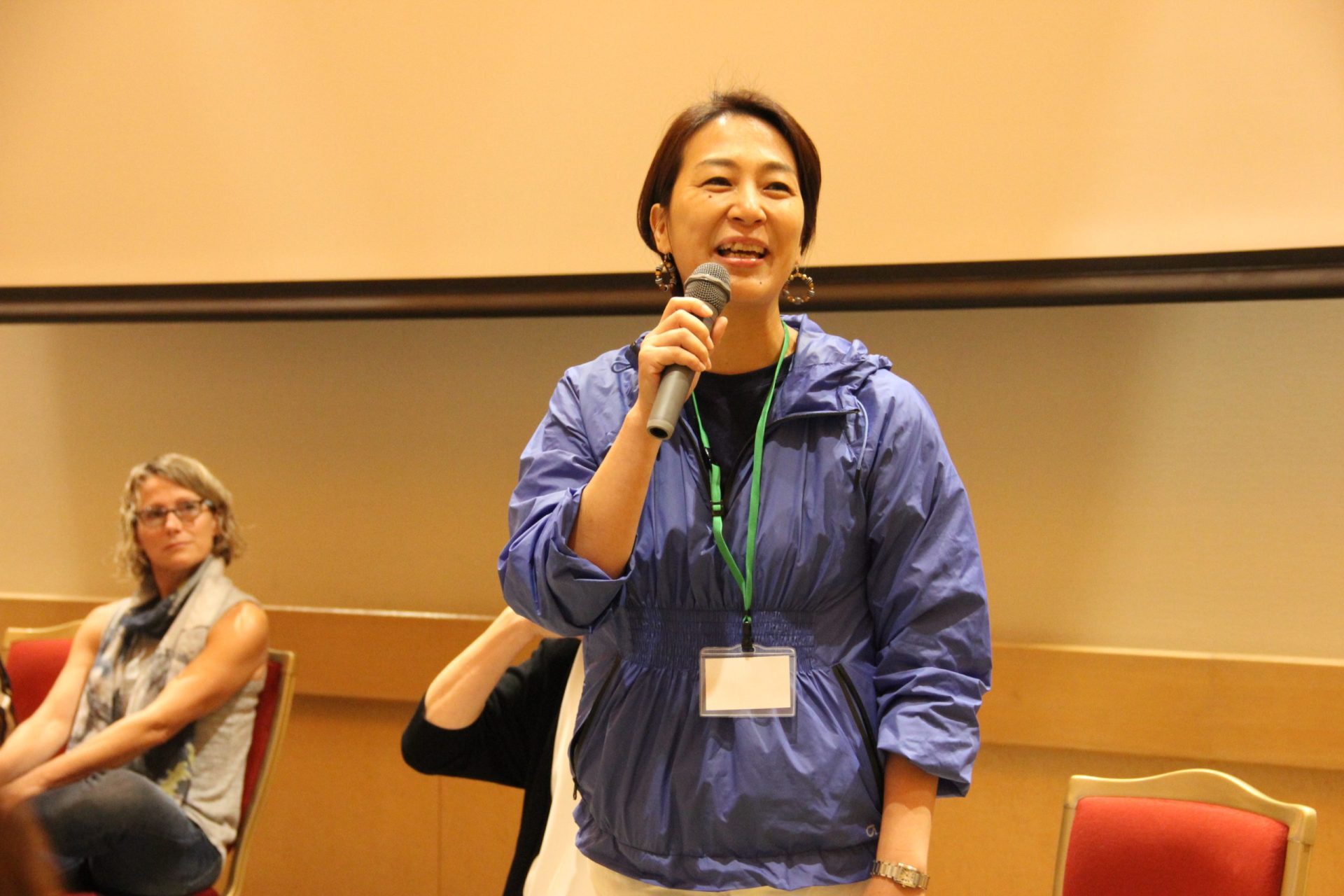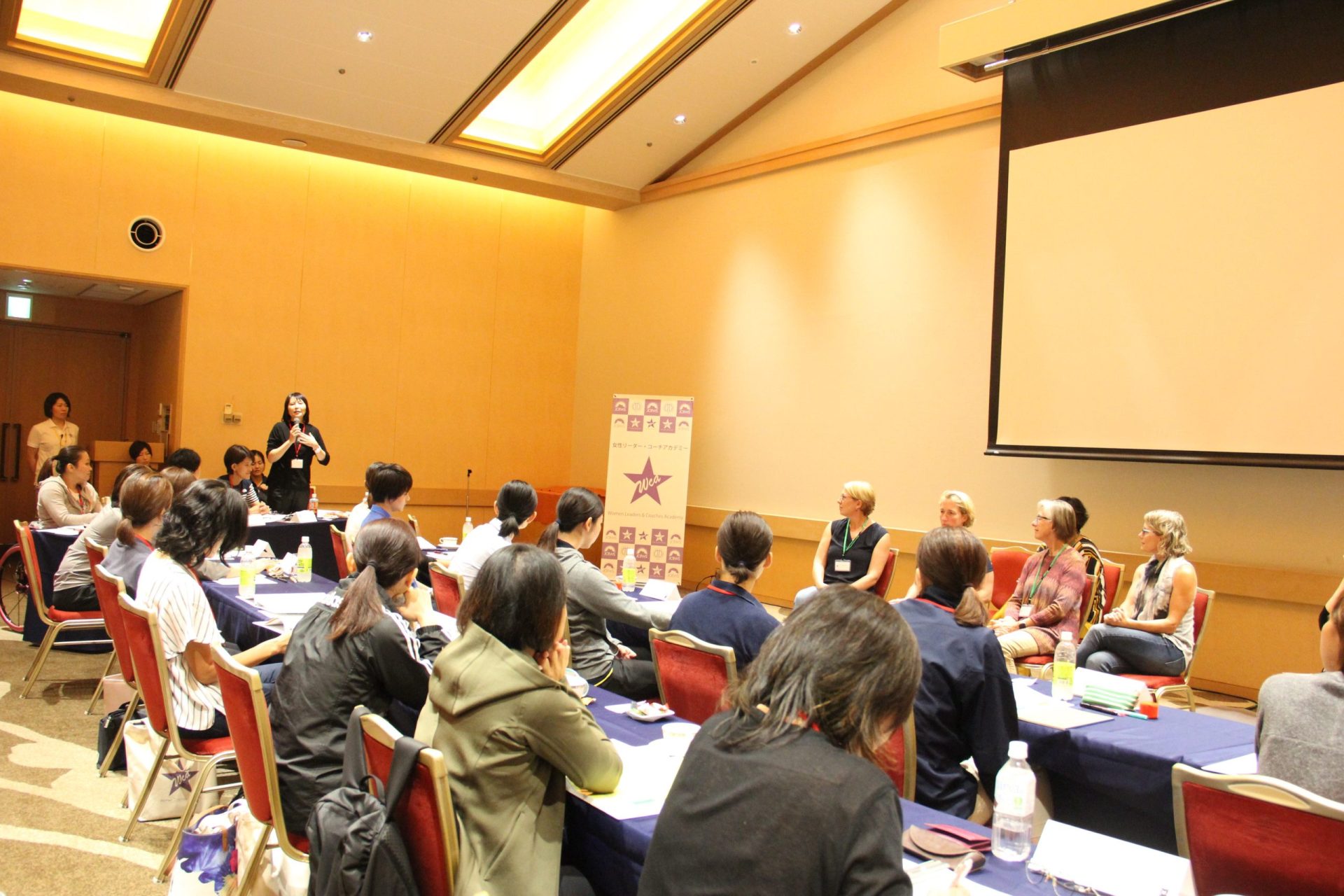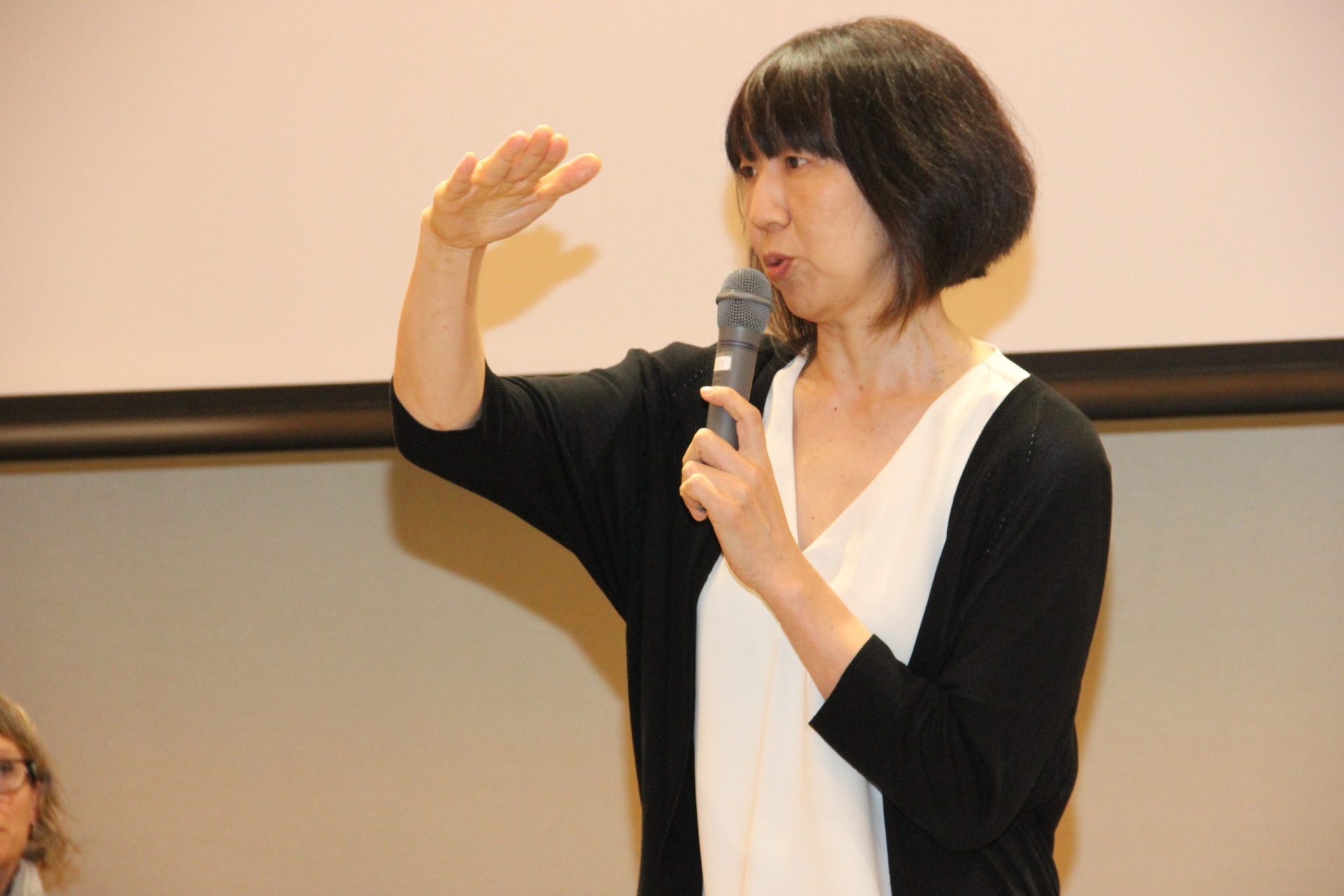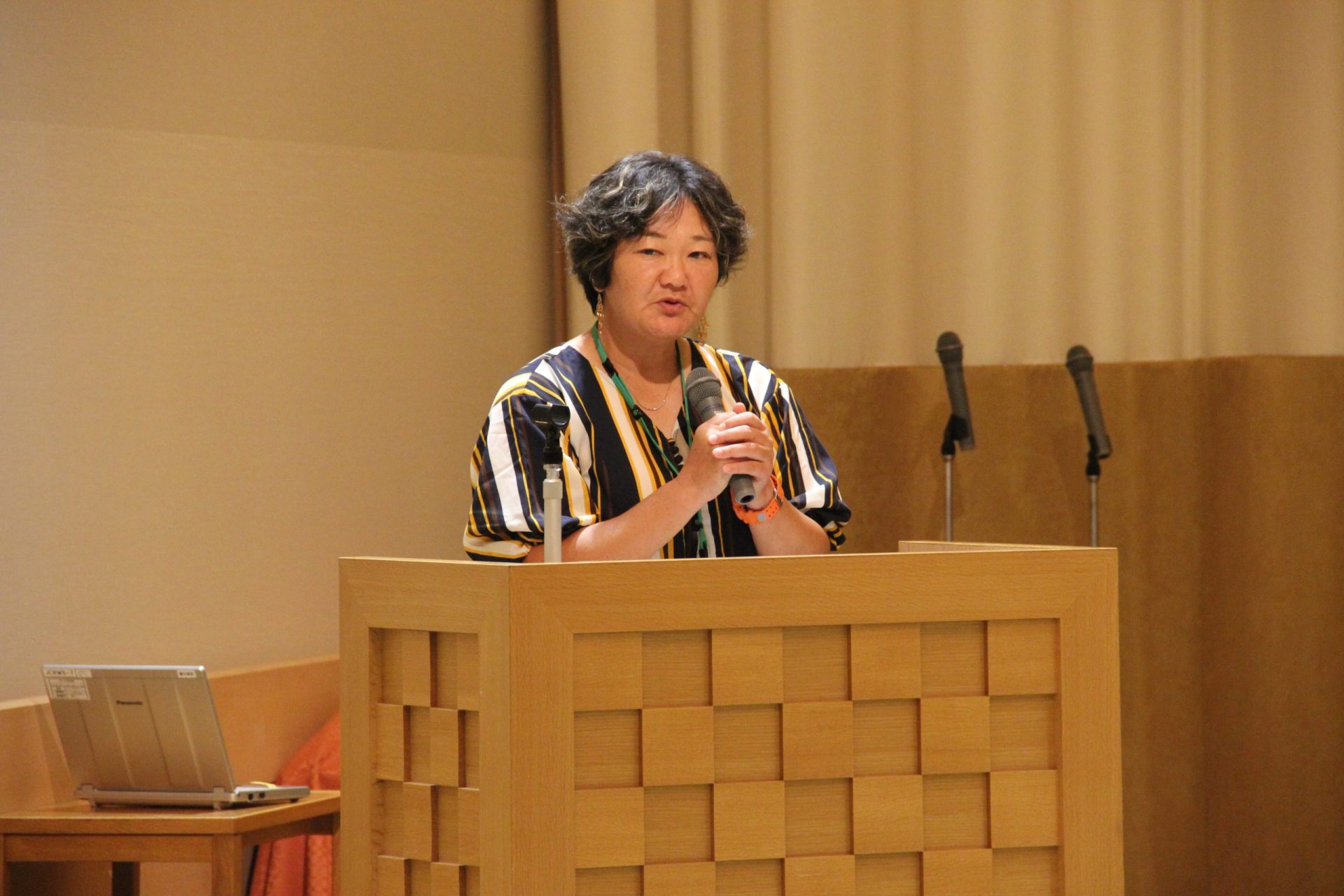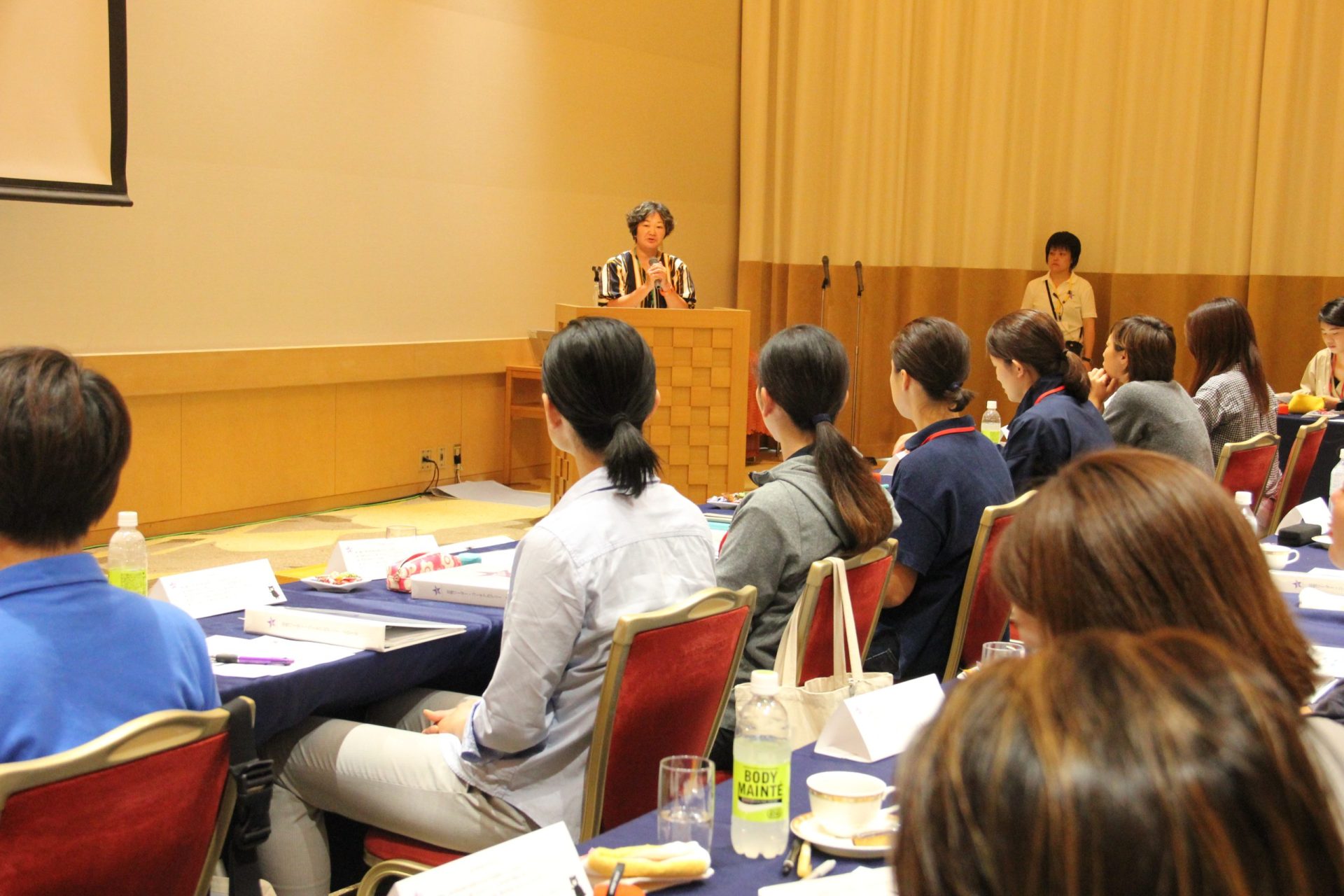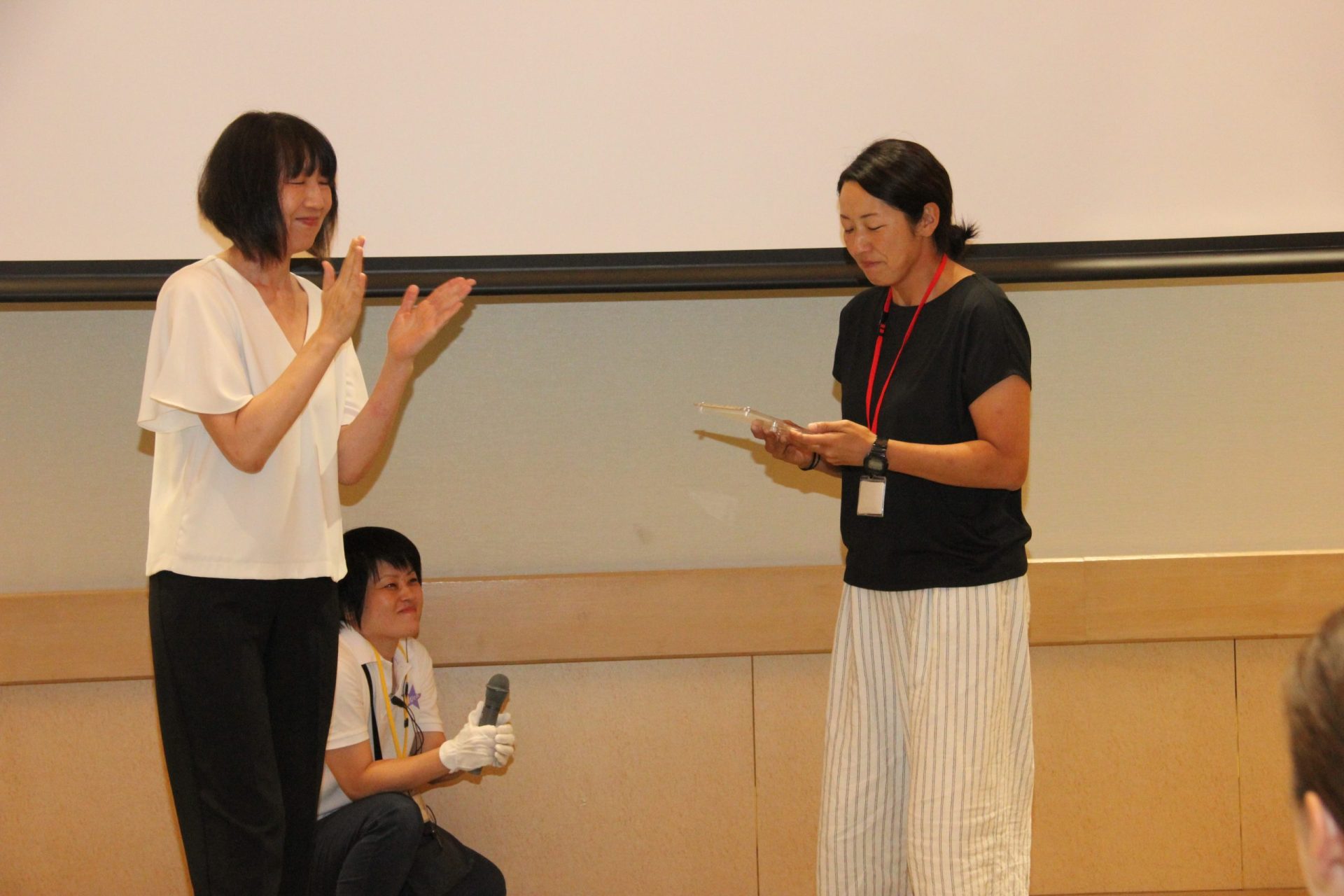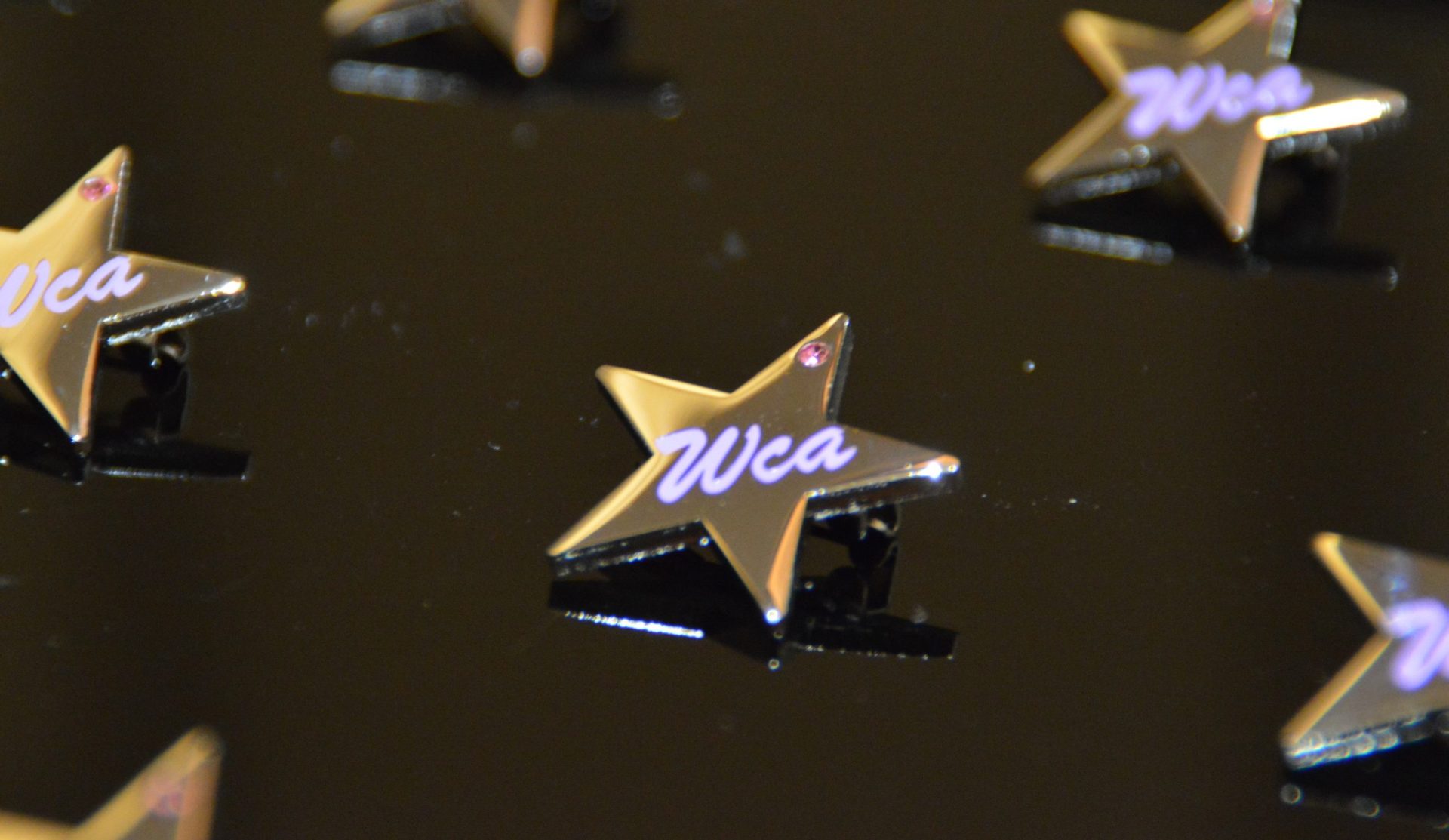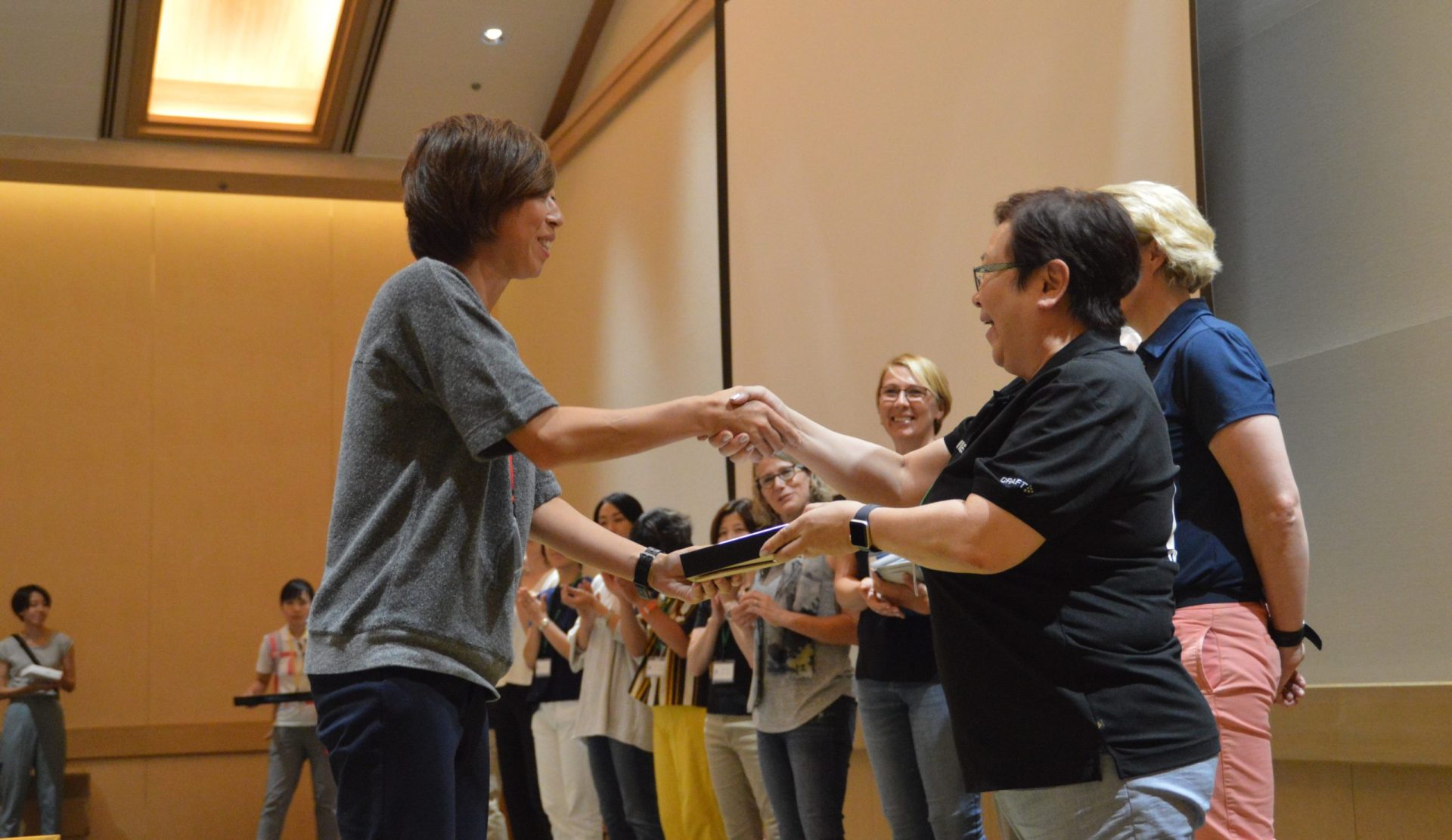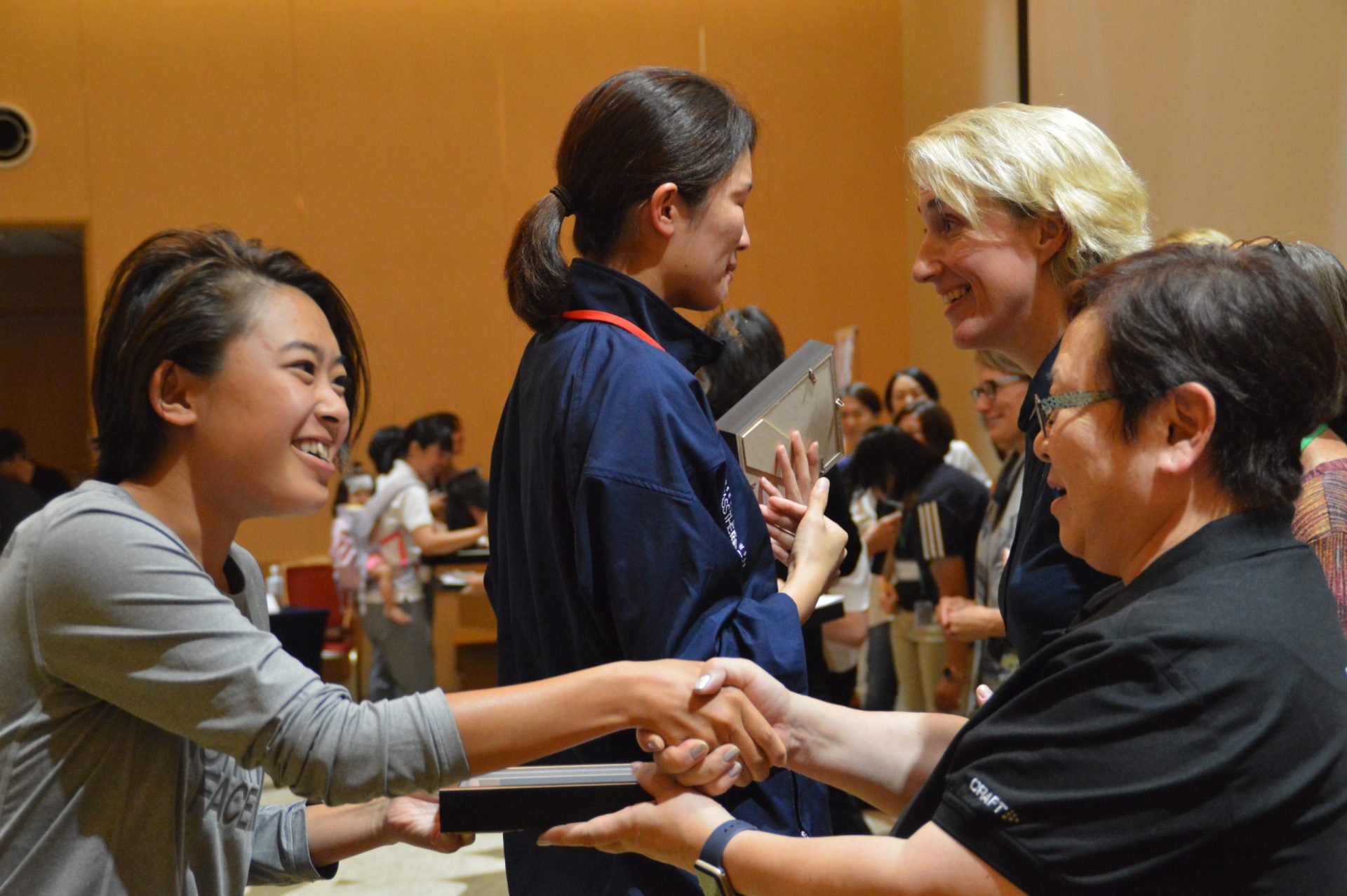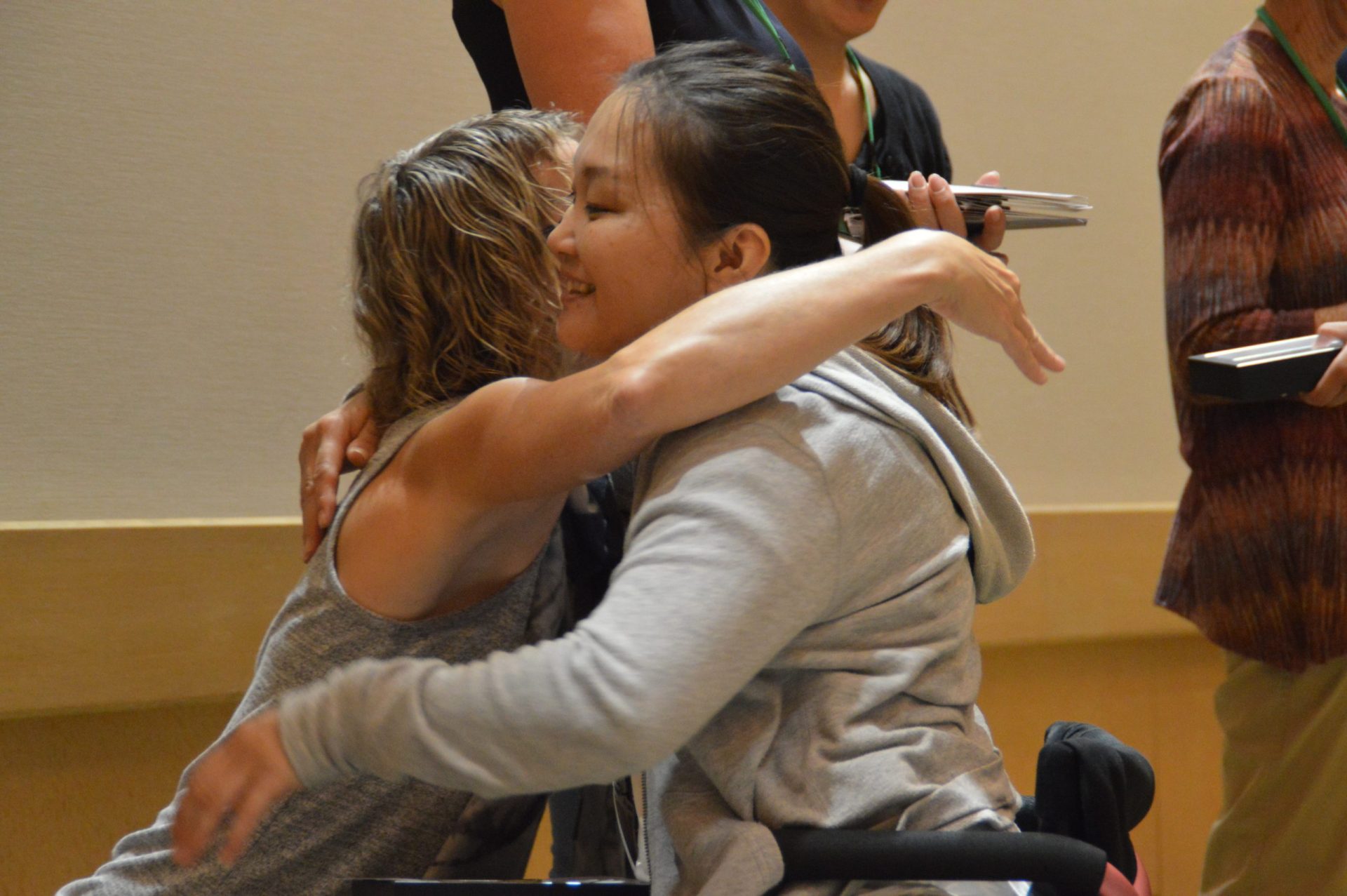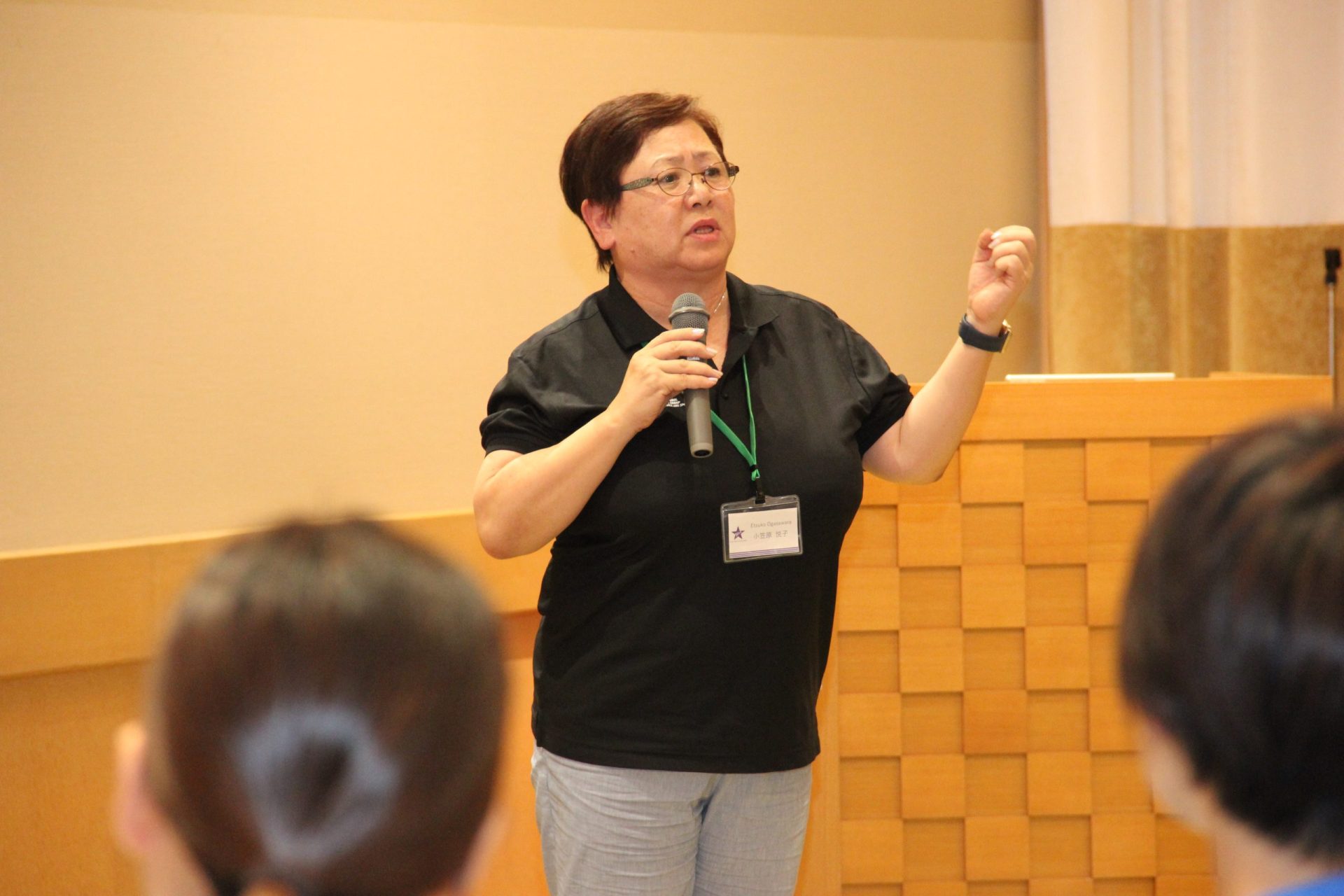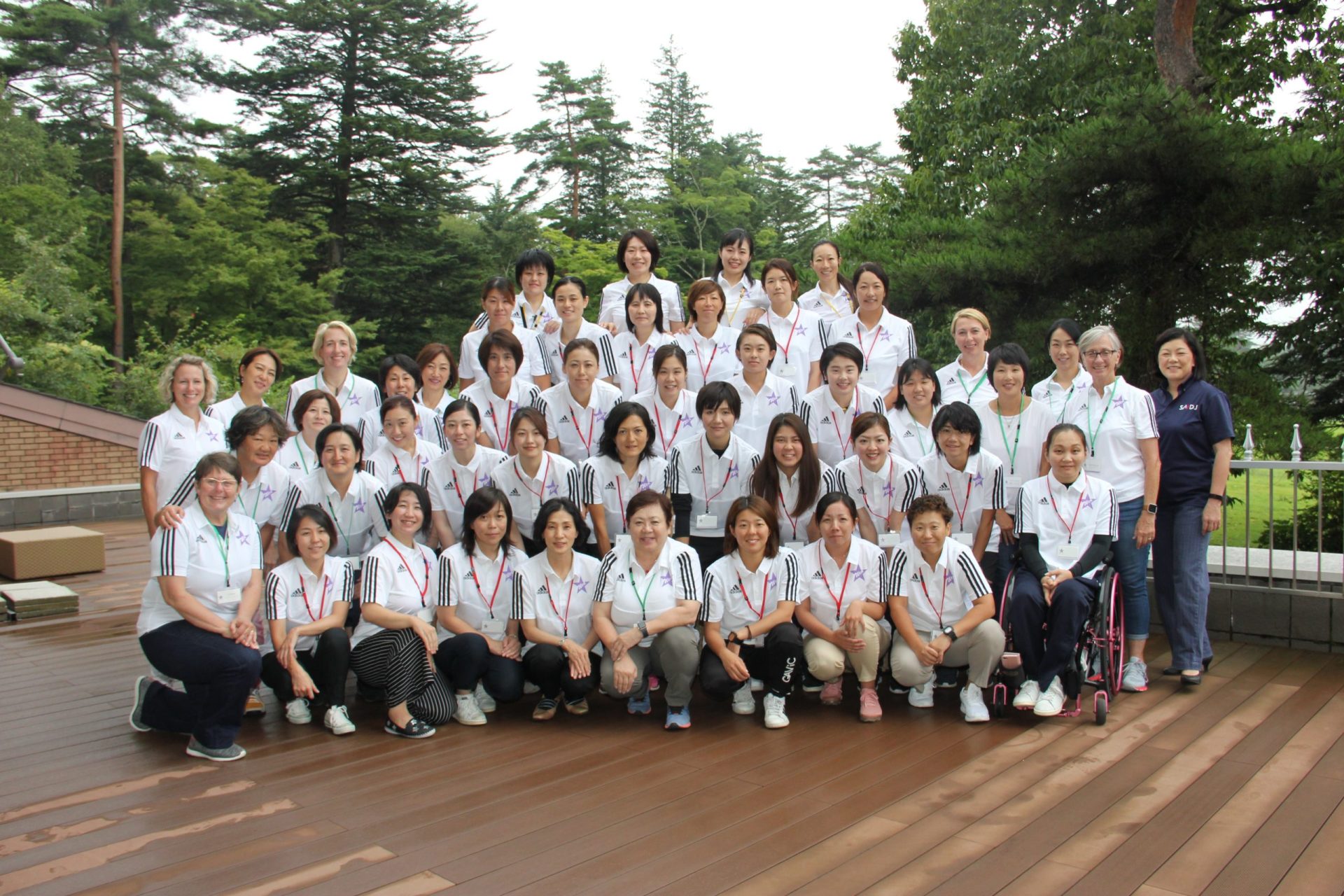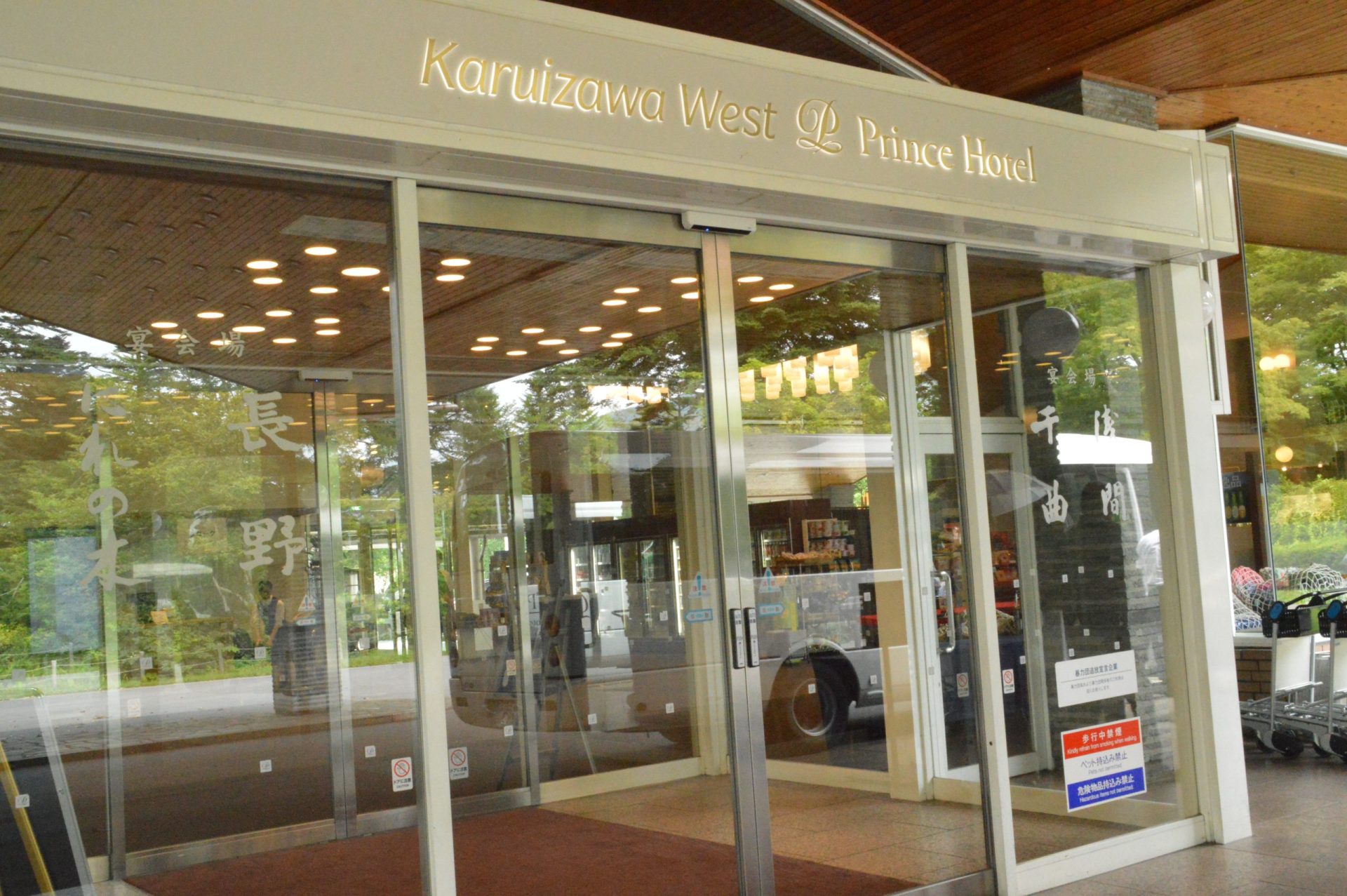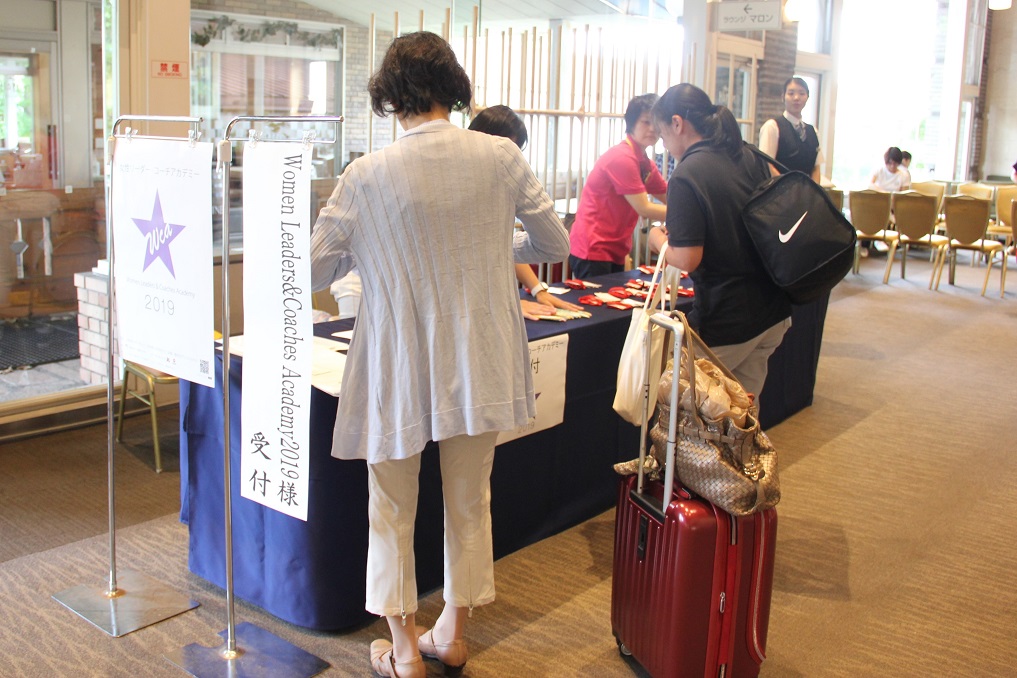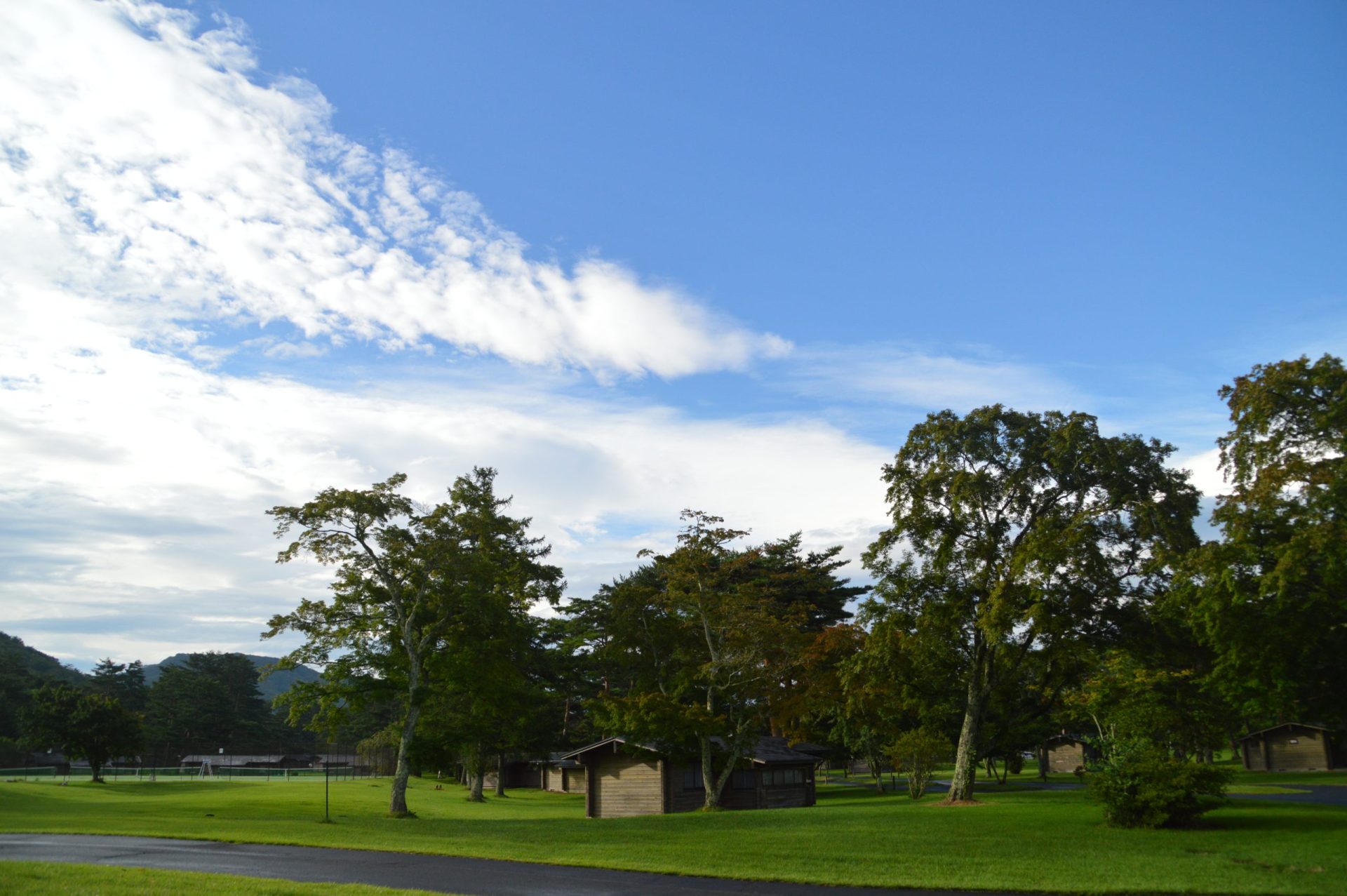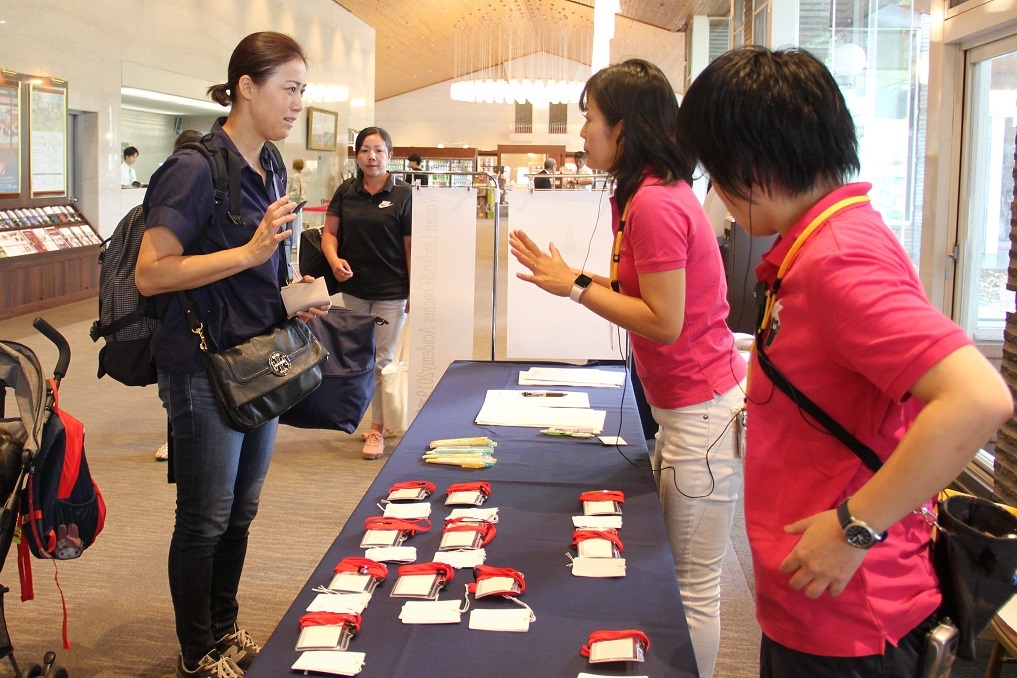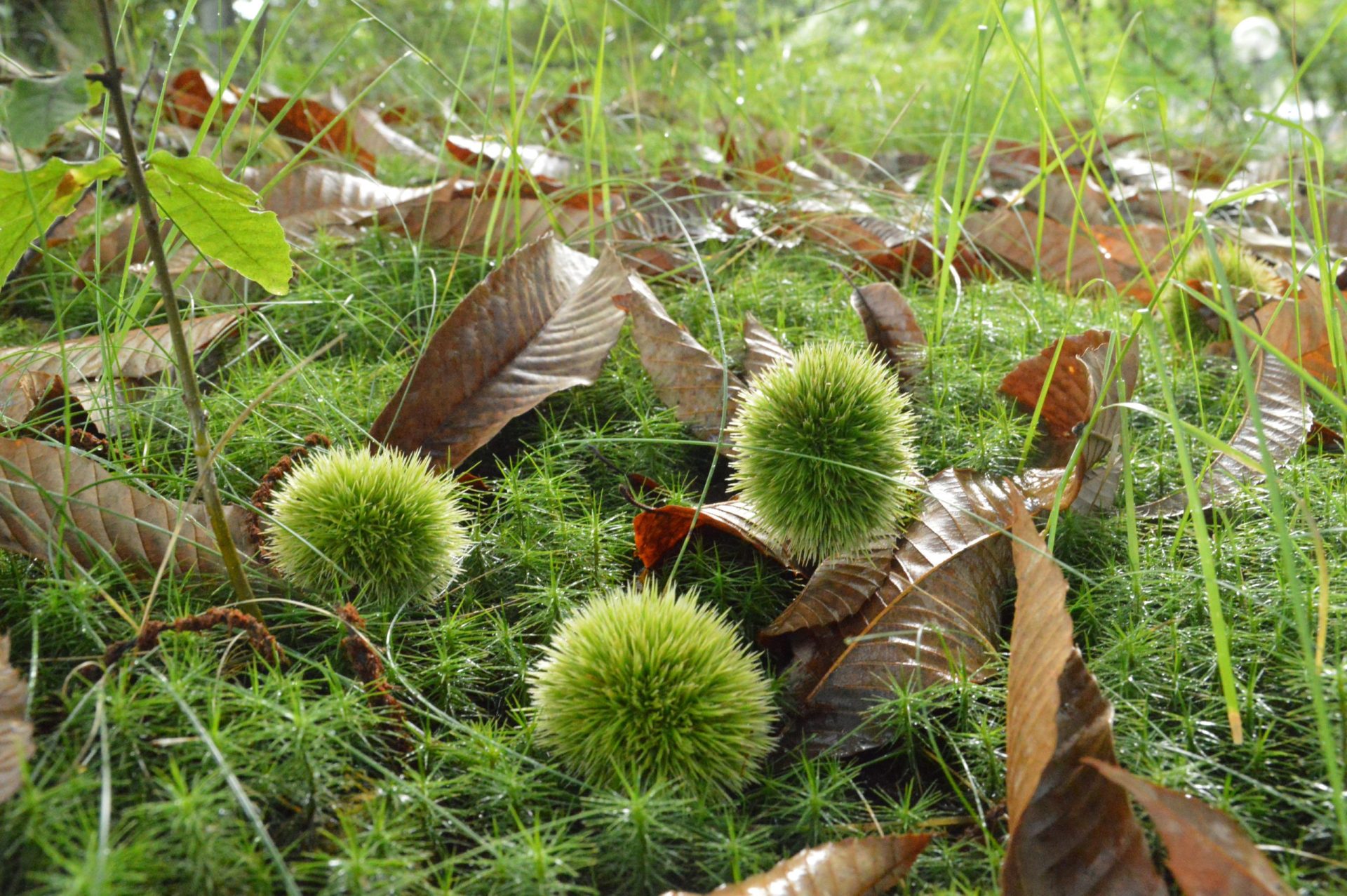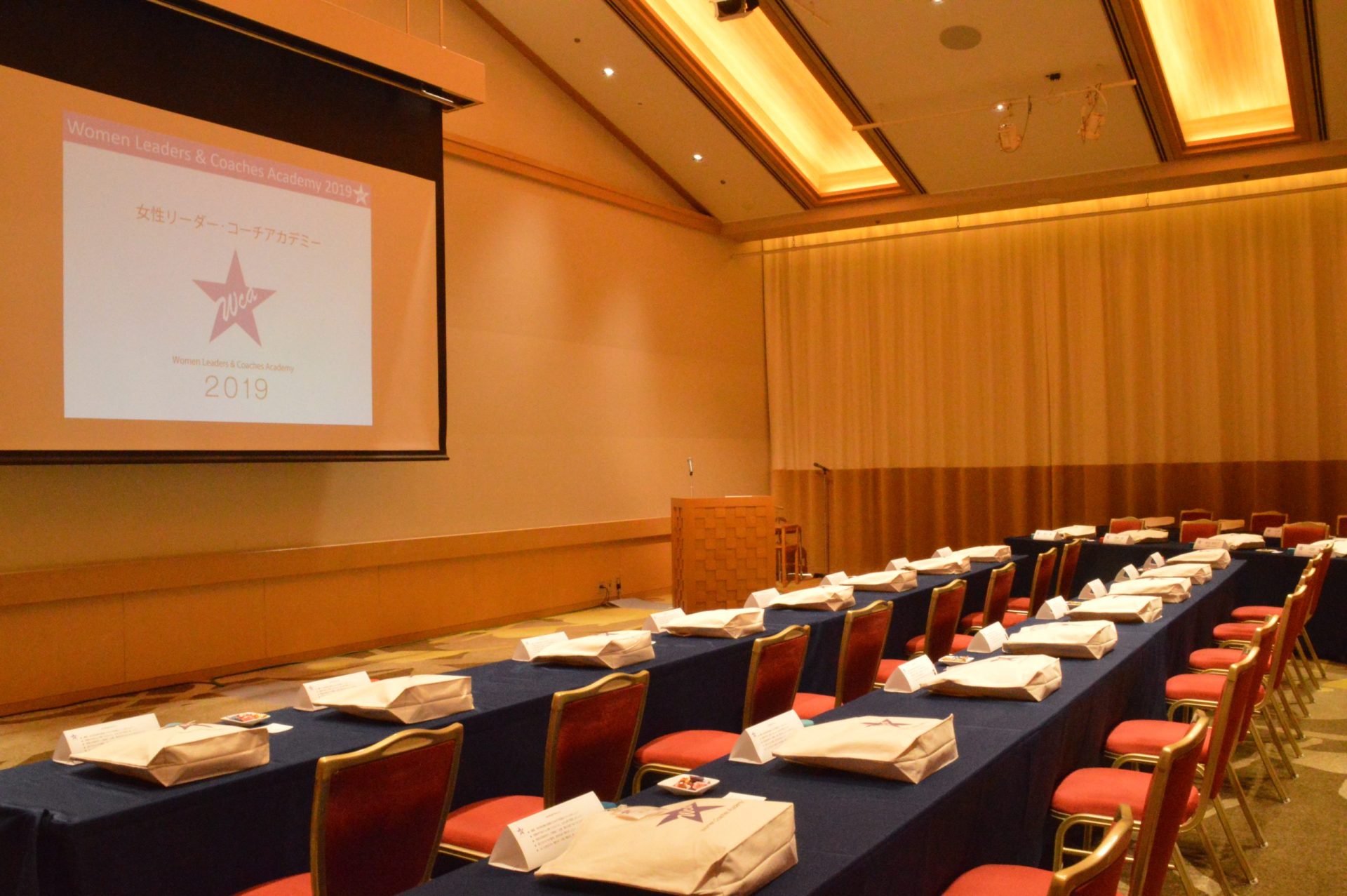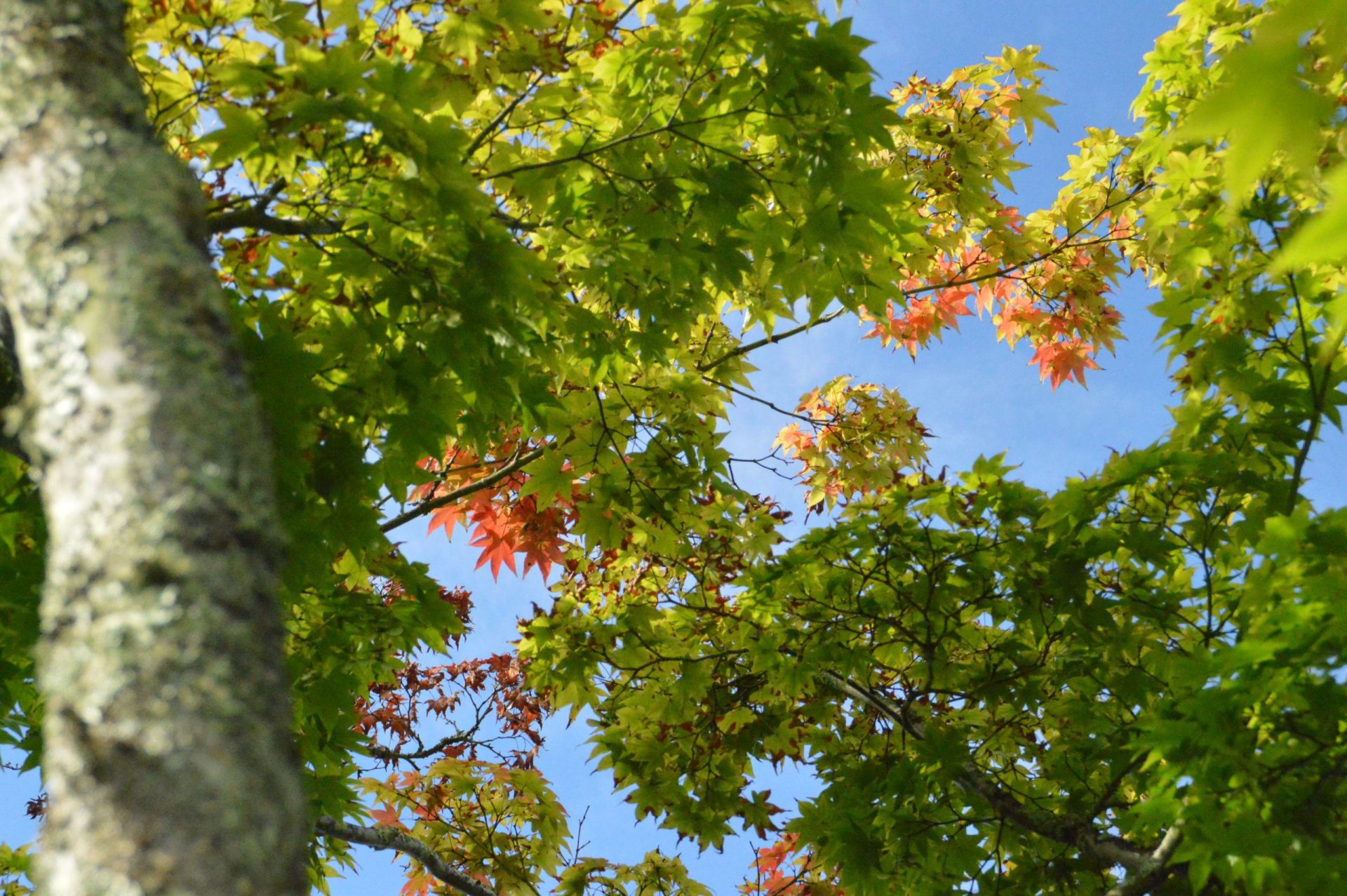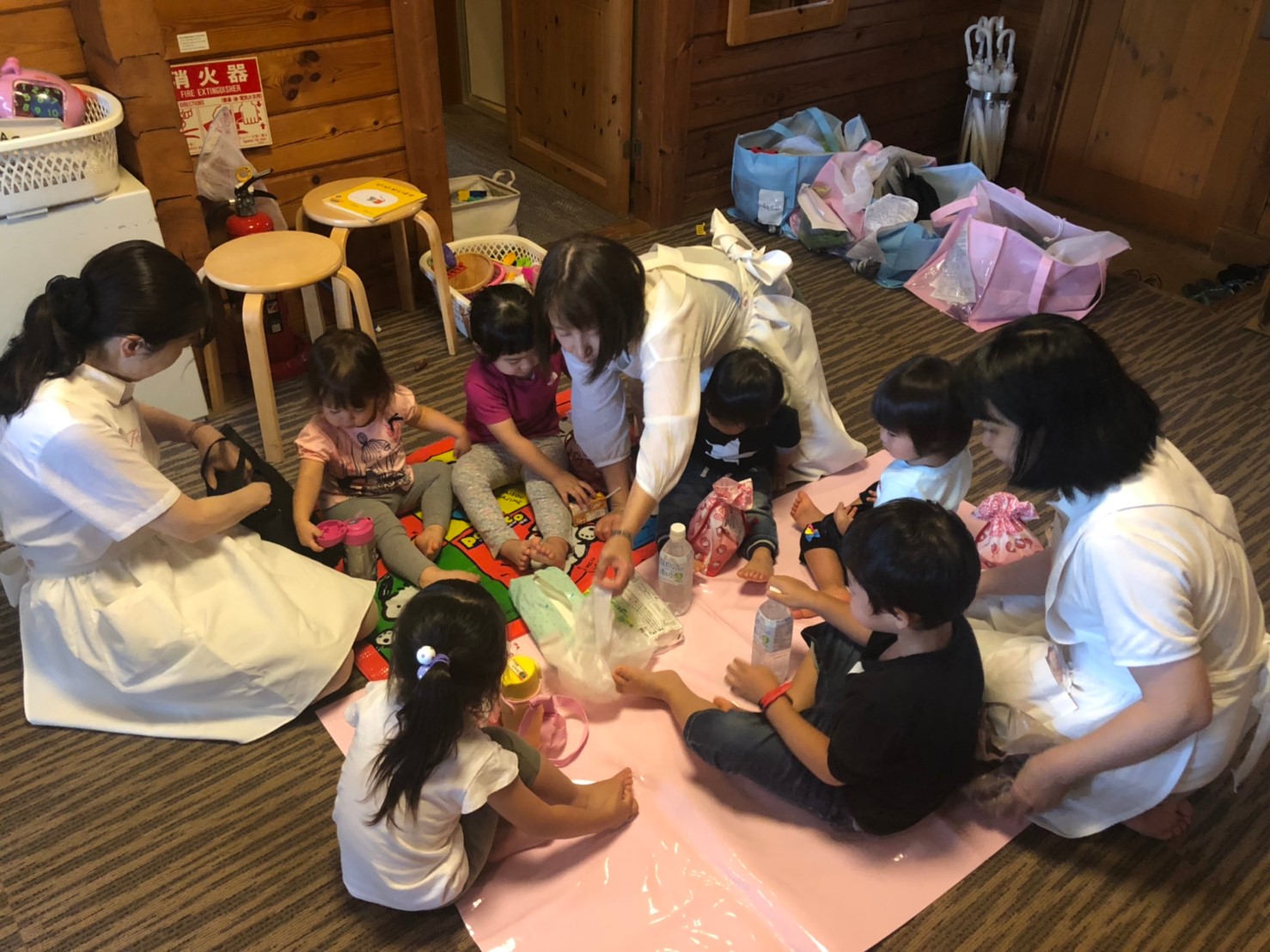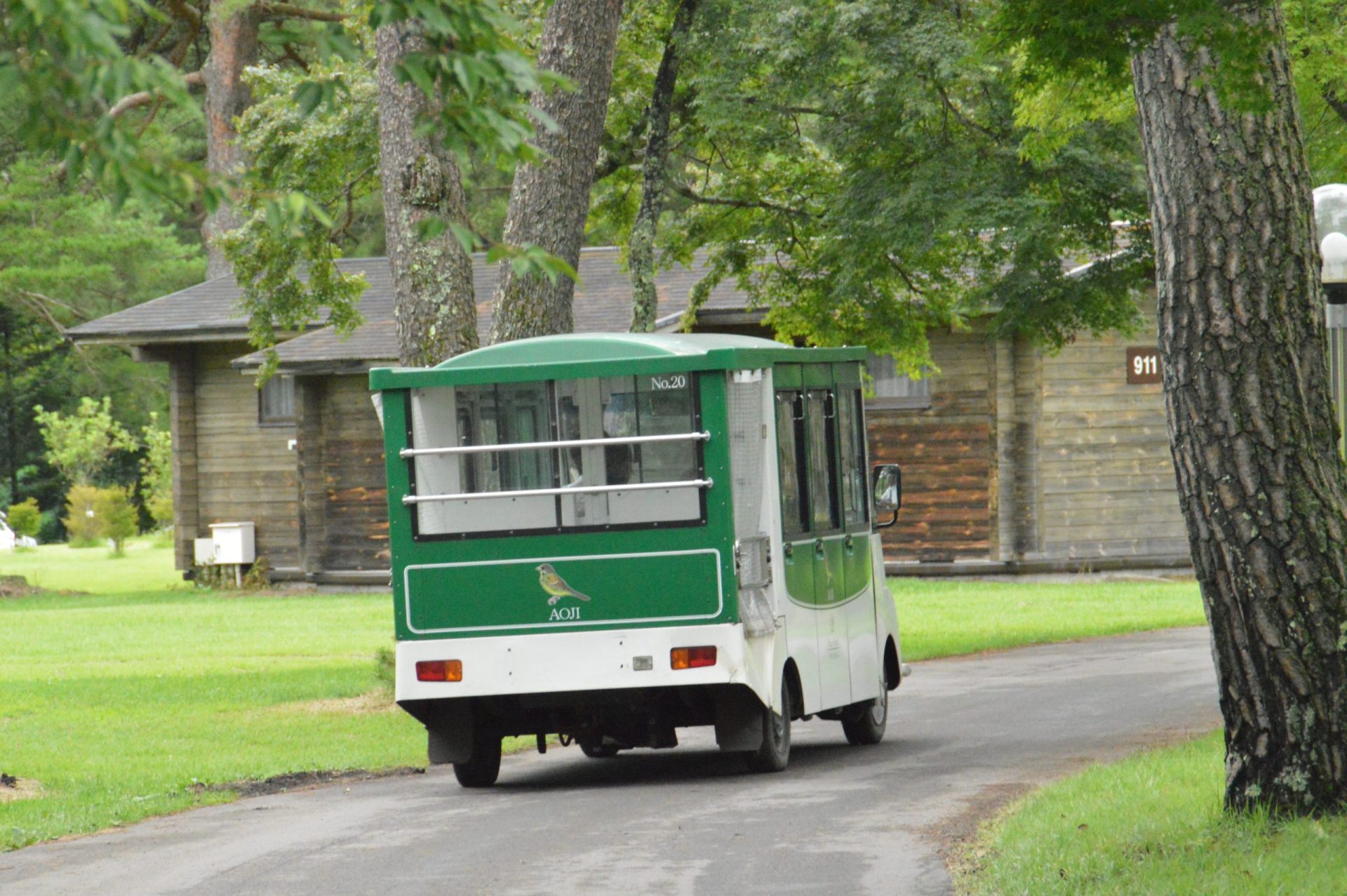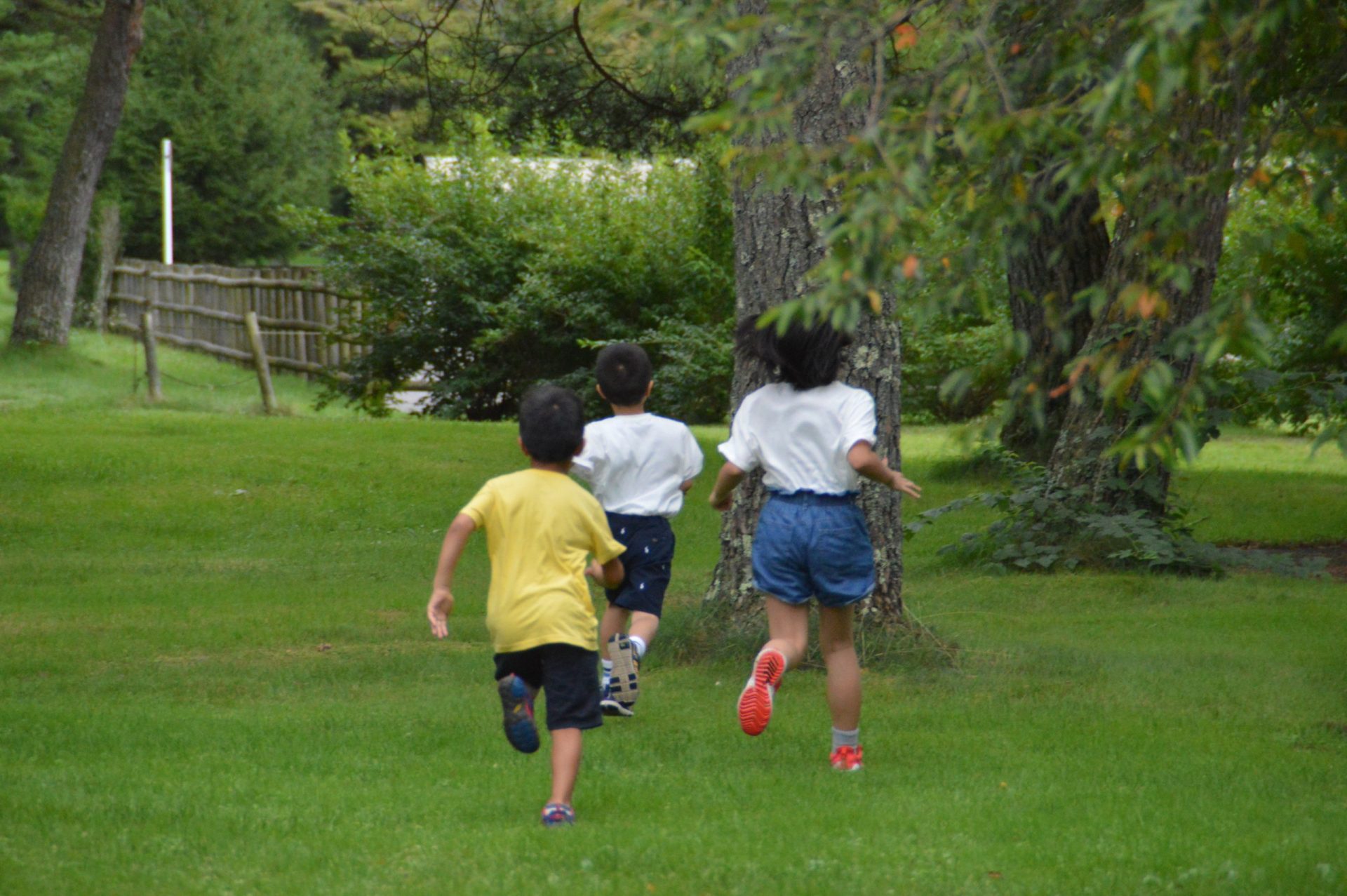
Program
Date : August 27-29, 2019
-
Day1
-
01Opening(Self Introduction)
-
02Women in Sport
Dr. Etsuko Ogasawara, Executive Director, Japanese Center for Research on Women in Sport (JCRWS)
-
03Professional Coaching
Ms. Marlene Bjornsrud, Former Executive Director, Alliance of Women Coaches (WeCOACH)
-
04Sport and Gender
Dr. Rieko Yamaguchi, Associate Professor, Faculty of Business Administration, Josai
Ms. Miyuki Kobayashi, General Manager of JEF United Ichihara Chiba Ladies
-
-
Day2
-
05Conditioning for Female Athletes I
“Female Athlete Triad”Dr. Natsue Koikawa, Deputy Director, Japanese Center for Research on Women in Sport (JCRWS)
-
06Conditioning for Female Athletes II
“Sports Nutrition”Dr. Shihoko Suzuki, Professor, Faculty of Health and Welfare, Nutrition Major, Kanagawa University of Human Services
-
07Motivation Strategy for Coaches
Dr. Nicole LaVoi, Co-Director, Tucker Center for Research on Girls & Women in Sport, University of Minnesota
-
08Mental Training Associated with Thinking and Sorting through Emotions
Ms. Miyako Tanaka-Oulevey, President, Polygone Inc.
-
09CoachDISC Program
Ms. Liz Hanson (Masen), Client Director at Athlete Assessments
Dr. Maki Itoh, Associate Professor, Sport Management Department of Sports and Health Studies, Hosei University -
10CoachDISC Case Study
Ms. Maki Moriya, President, Laurelgate Co.,Ltd.
-
11Diversity in Sport
Dr. Rieko Yamaguchi, Associate Professor, Faculty of Business Administration, Josai University
Ms. Marlene Bjornsrud, Former Executive Director, Alliance of Women Coaches (WeCOACH)
Ms. Miyuki Kobayashi, General Manager of JEF United Ichihara Chiba Ladies
-
-
Day3
-
12Leadership & Collaboration
Ms. Lisa O'keefe, Director of Insight at Sport England
Dr. Etsuko Ogasawara, Executive Director, Japanese Center for Research on Women in Sport (JCRWS) -
13Navigating the Future
for Women Sports LeadersPanelists:
Ms. Marlene Bjornsrud, Former Executive Director, Alliance of Women Coaches (WeCOACH)
Dr. Nicole La Voi, Co-Director, Tucker Center for Research on Girls & Women in Sport, University of Minnesota
Ms. Liz Hanson (Masen), Client Director at Athlete Assessments
Ms. Lisa O'keefe, Director of Insight at Sport England
Ms. Mikiko Hagiwara, Director, WJBL (Women's Japan Basketball League Organization)
Ms. Reiko Arakawa, Director, NPO Ueda Mix Sports Club
Coordinator :
Dr. Etsuko Ogasawara, Executive Director, Japanese Center for Research on Women in Sport (JCRWS) -
14Networking
Ms. Miyuki Kobayashi, General Manager of JEF United Ichihara Chiba Ladies
-
15 Closing Ceremony
-
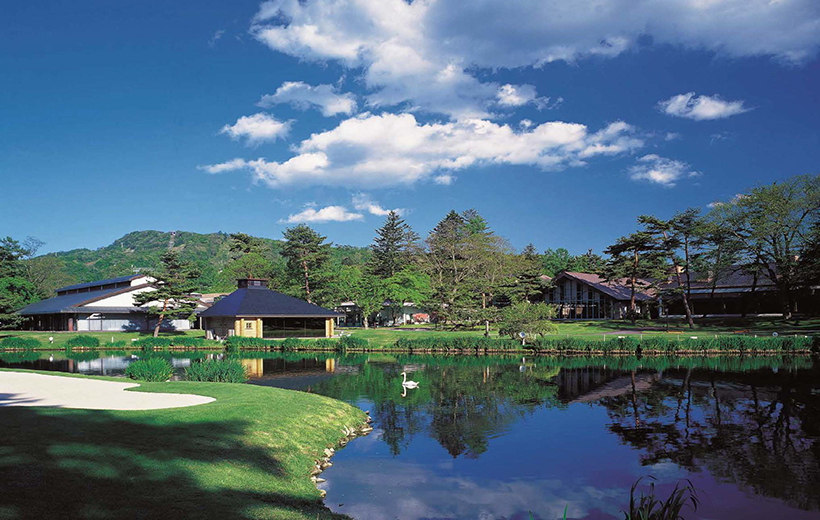
Venue:
Karuizawa Prince HotelAddress:
Karuizawa, Karuizawa-machi, Kitasaku-gun, Nagano, 389-0193 Japan
OrganizerJapanese Center for Research on Women in Sport (JCRWS)
Co-OrganizerJapanese Association for Women in Sport (JWS) , WeCOACH
Supporting Companyadidas Japan K.K.
HOKUTO Corporation
Unicharm Corporation
Otsuka Pharmaceutical Co., Ltd.
01Opening
FacilitatorsDr. Etsuko Ogasawara, Executive Director,
JCRWS
Dr. Natsue Koikawa, Deputy Director, JCRWS
Ms. Akiko Sekiguchi, staff, JCRWS
WCA starts!
This was the 5th WCA, an annual event held every year since 2015.
This year's Academy was held in midsummer (August) for the first time as opposed to the previous years. This year we had more participants from higher ranks such as coaching and directing positions with their own coaching knowledge. Participants warmed up their body and mind with an annual ice breaking game to prepare for their first lecture.
In addition, graduates from the past four academies came from all over the country for further learning, new motivation, and information. It was the largest attendance ever.
Childcare services have been implemented to remove any worries regarding the idea of not being able to participate because “I have children”. The purpose of this service is to increase the number of participants in the academy as we strive to solve problems for women in the sport field. We hope that this sets a precedent so that these services are regularly available in the future.
02Women in Sport
LecturerDr. Etsuko Ogasawara, Executive Director,
Japanese Center for Research on Women in
Sport (JCRWS)
To the era when women can claim in the sport field
The changes brought by the “Women Sport Movement”
The Executive Director, Etsuko Ogasawara explained that at this academy when learning about women and sport it is important to first know the history, the current situation, issues, and the rationale for Japan’s WCA. She then continued on to clarify the facts surrounding these topics.
US team captain Megan Rapinoe, who won the FIFA Women's World Cup in France in the summer of 2019, has been advocating to rectify the big wage gap in men's and women's football. She is also known as the “Protest Athlete” and is in direct conflict with persons or organizations who resist diversity in sport and discriminate against women and immigrants. While introducing this movement, she explained that we are moving into an era where women like herself can make a claim in the sport field like she had.
Dr. Ogasawara then explained the “Brighton Declaration” (decided at the 1st IWG World Conference on Women and Sport, 1994) and the “Brighton + Helsinki Declaration 2014” (decided at the 6th IWG World Conference, 2014). She said that it is the efforts of the female (and male) leaders from around the world that creates the “Women's Sport Movement”, and participants who learn the history of their predecessors will be more motivated to learn.
03Professional Coaching
LecturerMs. Marlene Bjornsrud, Former Executive
Director, Alliance of Women Coaches
(WeCOACH)
TranslatorDr. Maki Itoh, Associate Professor of Sport
Management, Department of Sports and
Health Studies, Hosei University
Be a coach who can manage themselves.
First of all, Satisfy Yourself
Ms. Marlene Bjornsrud (who has been a lecturer at the Academy every year since 2015) gave a speech about the importance of taking care of yourself and preparing a positive environment/atmosphere before you can begin working as a coach. She pointed out that directors, coaches, and coaching staff who care for many people such as their children, spouses, and athletes tend to be fooled and sacrifice themselves too much, especially women. She explained that in order to give something to someone you first need to satisfy yourself firmly. Similar to how "you can't pour anything out of an empty cup," to give to others. When she talked about this topic, all the participants' faces completely changed.
In addition, she also talked about her experience being a general manager for the U.S. women's soccer team saying that what a coach should not do is instruct athletes to do this and don’t do that, but to give players an opportunity to think for themselves.
04Sport and Gender
LecturerDr. Rieko Yamaguchi, Associate Professor,
Faculty of Business Administration, Josai
University
Ms. Miyuki Kobayashi, General Manager of JEF
United Ichihara Chiba Ladies
The “double standard” women leaders face
First, realize the reality
Why do we need to increase “women leaders” in the field of sports? And why is that difficult? To answer these questions, Dr. Rieko Yamaguchi explained the gender-based dilemmas that women face documented in the Women Leadership Study. One of them is the existence of the double standard (rules or principles that are unfairly applied to specific people or groups). In the case where a woman is a leader, the double standard occurs if they are too “competent” then they are considered to have no “warmth”, but if there is “warmness” it is considered only as “a lack of dignity”. She also explained that women's achievements and the ideal work styles for women are compared to male standards, while at the same time expecting women's power. Dr. Yamaguchi emphasized that it is important to first realize the construction of the situation.
Ms. Miyuki Kobayashi introduced the topic of sexual harassment that occurs in Japan’s sporting environments. She then continued on to introduced countermeasures to take and possible secondary damage. Participants felt tense, thinking about "What to do if it happens around me".
05Conditioning for Female Athletes Ⅰ
“Female Athlete Triad”
LecturerProfessor. Natsue Koikawa, Deputy Director,
Japanese Center for Research on Women in
Sport (JCRWS)
What should be enlightened in the Japanese sport field
Female Athlete Triad(FAT)
At the beginning of the second day, Deputy Director Natsue koikawa started to talk about the importance of this specific lecture for this academy. The lecture was about when she participated in the WCA of 2014 NCAA (National Collegiate Athletic Association, U.S.) right after she suffered a setback as a coach. From Dr. Nicole LaVoi, who is one of the lecturers at this academy, Professor. Koikawa realized that the purpose of a coach is to encourage athletes to compete with healthy bodies.
She strongly insisted that the “Female Athlete Triad” (FAT) is indispensable knowledge that all coaches are expected to have, to take home, and to utilize. Especially in Japanese sport fields where there are no athletic trainers or medical doctors on a full-time basis.
06Conditioning for Female Athletes II
“Sports Nutrition”
LecturerDr. Shihoko Suzuki, Professor, Faculty of Health
and Welfare, Nutrition Major, Kanagawa
University of Human Services
For achieving athlete goals
Managing from a “Sports Nutrition” perspective
Dr. Shihoko Suzuki, who is actively working to establish the concept of sports nutrition in Japan, emphasized the importance of managing performance through “nutrition”.
She explained that the role of certified sport dietitians is to help athletes to achieve their goals through dietary planning according to game time and competition schedule. They also utilize results from various competitions to improve the dietary plan. In addition, she talked about the differences in nutritional guidance for varying ages and for para athletes. She generously provided real up-to-date information based on research being conducted on these topics. Dr. Suzuki clearly explained challenging nutritional concepts by using examples and jokes adapted to real life situations, and said, “I just want you to know that there are more effective ways for athletes”. Participants understood the impact of sports nutrition from this lecture.
07Motivation Strategy for Coaches
LecturerDr. Nicole LaVoi, Co-Director, Tucker Center for
Research on Girls & Women in Sport,
University of Minnesota
TranslatorMs. Aya Noguchi, assistant Professor, School of
Health and Sports Science, Juntendo University
In the system, women are weak
But anyone can do something and change the system
Dr. Nicole LaVoi advised participants that "The important thing is to live according to your passion". Dr. LaVoi is the director at the Tucker Center at the University of Minnesota which promotes research specialized in women's sport. She enhanced her lecture by using her own experience and valuable research at the Tucker Center.
She explained that women are positioned very weakly in the system and there is a double standard for women, an obstacle that women must face because they are women. However, she emphasized that using information and approaches from various angles of society can change. She also explained motivation theory and its methods, saying that the American WCA participants continued on in their coaching career with more motivation and power. Finally, she stated “You have power, don't forget that you are the role model for the athletes,” this boosted the participant’s spirits who then all sat up straight.
08Mental Training Associated
with Thinking and Sorting through Emotions
LecturerMs. Miyako Tanaka-Oulevey, President,
Polygone Inc.
Mental training based on practical experience and a scientific basis
An Eye-opening experience “thinking and emotions”
In this lecture, participants learned the basics of how to cope with various stresses (coping) and how to organize one’s own mind. There was also advice on where and when to involve mental trainers. In addition to this, while presenting some on-site cases regarding sports and companies, the scientific basis of mental training was explained in an easy-to-understand way.
When Ms. Miyako Tanaka-Oulevey talked about the mental training that she had practiced in her days as an athlete and what she learned/felt through coaching national team’s, all of the academy’s participants listened avidly and occasionally nodded in agreement. When she explained the importance of realizing and organizing your own emotions, the participants’ faces and emotions changed.
09CoachDISC Program
LecturerMs. Liz Hanson (Masen), Client Director at
Athlete Assessments
Dr. Maki Itoh, Associate Professor of Sport
Management, Department of Sports and
Health Studies, Hosei University
By analyzing your own and others actions,
you will see the role that is demanded of you as a coach
The purpose of the "CoachDISC Profile" is to learn to know yourself, to admit things to yourself and to understand your partners.
Participants attended this lecture with the analysis profile completed in advance. Ms. Liz Hanson (Masen), a long-time lecturer at the NCAA WCA in the United States, explained the importance of knowing one's strengths using the CoachDISC Profile. “First of all, it’s important to be yourself, and I want you to utilize your strengths to achieve your goals” she said. When she also referred to the fact that coaches will have different roles depending on who they are partnered with and what environment they are in, participants listened avidly. They then deepened their understanding by practicing group work.
10CoachDISC Case Study
LecturerMs. Maki Moriya, President, Laurelgate Co.,Ltd.
How to deal with different types of people
Learn through hands-on case studies
To make use of what they learned in the previous lecture regarding the “CoachDISC Profile”, some case study activities were conducted.
Participants were divided into different-type-groups and discussed how they would provide feedback to encourage growth in various types of athletes. In the demonstration, Ms. Maki Moriya played various types of athletes while the participants played the coaches’ role. The exercised was just like the real scene. The exercise was meaningful because of the objective opinions from participants.
11Diversity in Sport
LecturerDr. Rieko Yamaguchi, Associate Professor,
Faculty of Business Administration, Josai
University
Ms. Marlene Bjornsrud, Former Executive
Director, Alliance of Women Coaches
(WeCOACH)
Ms. Miyuki Kobayashi, General Manager of JEF
United Ichihara Chiba Ladies
What we need to know
before “Tokyo 2020” with diversity as its theme
Incorporating people with various perspectives, experiences, and abilities into an organization is said to lead to securing excellent human resources and improving problem-solving skills. Increasing the number of “female leaders” is one aspect of diversity and inclusion. However, the movement is very slow in the Japanese sport field. Participants learned that the problems discussed by Dr. Rieko Yamaguchi during the lecture on “Sport and Gender” from the first day and the problems that sexual minorities face are actually related.
In this lecture, Ms. Aya Noguchi joined in on the conversation. She is involved in activities with “Pride House Tokyo”, and LGBT information and awareness projects for “Tokyo 2020” with diversity as its theme. She explained how to understand and deal with sexual minorities in a leadership and/or coaching position. At the end of the lecture, participants deepened their understanding through practical learning.
12Leadership & Collaboration
LecturerMs. Lisa O'keefe, Director of Insight at Sport
England
Dr. Etsuko Ogasawara, Executive Director,
Japanese Center for Research on Women in
Sport (JCRWS)
TranslatorMs. Aya Noguchi, research associate, School of
Health and Sports Science, Juntendo University
Leadership can be learned
That's why I want you to understand the theory
First, Dr. Etsuko Ogasawara gave a lecture about leadership theory followed by Dr. Lisa O'Keefe who gave a lecture on the practical uses of the theory in real life.
Dr. Ogasawara said, “There is no person that is born a leader. Leadership can be learned and the theory can be applied by anyone. That is why I want you to understand it.”
Dr. Lisa is a former Scottish rugby player who is currently working at Sport England and is a leader in various campaigns related to sports participation. She explained from a leadership standpoint what she was lacking when she failed and the keys to her success when she was successful. Participants were overwhelmed and stimulated by Dr. Lisa's practical ability in collaborating with team members, analyzing them, providing strong leadership, and accepting her own success and failure in that leadership position.
13Navigating the Future for Women Sports Leaders
A warm message from seniors
To women leaders who struggle with team building and face difficulties
Panelists:
Ms. Marlene Bjornsrud, Former Executive Director, Alliance of Women Coaches (WeCOACH)
Dr. Nicole La Voi, Co-Director, Tucker Center for Research on Girls & Women in Sport, University of Minnesota
Ms. Liz Hanson (Masen), Client Director at Athlete Assessments
Ms. Lisa O'keefe, Director of Insight at Sport England
Ms. Mikiko Hagiwara, Director, WJBL (Women's Japan Basketball League Organization)
Ms. Reiko Arakawa, Director, NPO Ueda Mix Sports Club
Translator:
Ms. Miyuki Kobayashi, General Manager of JEF United Ichihara Chiba Ladies
Coordinator:
Dr. Etsuko Ogasawara, Executive Director, Japanese Center for Research on Women in Sport
This year for the first time we welcomed the alumni of the academy as panelists to help mold the new participants into the female leaders of tomorrow.
We welcomed Ms. Mikiko Hagiwara, who became the head coach of Japan’s women’s national basketball team in the under category, and Ms. Reiko Arakawa, who led her team to second place at the cheerleading world tournament this year (Both are graduates from the third academy).
They told their stories of how they built-up their teams using the knowledge they gained from the academy, and responded to participants’ questions and problems. Their stories about moving forward to gain success and glory despite the hardships they encountered along the way were convincing and encouraged participants to never give up. They found that even though the international lecturers had no experience coaching in Japan they talked about feelings common throughout the world.
They also found that participants who asked questions enjoyed the experience more and gain more from it.
14Networking
LecturerMs. Miyuki Kobayashi, General Manager of JEF
UNITED Ichihara, Chiba Ladies
What has been nurtured from the Academy held in 2015
And what did the participants gain
In the last lecture, “Networking”, participants learned about the decision-making document called the “Karuizawa Declaration” created by the participants of the 1st WCA. They talked amongst each other about what they should do and aim for.
This marks the new start for the participants who have completed the three days of study. Ms. Miyuki Kobayashi told participants that “this academy is a place where you can go home to” and “to already complement themselves for making valuable friends”. Immediately a feeling of accomplishment flooded throughout the room.
15Closing Ceremony
An inspiring finale will reconfirm that there is a place
to go back and friends who will help you anytime.
At the graduation ceremony, the “Best Leader Coach Award” voted on by the participants was awarded. It was presented to Tamako Kihara with the memorial shield award by Mikiko Sugawara (class of no.3) who earned the same award in 2017.
The lecturers then each gave a warm message to the participants and each participant received a WCA certificate.
The organizer, Ogasawara Executive Director of the Japanese Center for Research on Women in Sport, gave hot ale to the participants who will become responsible for the future of Japanese sports. Then in mentioning the WCA certificate that participants had previously obtained Executive Director Ogasawara said, “I am still excited whenever I see the NCAA WCA certificate (which I participated in 2014)” and I feel inspired. Instead of looking back into the past, I look at the certificate of completion and feel inspired. The director feels that the certificate “reminds us that friends from all over the world want to help us challenge ourselves to become better”.
In this way, the “WCA 2019” ended with each participant's commitment to this goal.


